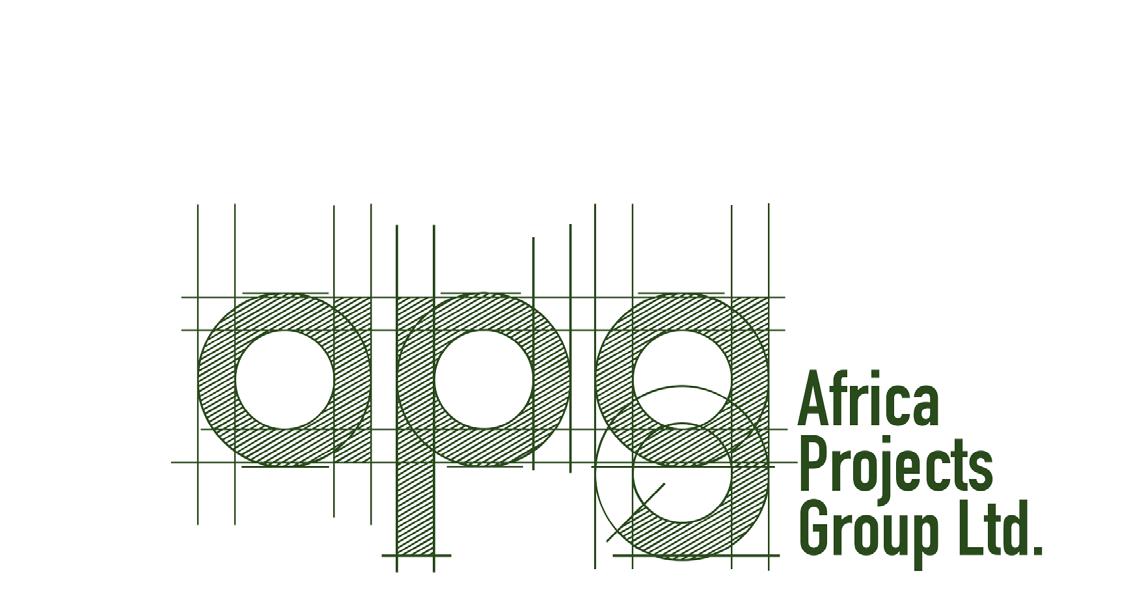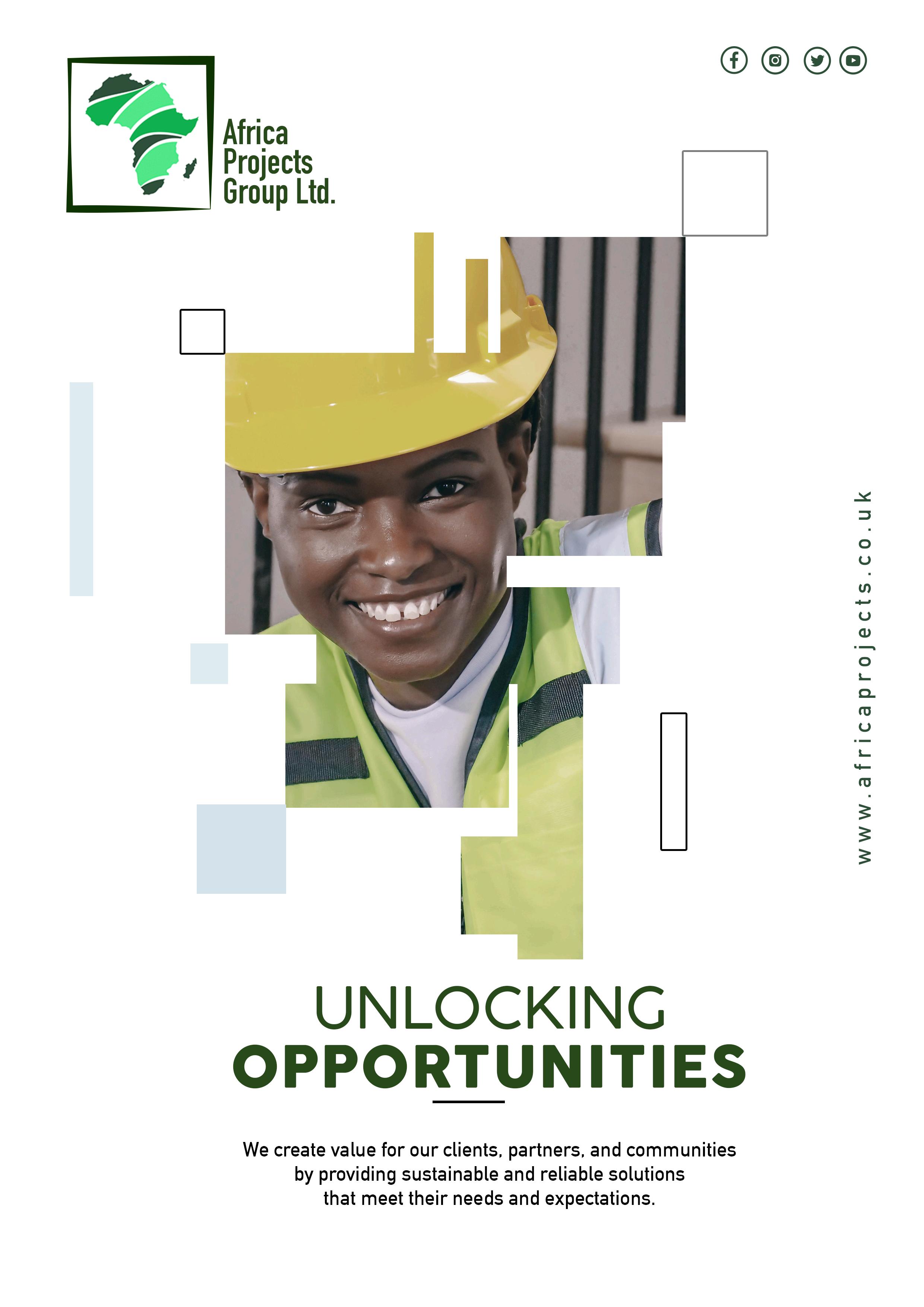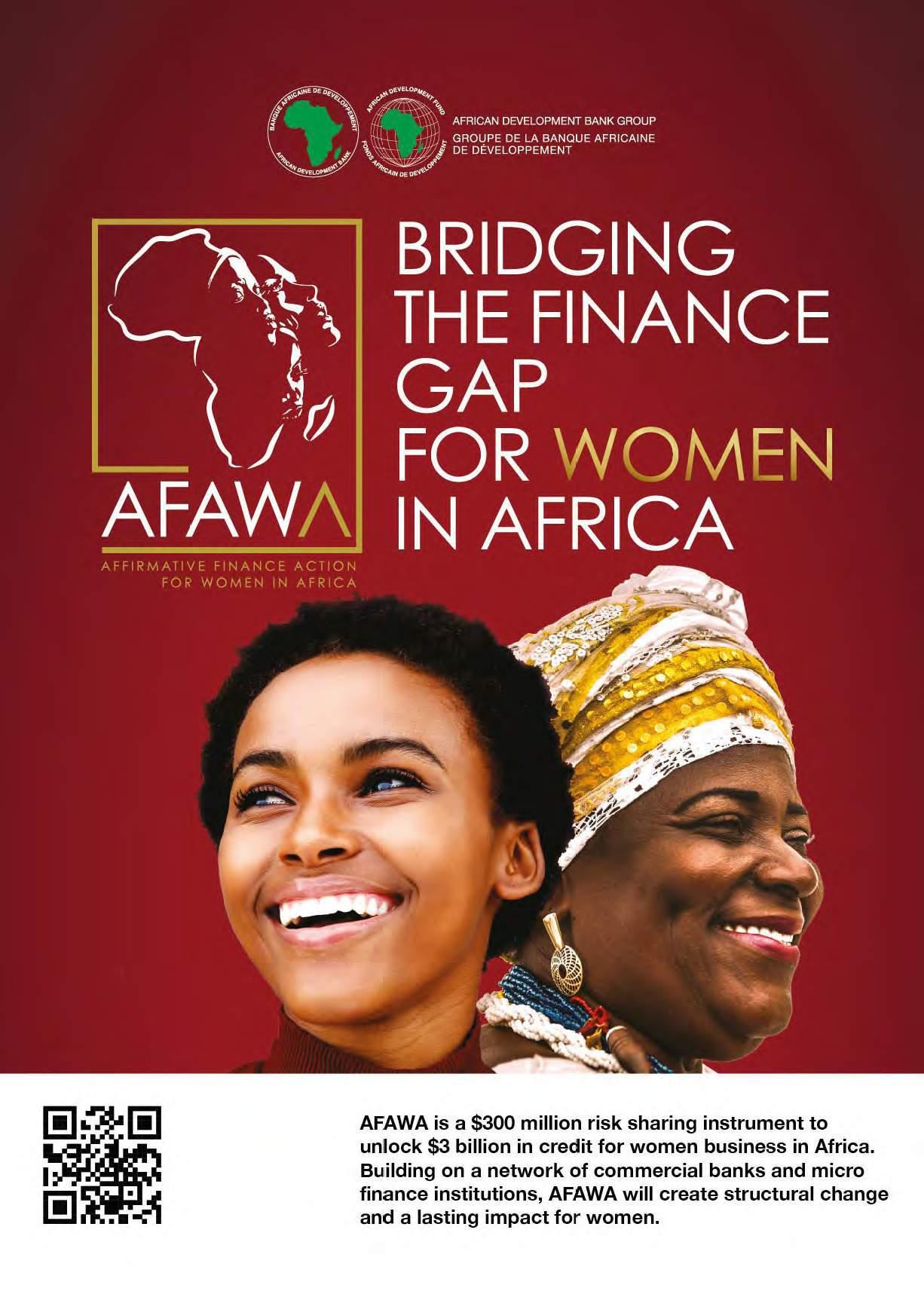




















...A
...A Publication of The African Leadership Organization
...A Publication of The African Leadership Organization
Ken Giami
...A Publication of The African Leadership Organization
Founder & Executive Chairman
Ken Giami
Ken Giami
Founder & Executive Chairman
Group Managing Editor - Kingsley Okeke editor@africanleadership.co.uk
Founder & Executive Chairman
Furo Giami - Chief Operating Officer / Executive Director
Ken Giami
Ken Giami
Founder & Executive Chairman
Founder & Executive Chairman
Boma Benjy - Iwuoha - Group Head, Finance & Administration
Group Managing Editor - Kingsley Okeke editor@africanleadership.co.uk
Group Head, Editorial & Content Development - King Richard king.richards@africanleadership.co.uk
Group Managing Editor - Kingsley Okeke editor@africanleadership.co.uk
Group Managing Editor - Kingsley Okeke editor@africanleadership.co.uk
Furo Giami - Chief Operating Officer / Executive Director
Sasha Caton - Manager, UK & European Operations
Dr. Ibifuro Ken-Giami - Chief Operating Officer / Executive Director
Furo Giami - Chief Operating Officer / Executive Director
Boma Benjy - Iwuoha - Group Head, Finance & Administration
Group Managing Editor - Kingsley Okeke editor@africanleadership.co.uk
Creatives
Staff Writers - Blossom Ukoha
Blessing Ernest
Group Head, Editorial & Content Development - King Richard king.richards@africanleadership.co.uk
Group Head, Editorial & Content Development - King Richard king.richards@africanleadership.co.uk
Ayeni Adegbola Victor
Bernard Jeremiah
Country Representatives
Creatives
Creatives
Group Head, Editorial & Content Development - King Richard king.richards@africanleadership.co.uk
Group Head, Editorial & Content Development - King Richard king.richards@africanleadership.co.uk
Muna Jallow - The Gambia & Senegal
Ayeni Adegbola Victor
Ayeni Adegbola Victor
Editorial Board
Meresia Aloo - Kenya
Creatives
Bernard Jeremiah
Creatives
Bernard Jeremiah
Peter Burdin, London UK - Chair
Janet Abena Quainoo - Ghana
Ayeni Adegbola Victor
Nwandi Lawson, Atlanta USA - Member
Ayeni Adegbola Victor
Bernard Jeremiah
Bernard Jeremiah
Editorial Board
Editorial Board
Simon Kolawole, Lagos Nigeria - Member
Design and Brand Consultant - Jehoshaphat Ogujiuba
Peter Burdin, London UK - Chair
Peter Ndoro, SABC EditorJohannesburg - Member
Peter Burdin, London UK - Chair
Editorial Board
Editorial Board
Nwandi Lawson, Atlanta USA - Member
Frenny Jowi, Nairobi Kenya - Member
Nwandi Lawson, Atlanta USA - Member
Peter Burdin, London UK - Chair
Peter Burdin, London UK - Chair
Simon Kolawole, Lagos Nigeria - Member
Brig. Gen. SK Usman Rtd., Abuja Nigeria - Member
Simon Kolawole, Lagos Nigeria - Member
Nwandi Lawson, Atlanta USA - Member
Nwandi Lawson, Atlanta USA - Member
Peter Ndoro, SABC EditorJohannesburg - Member
David Morgan, Washington DC USA - Member
Peter Ndoro, SABC EditorJohannesburg - Member
Simon Kolawole, Lagos Nigeria - Member
Frenny Jowi, Nairobi Kenya - Member
Frenny Jowi, Nairobi Kenya - Member
Simon Kolawole, Lagos Nigeria - Member
Peter Ndoro, SABC EditorJohannesburg - Member
Peter Ndoro, SABC EditorJohannesburg - Member
Brig. Gen. SK Usman Rtd., Abuja Nigeria - Member
Brig. Gen. SK Usman Rtd., Abuja Nigeria - Member
Frenny Jowi, Nairobi Kenya - Member
Frenny Jowi, Nairobi Kenya - Member
David Morgan, Washington DC USA - Member
David Morgan, Washington DC USA - Member
Brig. Gen. SK Usman Rtd., Abuja Nigeria - Member
Brig. Gen. SK Usman Rtd., Abuja Nigeria - Member
David Morgan, Washington DC USA - Member
David Morgan, Washington DC USA - Member
Furo Giami - Chief Operating Officer / Executive Director
Furo Giami - Chief Operating Officer / Executive Director
Boma Benjy - Iwuoha - Group Head, Finance & Administration
Ehis Ayere - Group Head, Sales & Business Development
Sasha Caton - Manager, UK & European Operations
Boma Benjy - Iwuoha - Group Head, Finance & Administration
Boma Benjy - Iwuoha - Group Head, Finance & Administration
Sasha Caton - Manager, UK & European Operations
Amana Alkali - Executive Assistant to the Chairman
Ehis Ayere - Group Head, Sales & Business Development
Sasha Caton - Manager, UK & European Operations
Samuel M. Elaikwu - Manager, Sales & Business Developments
Sasha Caton - Manager, UK & European Operations
Ehis Ayere - Group Head, Sales & Business Development
Amana Alkali - Executive Assistant to the Chairman
Amana Alkali - Executive Assistant to the Chairman
Happy Benson - Director of Operations Nor th America
Ehis Ayere - Group Head, Sales & Business Development
Ehis Ayere - Group Head, Sales & Business Development
Ngozi Nwokolo - Executive Assistant to the Chairman
Samuel M. Elaikwu - Manager, Sales & Business Developments
Amana Alkali - Executive Assistant to the Chairman
Christy Ebong - Head, Research & Admin - Nor th America
Amana Alkali - Executive Assistant to the Chairman
Samuel M. Elaikwu - Manager, Sales & Business Developments
Happy Benson - Director of Operations Nor th America
Stanley Emeruem - Business Development Manager
Happy Benson - Director of Operations Nor th America
Samuel M. Elaikwu - Manager, Sales & Business Developments
Samuel M. Elaikwu - Manager, Sales & Business Developments
Christy Ebong - Head, Research & Admin - Nor th America
Muna Jallow - West African Rep. for The Gambia & Senegal
Christy Ebong - Head, Research & Admin - Nor th America
Happy Benson - Director of Operations Nor th America
Happy Benson - Director of Operations Nor th America
Stanley Emeruem - Business Development Manager
Oluwatoyin Oyekanmi - Head, South African Bureau
Christy Ebong - Head, Research & Admin - Nor th America
Stanley Emeruem - Business Development Manager
Christy Ebong - Head, Research & Admin - Nor th America
Muna Jallow - West African Rep. for The Gambia & Senegal
Bernard Adeka - Head, Nigeria SS/SE
Stanley Emeruem - Business Development Manager
Stanley Emeruem - Business Development Manager
Muna Jallow - West African Rep. for The Gambia & Senegal
Kembet Bolton - Business Development Manager
Oluwatoyin Oyekanmi - Head, South African Bureau
Muna Jallow - West African Rep. for The Gambia & Senegal
Muna Jallow - West African Rep. for The Gambia & Senegal
Oluwatoyin Oyekanmi - Head, South African Bureau
Bernard Adeka - Head, Nigeria SS/SE
Oluwatoyin Oyekanmi - Head, South African Bureau
Oluwatoyin Oyekanmi - Head, South African Bureau
Bernard Adeka - Head, Nigeria SS/SE
Bernard Adeka - Head, Nigeria SS/SE
Bernard Adeka - Head, Nigeria SS/SE
Por tsmouth Technopole, Kingston Crescent, Por tsmouth PO2 8FA , United Kingdom; t: 44 23 9265 8276 | fax: +44 (0)23 9265 8201 | e: info@africanleadership.co.uk w | www.africanleadershipmagazine.co.uk
CORPORATE HEADQUARTERS
CORPORATE HEADQUARTERS
Por tsmouth Technopole, Kingston Crescent, Por tsmouth PO2 8FA , United Kingdom; t: 44 23 9265 8276 | fax: +44 (0)23 9265 8201 | e: info@africanleadership.co.uk w | www.africanleadershipmagazine.co.uk
Por tsmouth Technopole, Kingston Crescent, Por tsmouth PO2 8FA , United Kingdom; t: 44 23 9265 8276 | fax: +44 (0)23 9265 8201 | e: info@africanleadership.co.uk w | www.africanleadershipmagazine.co.uk
Por tsmouth Technopole, Kingston Crescent, Por tsmouth PO2 8FA , United Kingdom; t: 44 23 9265 8276 | fax: +44 (0)23 9265 8201 | e: info@africanleadership.co.uk w | www.africanleadershipmagazine.co.uk
Abuja Accra Atlanta Banjul Bujumbura Freetown Johannesburg London Monrovia Nairobi Washington DC
Por tsmouth Technopole, Kingston Crescent, Por tsmouth PO2 8FA , United Kingdom; t: 44 23 9265 8276 | fax: +44 (0)23 9265 8201 | e: info@africanleadership.co.uk w | www.africanleadershipmagazine.co.uk
ISSN 2006 - 9332
Abuja Accra Atlanta Banjul Bujumbura Freetown Johannesburg London Monrovia Nairobi Washington DC
Abuja Accra Atlanta Banjul Bujumbura Freetown Johannesburg London Monrovia Nairobi Washington DC
AFRICA & REGIONAL REPRESENTATIVES
AFRICA & REGIONAL REPRESENTATIVES
Abuja Accra Atlanta Banjul Bujumbura Freetown Johannesburg London Monrovia Nairobi Washington DC
Abuja Accra Atlanta Banjul Bujumbura Freetown Johannesburg London Monrovia Nairobi Washington DC
ISSN 2006 - 9332
ISSN 2006 - 9332
March 2024
ISSN 2006 - 9332
ISSN 2006 - 9332
While great care has been taken in the receipt and handling of materials, production and accuracy of content in the magazine, the publishers will not take responsibility for views expressed by the writer
While great care has been taken in the receipt and handling of materials, production and accuracy of content in the magazine, the publishers will not take responsibility for views expressed by the writer
While great care has been taken in the receipt and handling of materials, production and accuracy of content in the magazine, the publishers will not take responsibility for views expressed by the writer
While great care has been taken in the receipt and handling of materials, production and accuracy of content in the magazine, the publishers will not take responsibility for views expressed by the writer
While great care has been taken in the receipt and handling of materials, production and accuracy of content in the magazine, the publishers will not take responsibility for views expressed by the writer
www.africanleadershipmagazine.co.uk
www.africanleadershipmagazine.co.uk
www.africanleadershipmagazine.co.uk
JOIN THE CONVERSATION
JOIN THE CONVERSATION
Facebook : African Leadership Magazine
www.africanleadershipmagazine.co.uk
www.africanleadershipmagazine.co.uk
Twitter : @AfricanLM
Facebook : African Leadership Magazine
Instagram: @africanleadershipmag
Facebook : African Leadership Magazine
FOLLOW US ON SOCIAL MEDIA
FOLLOW US ON SOCIAL MEDIA
LinkedIn: African Leadership Magazine
Twitter : @AfricanLM
Twitter : @AfricanLM
Facebook : African Leadership Magazine
Facebook : African Leadership Magazine
Instagram: @africanleadershipmag
YouTube: African Leadership Magazine
Twitter : @AfricanLM
Twitter : @AfricanLM
Instagram: @africanleadershipmag
LinkedIn: African Leadership Magazine

LinkedIn: African Leadership Magazine
Instagram: @africanleadershipmag
Instagram: @africanleadershipmag




YouTube: African Leadership Magazine
YouTube: African Leadership Magazine
LinkedIn: African Leadership Magazine

LinkedIn: African Leadership Magazine
YouTube: African Leadership Magazine



YouTube: African Leadership Magazine
















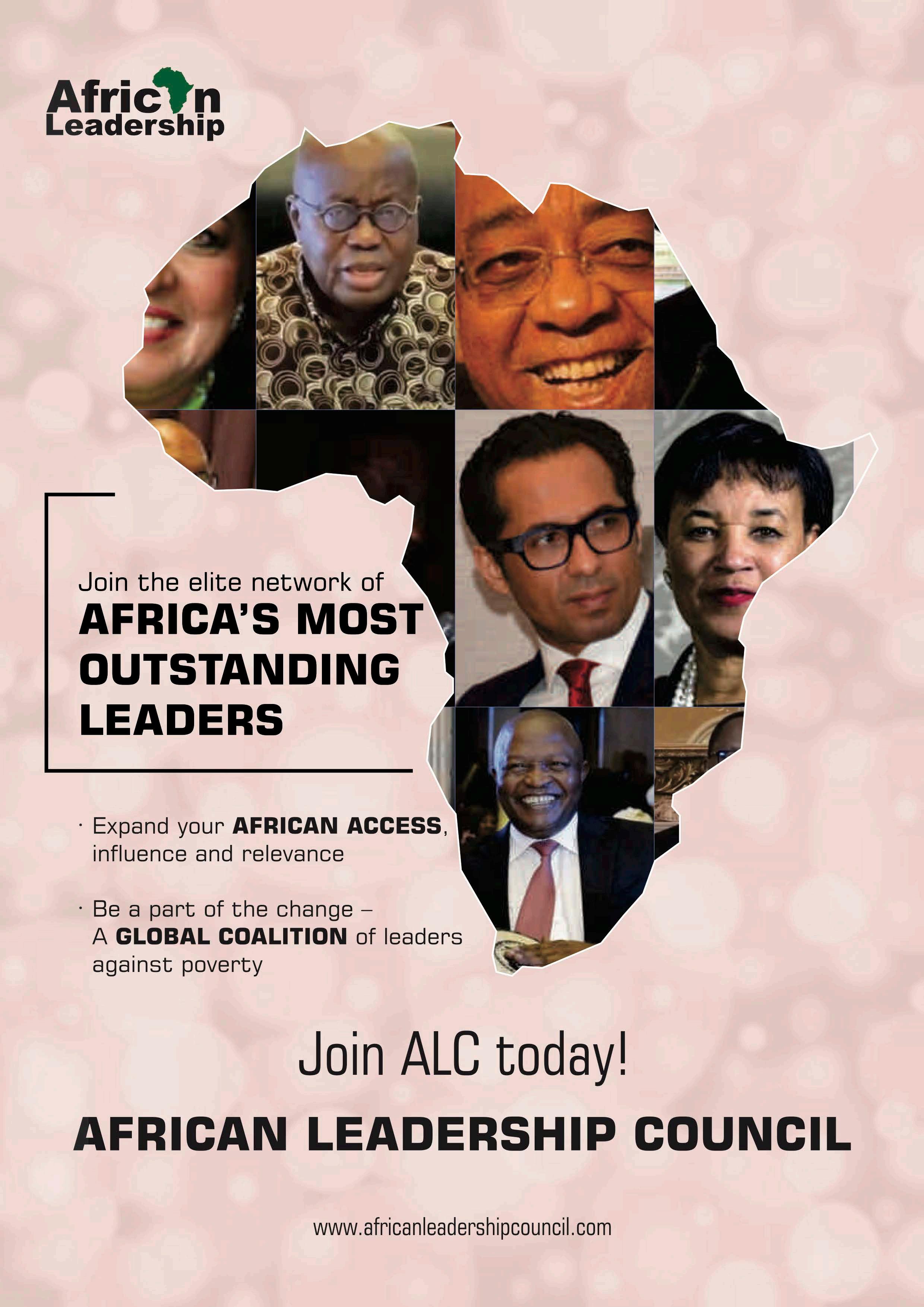
10
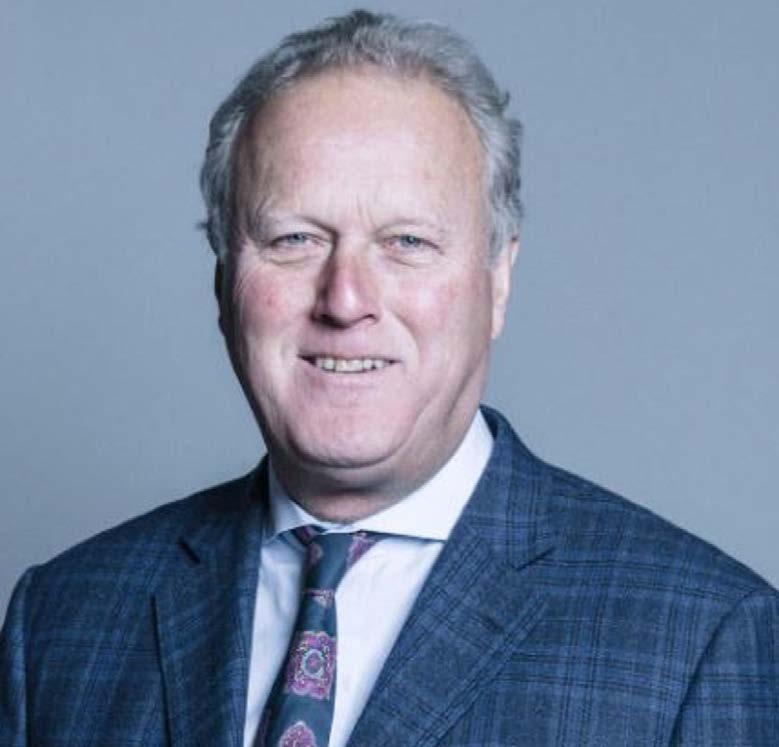
14
Innovation, Integrity, Adaptability: The Pillars of Pana Holdings
18
Hon. Justice Martha K. Koome, EGH: Pioneering Justice Reforms and Advocacy
40
Transforming Ghana’s Water Sector: Insights from Dr. Clifford A. Braimah
33
Driving Economic Reformation in Zimbabwe: The ZNCC’s Example
30
Trailblazing Leadership: Insights from Addis Ababa’s First Female Mayor
23
Dr. Jakaya Mrisho Kikwete: A Statesman’s Legacy of Leadership and Service
54 From Seed to Success: The Story of Dr. Jesca Nkwabi and the Rise of KOM Group
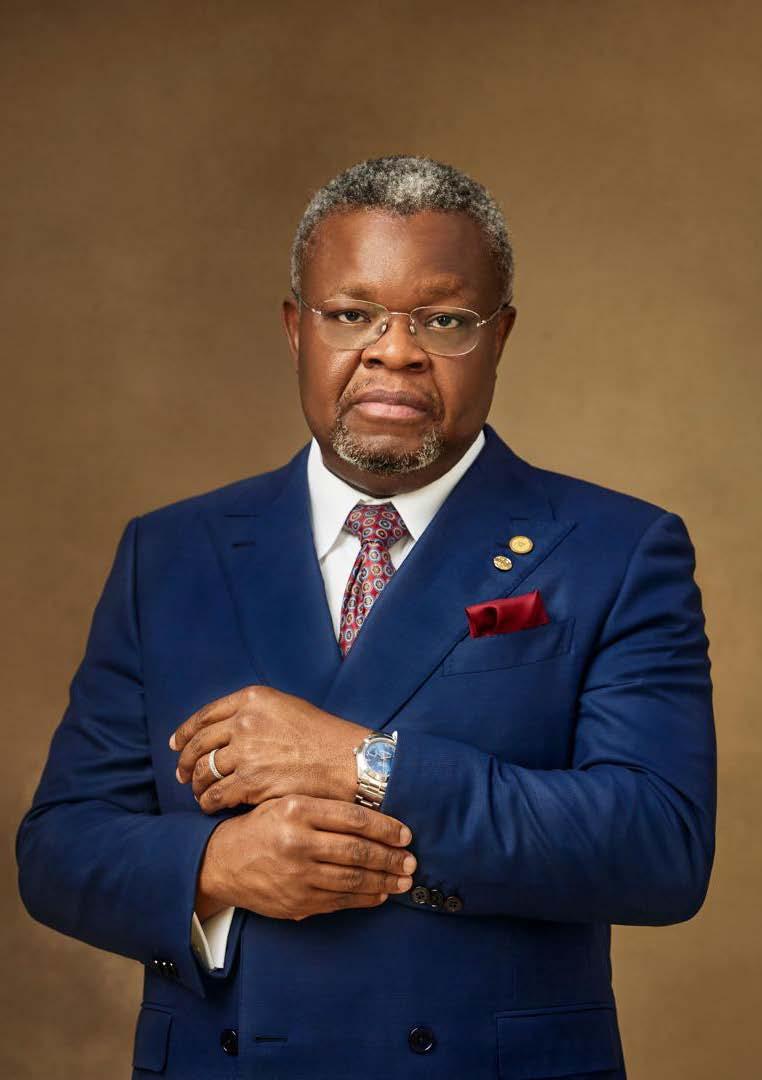
14
www.africanleadershipmagazine.co.uk
70

36
76
Nigeria’s Internal Security Governance Illuminating the Cybersecurity Landscape: A Journey with Digital Encode Nigeria.
28
Dr. Adesola Adeduntan: A Profile in Financial Industry Leadership Excellence
44 Henry Saamoi’s Influence on Liberia’s Financial Future

24
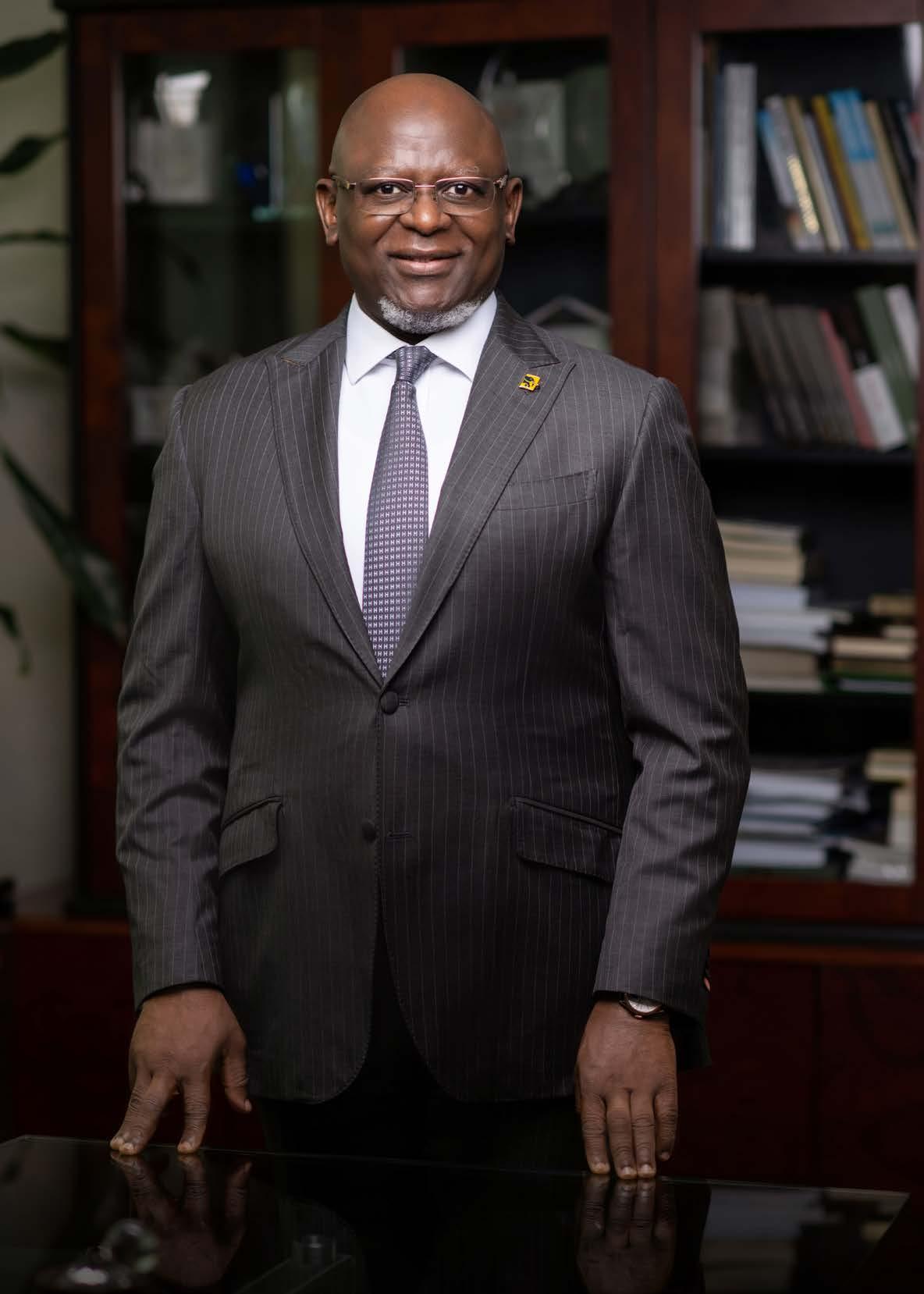
28
58 Unlocking Success: A Journey With Daniel Asiedu, Banking Maestro
62 Diversity, Inn0ovation, and Governance: The Evolution of African Bank
48 Charting Nigeria’s Green Future
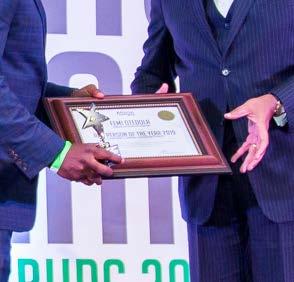
20
81 A Tale of Two Presidents: Unraveling Trump and Biden’s African Diplomacy

H.E. JOHN MAHAMA
Fmr. President of Ghana
“It is always an honour to be in the company of such distinguished fellow Africans, that the African Leadership Magazine events bring together - Africans who have committed their lives to changing the negative narrative about our continent.”
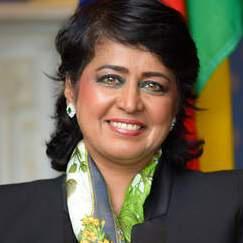
H.E. MRS. AMEEN GURIB-FAKIM
Fmr. President of Mauritius
“It is ver y gratifying that we now have an organization like African Leadership Magazine, which endeavors to promote good governance and impactful leadership in Africa - bring the best of Africa to the global stages.”
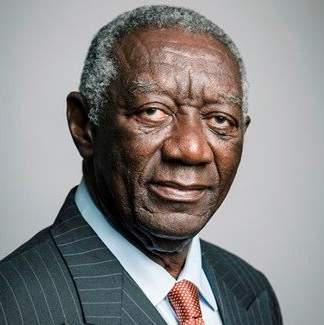
H.E. JOHN KUFOUR
Fmr. President of Ghana
“I believe people are more impor tant than power and anything that promotes good people and leadership is what we need in Africa, and that is what African Leadership Magazine is doing.”
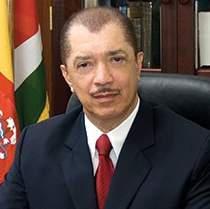
H.E. JAMES A MICHEL
Fmr. President of Seychelles
“I wish to express my sincere thanks and deep appreciation to the African Leadership Magazine for the work that it is doing on the continent, and especially in advancing the cause of small Islands Developing states, Any effor t aimed at increasing the visibility of the good work being done by leadership in Africa does positively impact on the continent and that is what the African Leadership Magazine is doing.”

DR. GOODLUCK JONATHAN
Fmr. President of Nigeria
“African Leadership Magazine has become a brand for Africa and I am pleased to be associated with it. especially because of the caliber of African Leaders on itʼs board.”
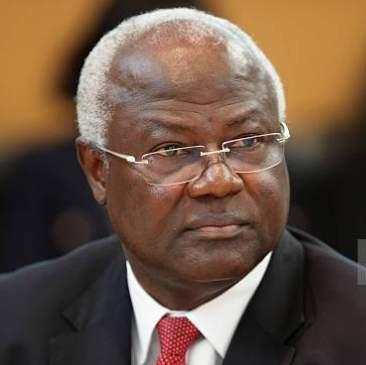
H.E. ERNEST BAI KOROMA
Fmr. President of Sierra Leone
“I am delighted to be associated with the sterling work that the African Leadership Magazine is doing on the continent. Democratic governance is the elephant in the room, and the continent needs to reaccess its governance systems. The agenda on global sustainable development shows that Africans are lagging behind. Africa will need to reinvent its governance system with its youth growing population.”
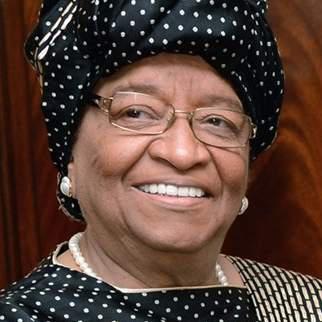
MRS. ELLEN JOHNSON - SIRLEAF Nobel Peace Prize Winner & Fmr President, Republic of Liberia
“I feel deeply honored to be associated with the African Leadership Magazine as it is a veritable platform to honor true ser vice in Africa. I commend your effor ts and assure you of my continued suppor t and the suppor t of the good people of Liberia.”
 DR. AKINWUMI ADESINA President, African Development Bank
DR. AKINWUMI ADESINA President, African Development Bank
“I thank you so much, African Leadership Magazine for the great work that you are doing for the continent. Your tradition of awarding excellence as I have seen in the line up of African Leaders who have received the African Leadership Awards, is something ver y commendable”

H.E JAKAYA KIKWETE
Fmr. President of Tanzania“African Leadership Magazine is doing a wonderful job of speaking for Africa and Africans. The magazine remain a good example of what young people in Africa can do in the world. Best wishes in keeping the African dream alive.”

DR. MO
IBRAHIM Founder,Mo Ibrahim Foundation
“ The future of African people and improving the quality of Leadership on the African continent is my vision and I find in African Leadership Magazine - a true par tner. I am also happy that the African Leadership Awards is doing at a lower level, what I intend to achieve at the Head of State level. That is why I flew to Paris just to be a par t of what you are doing here at the African Leadership Magazine”
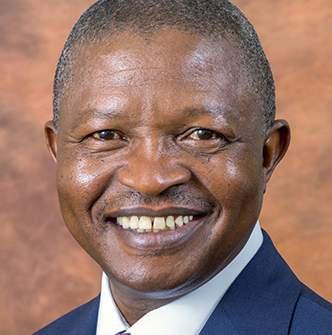
H.E DAVID MABUZA Deputy President Republic of South Africa
“It is an honour to par ticipate at this African Leadership Magazine's 2020 Ceremony, and I commend the magazine's focus to reshape positively, the dominant narratives about the African continent, especially towards the pursuit of peace-building and democracy on the continent”

MO DEWJI Tanzania Businessman & Philanthropist
“ The African Leadership Awards truly captures the essence of my message which is that, success shouldnʼt be solely defined by wealth. It should be about the positive impact and influence that one has had in his community ”

Embark on a journey into the dynamic world of international trade as we engage in an insightful conversation with Lord Jonathan Marland, Chairman of the Commonwealth Enterprise and Investment Council (CWEIC), a seasoned figure in the landscape of commerce and diplomacy. Lord Marland’s tenure as the UK Prime Minister’s Trade Envoy has not only shaped his perspective on fostering trade relations but has also ignited a fervent commitment to unlocking the untapped potential within the Commonwealth. From navigating the golden opportunities for the United Kingdom to steering CWEIC since 2014, Lord Marland shares the strategic initiatives that have propelled the Commonwealth onto the global trade stage.
In this exclusive interview, discover the challenges faced in revitalising an organisation, the pivotal role of bespoke strategies in promoting business opportunities, and Lord Marland’s vision for a future where sustainability and youth engagement drive the prosperity of Commonwealth nations. Join us as we unravel the complexities of international trade, explore impactful partnerships forged during extensive travels across African nations, and gain insights into the advantages that the Commonwealth offers to businesses worldwide. This conversation promises to be a captivating exploration of trade, diplomacy, and the boundless opportunities that lie at the intersection of global commerce and the Commonwealth.
The Excerpt:
Your tenure as the UK Prime Minister’s Trade Envoy for several years involved fostering trade relations. How did this experience shape your approach to promoting international trade within the Commonwealth?
During my extensive travels promoting trade worldwide, I realised a golden opportunity for the United Kingdom within the Commonwealth. Recognising the untapped potential, the Commonwealth Office needed to seize this chance. When I decided to step down as Trade Envoy, I was offered the opportunity to chair this organisation. CWEIC gets its mandate to promote trade and investment directly from the Commonwealth Heads of Government, which is crucial for building a credible and serious institution. The enduring strength of the Commonwealth brand, coupled with its historical significance, further fueled our motivation. Our journey, starting a decade ago, has resulted in the establishment of ten international offices across Africa, including Nigeria, Ghana, Cameroon, Australia, Kenya, Bangladesh, Sri Lanka, Malta, and Gibraltar. Currently, we are reorganising our Singapore office, creating a global footprint to better serve Commonwealth members.
As Chairman of CWEIC since 2014, you’ve spearheaded various initiatives. Can you share key strategies for promoting business opportunities within the Commonwealth?
Certainly. Our organisation operates on two fronts. First, we work on a bespoke basis for our corporate and government Strategic Partners, developing tailor-made frameworks and activities for their annual memberships. Second, we undertake initiatives for the greater good of the Commonwealth. This includes hosting the Commonwealth Business Forum alongside the Commonwealth Heads of Government Meetings.
Additionally, we organise an annual trade and investment summit in London with our Strategic Partners. These events bring heads of government and business leaders together, providing a unique platform for fruitful collaborations. For example, our partnership with the Bangladesh government involved organising a conference attended by hundreds from across the Commonwealth; including delegates from Nigeria, Kenya, and other African countries. Such initiatives generate crosspollination of trade activities, share knowledge, and foster understanding of opportunities.
Your extensive travels across African nations are aimed at enhancing economic partnerships. Can you highlight a particular success story or impactful partnership forged during these engagements?
While I can’t delve into specific business deals, our engagements with Nigerian businesses have been noteworthy. We’re in the process of establishing offices outside Nigeria, and our development in London has seen direct investments in various projects. Our approach is to facilitate connections. We avoid direct involvement in fundraising but encourage cross-fertilization. These connections have resulted in fruitful partnerships, such as with an insurance business that played a role in creating opportunities in Africa.
What advantages does the Commonwealth offer for business people?
The figures are substantial and growing rapidly, reflecting the exponential increase in the Commonwealth’s population and it’s worth noting that the combined GDP of the Commonwealth has shown consistent growth
Historical ties, familiar administrative and legal systems, the use of largely one language, English, as the means of communicating with foreign partners, and large and dynamic diasporas have contributed to strong trade relationships among its members. Bilateral trade costs between Commonwealth countries are therefore on average 21 percent lower which is called the ‘Commonwealth Advantage’. It simplifies business interactions by eliminating language barriers. Dealing with China, for instance, requires interpreters and an understanding of Chinese law. In contrast, the Commonwealth Advantage, with similar legal and educational systems, makes trade easier and cheaper.
Discuss specific challenges you faced during leadership.
The primary challenge was reviving a previously moribund organisation. We needed to redefine its raison d’être, demonstrate its value, and position it as a membership organisation. Operating as a not-for-profit entity, we aimed to show that we could handle commercial aspects more efficiently than government agencies. This approach faced challenges from some quarters, but the value of our quick, light, and commercially focused operations has been recognised.
How can the UK government jumpstart improved trade relations with Africa?
The UK government needs to capitalise on the opportunities presented by Brexit and the Commonwealth. Currently, there’s a lack of initiative to leverage these opportunities. Commonwealth countries, including many African nations, exhibit immense growth and ignoring these ties would be a mistake,
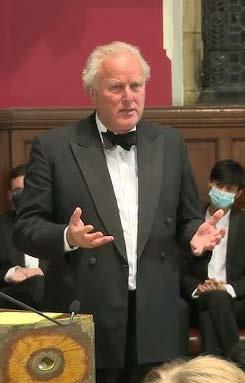
considering the historically robust relationships. There is a common perception that investing in Africa entails high risk. However, I believe that leveraging the strong relationships the UK holds with African nations, particularly those within the Commonwealth, provides the UK government with a significant advantage in highlighting the vast opportunities available. To further encourage UK businesses to invest in Africa, the government should offer more incentives such as financial support for market entry and risk mitigation mechanisms. This approach has the potential to not only support UK exports but also stimulate job growth and economic development across Africa.
How is CWEIC engaging young people in business within the Commonwealth?
Sustainability and youth are fundamental aspects of our initiatives. 60 percent of the Commonwealth’s population is under 30 which is a phenomenal statistic; presenting both huge challenges and opportunities. We have specific programmes to support entrepreneurship such as the CWEIC MBA course in partnership with Coventry University which specifically focuses on global trade and investment. Over the last few years, we have sponsored awards, such as the one in Bangladesh for Green Start-Ups to encourage youth-led businesses to take part in sustainability initiatives. In the broader sense, our mission to support trade and investment efforts will contribute to a robust private sector. This, in turn, will create employment and opportunities for the youth within the Commonwealth.
What’s the state of intra-Commonwealth trade?
The figures are substantial and growing rapidly, reflecting the exponential increase in the Commonwealth’s population and it’s worth noting that the combined GDP of the Commonwealth has shown consistent growth. Figures from 2021 reveal that GDP surged by a quarter to US$13.1 trillion, up from $10.4 trillion in 2017. Looking ahead, estimates suggest the Commonwealth’s GDP could hit $19.5 trillion by 2027. Additionally, intraCommonwealth trade is forecasted to exceed US$1 trillion by 2026. Notably, leaders have pledged to elevate intra-Commonwealth trade to US$2 trillion by 2030 and as an organisation, we look forward to supporting that.
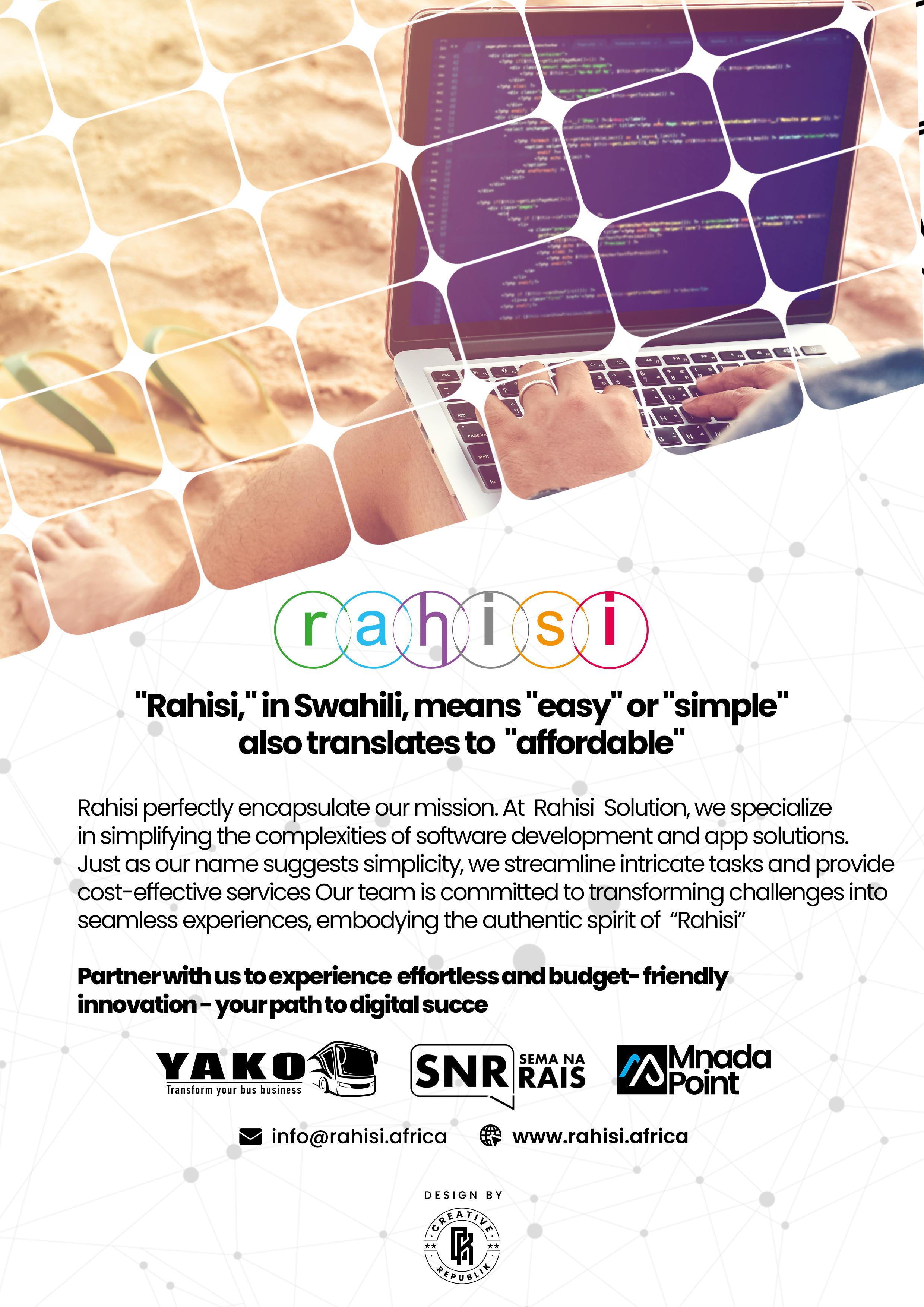
Mr. Daere Afonya-a Akobo, Chairman and GCEO, PANA Holdings Group

Discover the driving force propelling Pana Holdings to the forefront of global business innovation. As the Chairman of this diversified powerhouse, Mr. Daere Afonya-a Akobo, in conversation with Bernard Adeka, provides unique insights into the company’s overarching vision and strategic objectives, encapsulating a commitment to sustainable growth across diverse sectors from energy to technology.
Navigating the complexities of a dynamic global market, Pana Holdings exemplifies agility and resilience. With a strategic blend of innovation, integrity, and adaptability, the company not only overcomes challenges but also seizes opportunities, setting new standards for excellence in an ever-evolving landscape. Join us as we explore the journey of a visionary leader shaping the future of business.
Excerpt
As the Chairman of Pana Holdings, can you provide insight into the company’s overarching vision and strategic objectives?
Pana Holdings is a diversified holding company with interests spanning various sectors such as energy, technology, healthcare, and infrastructure development. Our primary vision revolves around what we call the 5 P’s: people, process, and technology; people and talent; products and solutions; and profits and prosperity. We aim to create sustainable businesses that employ and empower people across Africa while delivering innovative products and solutions to our customers worldwide.
Given the dynamic nature of global markets, how does Pana Holdings adapt its business strategies to remain agile and responsive to changing economic conditions?
We operate in what we call the “industrial clock speed” era, where uncertainty is high. To navigate this, we rely on a combination of strategic foresight and divine guidance. Our focus on innovation, integrity, and commitment enables us to stay ahead of market trends and challenges, even amidst crises like the COVID-19 pandemic.
What are some of the key challenges and opportunities your company faces in the current energy market landscape, and how do you navigate them?
One of our major challenges is the lack of dedicated support for business incubation in our country. However, we see this challenge as an opportunity to pioneer change and bridge the gap between international companies and government authorities. By leveraging our expertise and focusing on transparency, trust, and time management, we’ve been able to establish ourselves as leaders in the energy sector, both locally and globally.
and beyond. We’re involved in providing innovative solutions for exploration and production, including cutting-edge technology for unconventional resources. Our expertise extends to driving, controlling, and measuring oil flow, as well as detecting and managing theft—a comprehensive approach that sets us apart in the industry.
What measures does your company take to ensure compliance with regulations and standards, both locally and internationally, in the oil and gas industry?
Certainly, compliance is paramount in our operations. Firstly, let’s delve into operational standards. Pana Holdings boasts over 25 licenses, previously from the DPR, now NURPC, and NPPR, ensuring our adherence to Nigerian regulatory frameworks. We take pride in our leading position in Nigerian content, particularly in valve, metering, and pumping solutions, as validated by recent surveys. Our commitment to compliance extends to our state-of-theart facility in Port Harcourt, where we undertake various activities, including multiphase operations and the construction of wellhead control panels. Notably, we’ve successfully completed projects typically outsourced overseas, such as air control panel fabrication, entirely within Nigeria. This underscores our dedication to operational compliance and local capacity building.
Financial compliance is equally vital. Recognizing the need for robust financial practices early on, we engaged reputable firms like Deloitte to conduct audits and ensure adherence to financial regulations. This proactive approach has earned us commendation from the FRS for consecutive years, affirming our commitment to financial integrity and governance.
Our primary vision revolves around what we call the 5 P’s: people, process, and technology; people and talent; products and solutions; and profits and prosperity
As it relates to one of your brainchildren, PE Energy, what role is PE Energy playing in the oil and gas exploration and production supply value chain in Nigeria?
PE Energy plays a crucial role across the oil and gas value chain, from exploration to production
In terms of safety, we uphold the highest standards to protect our employees and assets. Rigorous safety protocols are implemented across our operations, including stringent journey management procedures and continuous risk assessments. We even reject projects if safety standards are compromised, prioritizing the well-being of our workforce above all else.
You have a lot of collaborations with international organizations. How have these collaborations helped your business, and how do you ensure they are mutually beneficial?

Partnerships are instrumental in our business strategy, facilitating access to expertise and resources beyond our reach. We view ourselves as innovators bridging market gaps, and collaborations amplify our impact. By aligning with international partners, we leverage their strengths to deliver comprehensive solutions to our clients. The essence of a successful partnership lies in mutual value creation. We meticulously evaluate potential partners to ensure compatibility in goals and values. Clear communication and alignment of interests are pivotal in ensuring that each party contributes and benefits equitably. Ultimately, our partnerships are grounded in trust and a shared commitment to excellence, driving mutual growth and success.
Tell us about your business school and its significance in shaping your business philosophy.
My journey in business education stems from a profound belief in continuous learning and selfimprovement. The Business School initiative emerged from a personal quest to acquire essential business acumen and leadership skills. Recognizing the transformative power of education, I pursued courses at renowned institutions like the Institute of Directors in London and Harvard Business
School. These experiences broadened my perspective and equipped me with invaluable insights into global business practices. The establishment of our business school reflects a commitment to knowledge dissemination and talent development. Through tailored programs and mentorship initiatives, we nurture future business leaders and foster a culture of innovation and excellence within our organization. Our Business School embodies our ethos of lifelong learning and serves as a beacon of inspiration for aspiring entrepreneurs and professionals alike.
With the growing emphasis on renewable energy sources, how does your company balance its focus on traditional fossil fuels with the exploration of alternative energy solutions?
The transition to renewable energy is an undeniable global imperative, but it coexists with the continued relevance of traditional fossil fuels. Our approach entails a nuanced understanding of energy dynamics and a commitment to sustainable practices. While we recognize the pivotal role of renewables in mitigating climate change, we also acknowledge the indispensable role of fossil fuels in meeting current energy demands. Our strategy revolves around embracing diversity in energy sources
and promoting innovation across the spectrum. We actively invest in research and development initiatives to enhance efficiency and reduce the environmental footprint of fossil fuel operations. Simultaneously, we pursue partnerships and ventures in the renewable energy sector, aligning with global trends and contributing to a greener future. Balancing these priorities requires strategic agility and a long-term perspective, ensuring that we remain adaptive and responsive to evolving energy landscapes.
Where do you envision Pana Holdings in another ten years, considering its global footprint and expanding portfolio?
Pana Holdings’ trajectory over the next decade embodies our ambitious vision for growth and impact. We envision a dynamic ecosystem of enterprises spanning diverse sectors and geographies, driven by innovation and collaboration. Building upon our established presence, we aspire to deepen our engagement in key markets while expanding into new frontiers. Our commitment to excellence and sustainability will remain unwavering, guiding our strategic decisions and operational practices. As a global player, we aim to be at the forefront of transformative initiatives, shaping industries, and driving positive change. Through strategic partnerships and visionary leadership, we envisage Pana Holdings as a trailblazer in the global business landscape, leaving an indelible mark on the world stage.
As the African Energy Person of the Year, how do you plan to leverage this recognition to further your mission and impact?
I am humbled by the recognition and see it as an opportunity to advocate for meaningful change in the energy sector. My focus will be on promoting digital transformation, data governance, and democratizing access to energy resources. By collaborating with stakeholders and leveraging my platform, I aim to drive sustainable development, empower communities, and contribute to the prosperity of the African continent.
In the bustling city of Port Harcourt, Nigeria, on a balmy day in May 1973, the world welcomed Daere Afonya-a Akobo, a man whose name would soon become synonymous with innovation, mentorship, and philanthropy. From his earliest days, Akobo possessed a tenacious spirit and an insatiable appetite for problem-solving, traits that would propel him to the forefront of global entrepreneurship.
Today, Mr. Daere Afonya-a Akobo stands as the Chairman of PANA Holdings, a beacon of success in the world of business. But his journey to prominence was anything but straightforward. It began with humble roots, a thirst for knowledge, and an unwavering commitment to excellence.
Akobo's career trajectory is a testament to his boundless determination and versatility. From his formative years honing his skills in flow metering and instrumentation in the Sub-Saharan African Oil and Gas Industry to his groundbreaking ventures in power, water, e-commerce, and information technology, Akobo has consistently pushed the boundaries of what is possible.
A defining feature of Akobo's professional ethos is his dedication to continuous learning. Armed with a degree in applied physics from Rivers State University and a plethora of qualifications from esteemed institutions such as Harvard Business School, INSEAD Business School, and the Jack Welch Management Institute, Akobo has cultivated a wealth of knowledge and expertise that transcends borders.
But perhaps what sets Akobo apart is not just his impressive resume, but his unwavering commitment to giving back to the community. Through initiatives such as the Daere Afonya-a Akobo Foundation (DAAF), Akobo has made it his mission to uplift the less fortunate and empower the next generation of leaders.
Our focus is on building human capacity through fair remuneration, improved working conditions, and infrastructure upgrades, ensuring the sustainability of our institutions.
Akobo's contributions to the business world have not gone unnoticed. As a Fellow of the Institute of Directors and the Chartered Institute of Management Consultants, as well as a member of prestigious organizations like the Young Presidents Organization and the Forbes Business Council, Akobo has earned accolades and awards from esteemed institutions around the globe.
Yet, for Akobo, true success lies not in personal accolades, but in the impact he can make on the world. His mantra, "A dream without a deadline is a nightmare," serves as a constant reminder of the importance of setting goals and pursuing them with unwavering determination.
Outside the boardroom, Akobo is a devoted family man, sharing his life with his beloved wife, Iyenemi, and their four children: Mildred, Eldred, Esmeralda, and Sophia.
As we reflect on the extraordinary journey of Daere Afonya-a Akobo, we are reminded that true greatness is not measured by wealth or status, but by the lives we touch and the legacy we leave behind. In Akobo, we find not just a successful entrepreneur, but a visionary leader whose passion, integrity, and compassion have transformed countless lives for the better.

In the annals of Kenya's legal history, few figures shine as brightly as Hon. Justice Martha K. Koome, EGH. Since assuming office as the 15th Chief Justice of the Republic of Kenya and 3rd President of the Supreme Court of Kenya on May 21, 2021, Justice Koome has been at the forefront of transformative justice reform, advocating tirelessly for the rights of women, children, and the marginalized.
Justice Koome's ascent to the pinnacle of Kenya's judicial system marks a historic milestone. As the first woman to hold the esteemed office of Chief Justice in over a century of the Judiciary's existence, she embodies resilience, competence, and trailblazing leadership. Prior to her appointment, she distinguished herself as a senior Judge of Appeal, where she presided over the Criminal Division with distinction.
During her tenure as an Appellate Judge, Justice Koome spearheaded groundbreaking initiatives aimed at enhancing case management efficiency and standardizing registry operations within the Court of Appeal. Her leadership in developing Court of Appeal Practice Directions and the Court of Appeal Registry Manual has revolutionized judicial proceedings, ensuring expeditious justice delivery and enhancing the overall customer experience.
Justice Koome's journey in the legal profession spans over three decades, characterized by unwavering commitment to justice, equality, and community service. Prior to joining the Judiciary, she honed her legal acumen as a distinguished legal practitioner, specializing in conveyancing, commercial law, civil litigation, criminal litigation, and family law.
Beyond her legal practice, Justice Koome has been a steadfast advocate for social justice and human rights. Her involvement in community service projects and pro-bono initiatives underscores her dedication to uplifting the vulnerable and marginalized segments of society. As President of the Kenya Magistrates and Judges Association (KMJA) and an official of the East Africa Magistrates and Judges Association (EAMJA), she championed judicial independence and the rule of law.
Justice Koome's advocacy extends far beyond the courtroom, encompassing gender equality and child rights on both national and international platforms. As Chairperson of the Federation of Women Lawyers Kenya Chapter (FIDA Kenya), she led efforts to promote legal and constitutional reforms aimed at advancing gender equality. Her appointment to the African Union Committee on the Rights and Welfare of the Child reflects her steadfast commitment to protecting and promoting the rights of children across Africa.
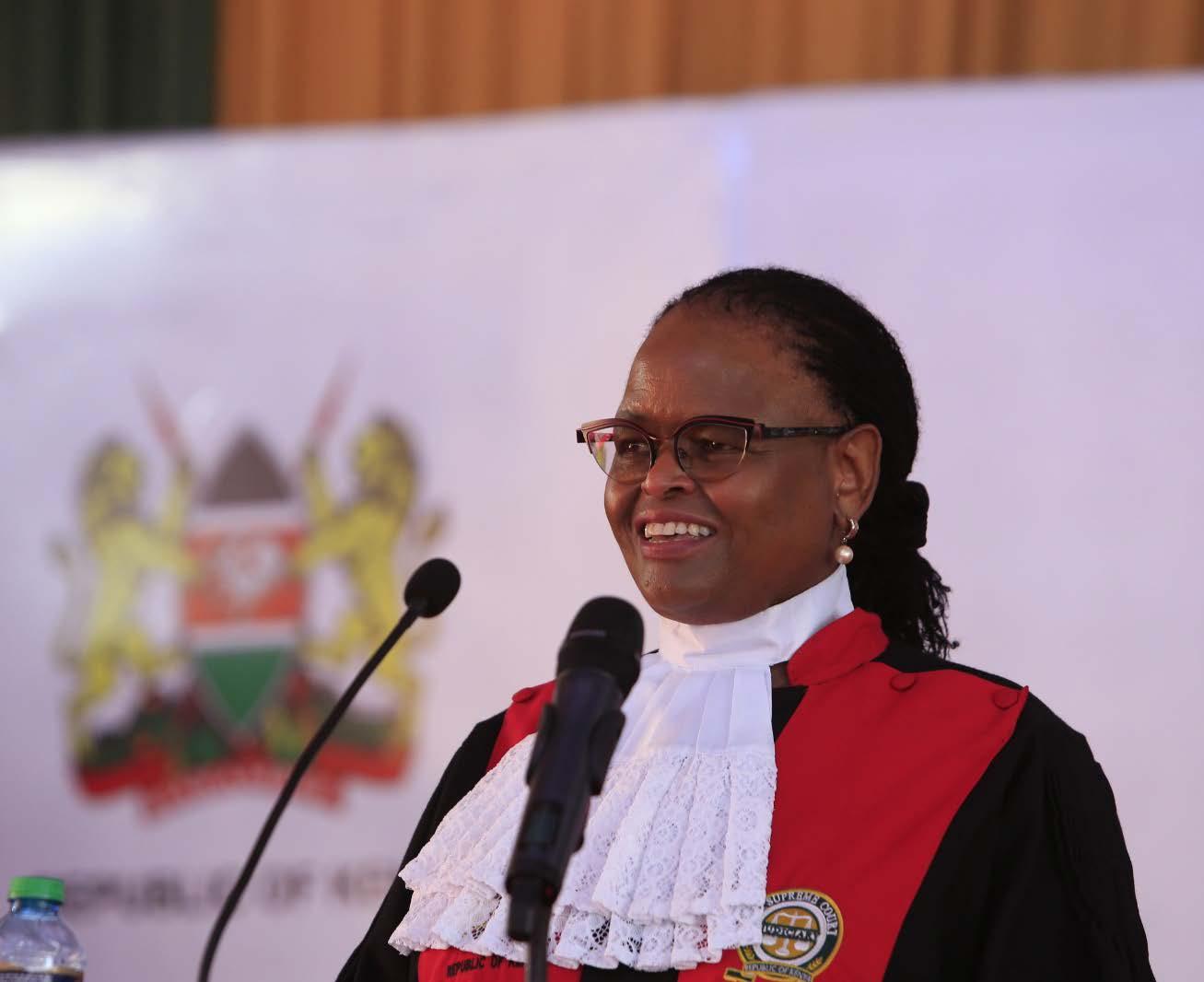
Her pivotal role in the law review process that birthed the Constitution of Kenya, 2010, underscores her dedication to constitutionalism and democratic governance. Recognized by the United Nations as an eminent human and children's rights defender, Justice Koome's contributions to the advancement of justice and human rights have earned her accolades both domestically and internationally.
As Chief Justice, Justice Koome is unwavering in her commitment to making the Kenyan justice system more accessible and responsive to the needs of all citizens, particularly the vulnerable and marginalized. Her emphasis on enhancing access to justice for women, children, and underserved communities underscores her vision for a more inclusive and equitable society.
With a Bachelor of Laws (LLB) degree from the University of Nairobi, a post-graduate Diploma in Law from the Kenya School of Law, and a Master of Laws (LLM) from the University of London, Justice Koome brings a wealth of legal expertise and academic rigor to her role. Her relentless pursuit of justice, coupled with her pioneering spirit and advocacy, continues to inspire a new generation of jurists and social activists across Kenya and beyond.
In recognition of her decades-long pioneering work in advocacy and the advancement of human rights, Justice Koome's legacy as a champion of justice and equality is firmly etched in the annals of Kenya's legal history. As she continues to chart new paths and break barriers, her leadership serves as a beacon of hope for a more just, equitable, and inclusive society.
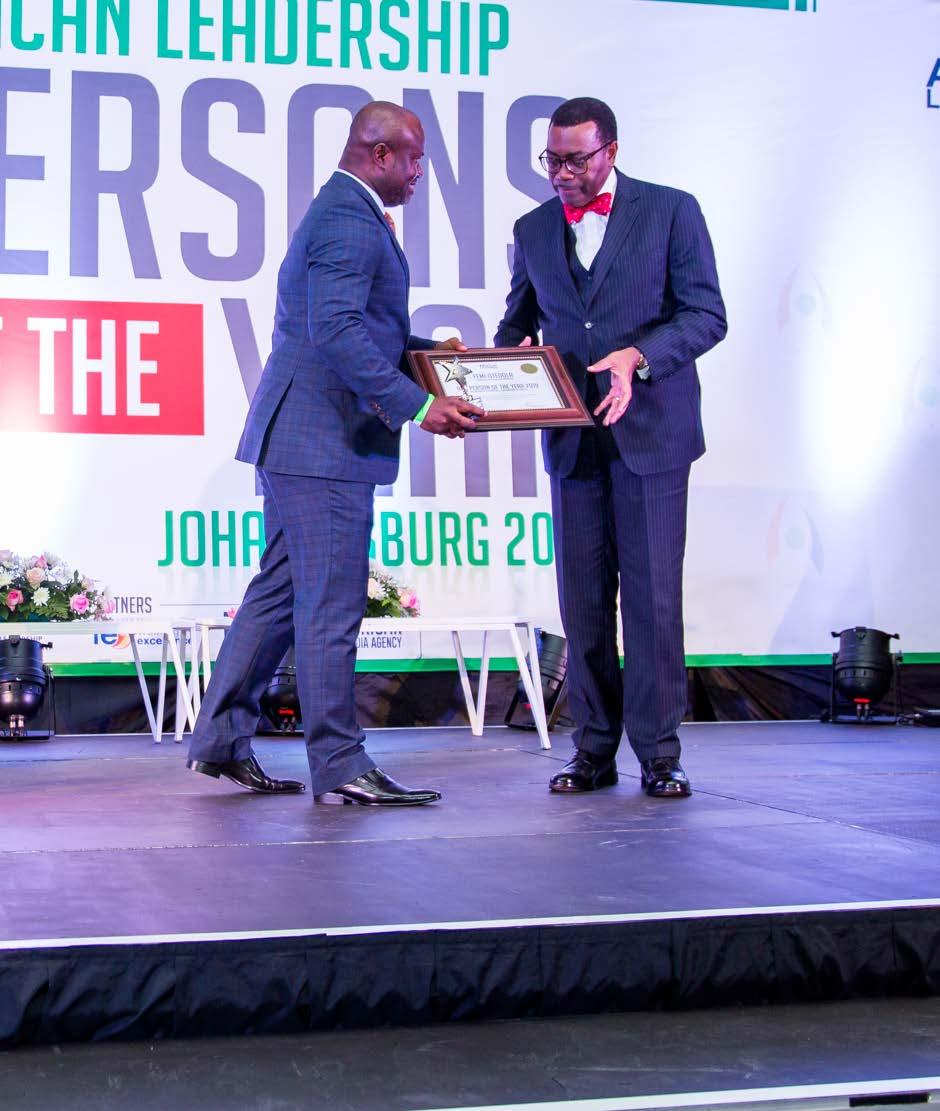
The anticipation has been palpable, and here we are finally at The 12th African Leadership Magazine Persons of the Year (POTY) Awards Ceremony, at the prestigious Ethiopian Skylight Hotel in Addis Ababa, Ethiopia. This annual event stands as a beacon of recognition for outstanding Africans whose contributions have been pivotal in shaping the continent’s trajectory towards progress and dispelling the shadows of negativity that have sometimes clouded Africa’s image on the global stage.
Over the past 12 years, the POTY Ceremony has evolved into Africa’s premier vote-based endorsement, attracting policymakers, industry titans, civil society leaders, and thought leaders
from across the continent and beyond. It has become a revered platform for honouring people-centered leadership and celebrating individuals who champion a pan-African agenda in their respective fields.
Reflecting on the illustrious list of past winners is akin to a journey through the annals of African leadership. From the visionary Sudanese businessman Mo Ibrahim, Founder of the Ibrahim Prize for Leadership (2012); to the transformative leadership of H.E. Goodluck Jonathan, former President of Nigeria (2015); and the indefatigable efforts of Dr. Tedros Adhanom Ghebreyesus, DirectorGeneral, World Health Organization (2020).
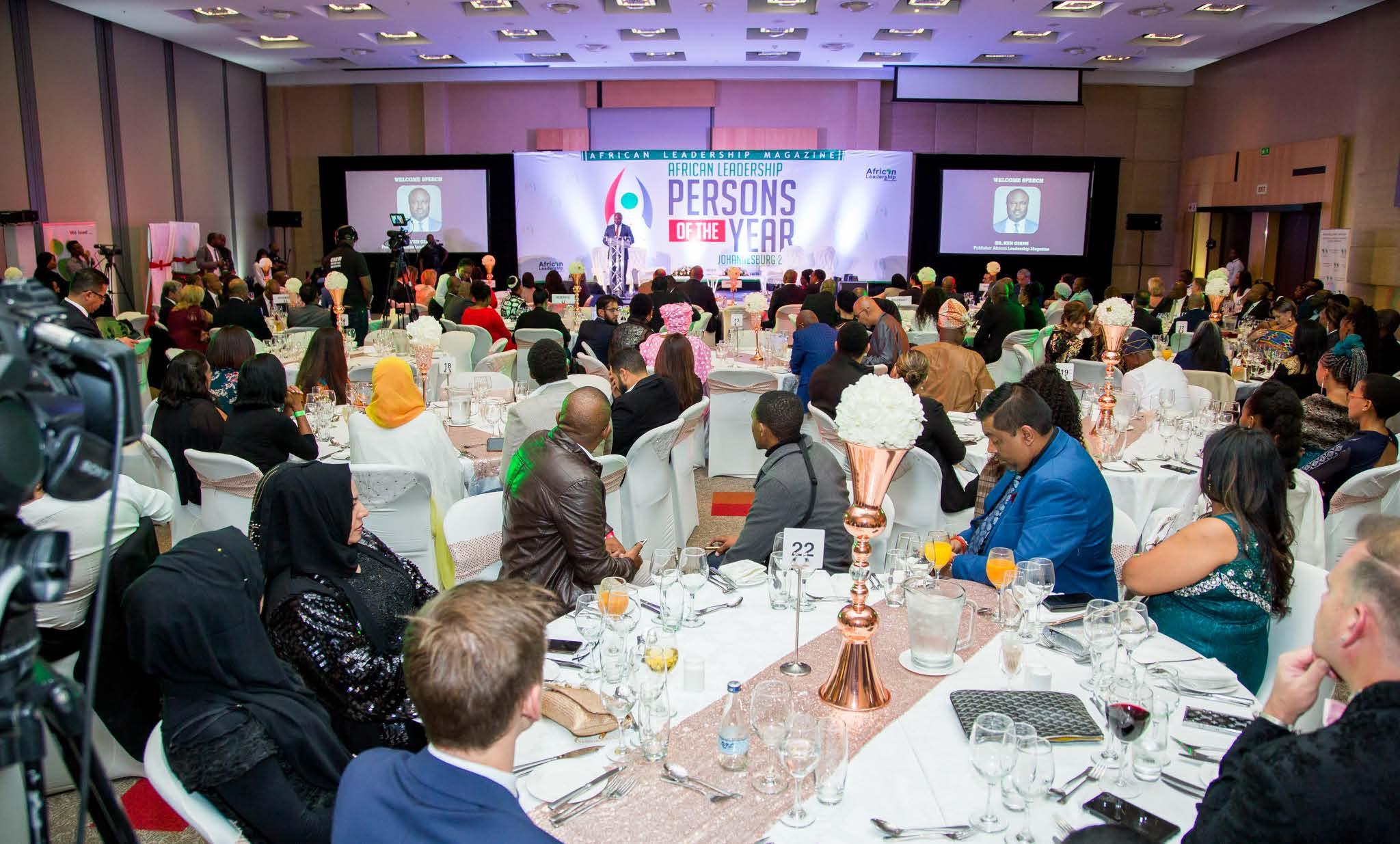
Other past winners of the ALM Persons of the Year Awards include H.E. Atiku Abubakar, former Vice President of Nigeria (2013); H.E. Jakaya Kikwete, former President of Tanzania (2014); Mr. Mo Dewji, Tanzanian Businessman and Philanthropist (2016); H.E. Paul Kagame, President of Rwanda (2017); H.E. John Magufuli, former President of Tanzania (2018); Dr. Akinwumi Adesina, President of African Development Bank (2019); H.E. Lazarus Chakwera, President of Malawi (2021); and H.E. Julius Maada Bio, President of Sierra Leone (2022). Each recipient has left an indelible mark on Africa’s landscape, inspiring hope and igniting progress.
In the spotlight this year stands His Excellency William Ruto, President of Kenya, who has been named the African of the Year 2023. President Ruto’s unwavering commitment to regional cooperation, inclusive trade, and advocating for Africa’s interests on the global stage embodies the essence of pan-African leadership.
Beside President Ruto is the esteemed former President of Tanzania, H.E. Jakaya Kikwete, who continues to be a steadfast advocate for peace, security, and sustainable development in Africa. His insights on the nexus between peace and development are bound to enrich the dialogue and inspire action towards a more prosperous Africa.
The 2024 edition of the POTY Ceremony is a convergence of minds, which has brought together over 300 participants representing
diverse sectors and geographies. From political and diplomatic leaders to industry titans and academic luminaries, the event promises to foster meaningful exchanges and forge new alliances in the pursuit of Africa’s socioeconomic advancement.
Joining the distinguished roster of attendees is a lineup of exceptional leaders, including Dr. Kailesh Jagutpal, Mauritius’ Minister of Health and Wellness, and Lady Justice Martha Koome, Chief Justice of Kenya. His Excellency George Weah, Former President, Liberia; Hon. Cllr. Fonati Koffa, Speaker, Liberia House of Representative; The Hon. Dr. Kailesh Jagutpal, Minister Of Health And Wellness, Mauritius; Ngozi Ekeoma, CEO, NAPAL Petroleum; Dr. Adesola Kazeem Adeduntan (FCA), CEO, FirstBank Group; Daniel Asiedu, Managing Director, OmniBSIC Bank, Accra, Ghana; Mr. Henry Fallah Saamoi, The Chief Executive Officer, International Bank (Liberia) Limited Monrovia, Liberia; Mr Gil Bires, DirectorGeneral, Investment and Export Promotion Agency (APIEX-Mozambique); Adanech Abebe, Mayor of Addis Ababa, and several other notable leaders.
Their presence underscores the event’s commitment to recognizing excellence across various spheres of African society. As we embark on this journey of celebration and reflection, we invite you to join us in honoring Africa’s finest and reaffirming our collective commitment to a brighter future for the continent.
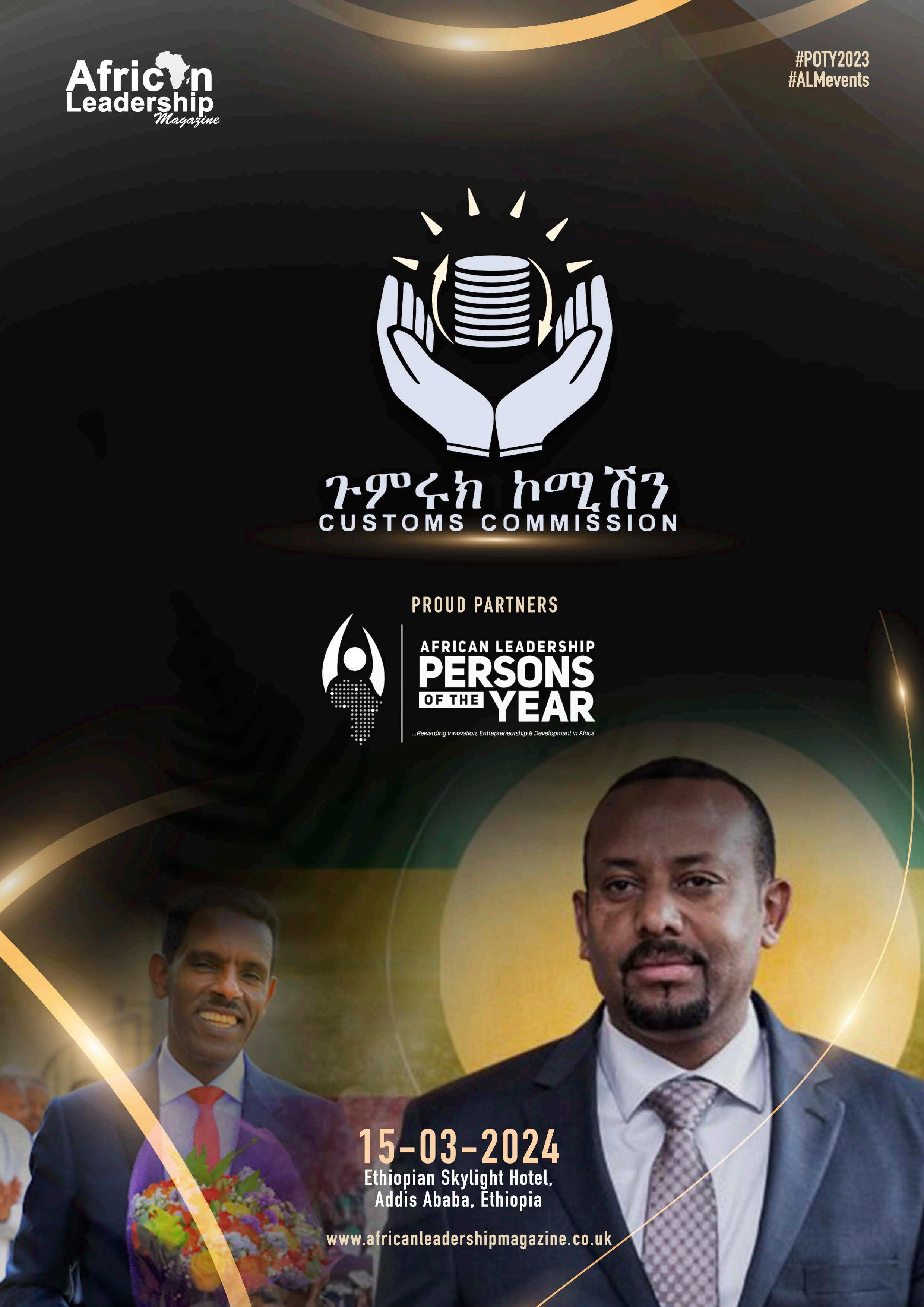
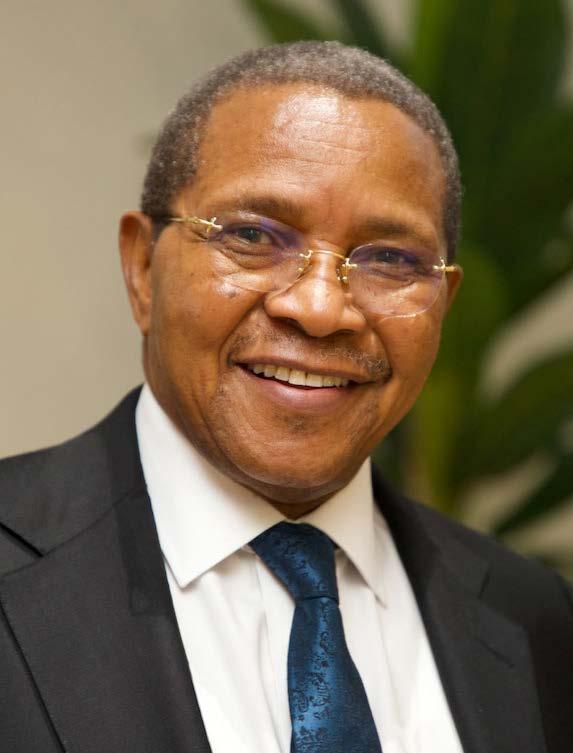
In the intricate tapestry of African politics, few figures shine as brightly as Dr. Jakaya Mrisho Kikwete. His journey from military service to the highest echelons of political power is a testament to his unwavering commitment to public service and leadership. As a Former President of the United Republic of Tanzania (2005 to 2015), Dr. Kikwete’s tenure was marked by profound accomplishments and a tireless dedication to advancing peace, development, and prosperity across the continent.
Before ascending to the presidency, Dr. Kikwete’s illustrious career encompassed various key roles within Tanzania’s government. His service as Minister of Foreign Affairs, Minister of Finance, and Minister of Energy and Minerals from 1994 to 2005 laid the groundwork for his transformative leadership on the national and international stage. As a member of the ruling party Chama cha Mapinduzi, he wielded influence as Chair, Member of the Central Committee (CC), National Executive Committee (NEC), and Member of Parliament.
Yet, Dr. Kikwete’s impact extended far beyond the borders of Tanzania. At the regional and continental levels, he emerged as a statesman of unparalleled stature. His leadership as Chair of the South African Development Community
(SADC), Chair of the East African Community (EAC), and Chair of the African Union exemplified his commitment to fostering cooperation and integration among African nations. Moreover, Dr. Kikwete played pivotal roles in numerous peace initiatives, including the International Conference on the Great Lakes Region and the Burundi Peace Process, earning recognition as a beacon of stability and reconciliation.
Internationally, Dr. Kikwete’s influence knew no bounds. His tenure as Co-Chair of the African Commission on Youth, Co-Chair of the Helsinki Process on Globalization and Democracy, and Chairperson of the United Nations High-Level Panel on the Global Response to Health Crisis underscored his dedication to addressing global challenges with wisdom and foresight. Notably, his leadership as Chair of the African Leaders Malaria Alliance (ALMA) contributed significantly to the fight against infectious diseases and promoted health equity across Africa.
Even after retiring from the presidency, Dr. Kikwete remained steadfast in his commitment to serving humanity. His roles as Co-Chair of the UN High-Level Advisory Group on Every Woman
Every Child, Chair of the Africa Food Prize, and Commissioner of the International Education Commission for Financing Global Education Opportunity exemplify his ongoing dedication to advancing social justice, education, and healthcare on a global scale.
Moreover, Dr. Kikwete’s chairmanship of the Jakaya Mrisho Kikwete Foundation reflects his deep-seated belief in the power of philanthropy and grassroots initiatives to effect meaningful change in society. As Chair of the SADC Panel of Elders, he continues to play a pivotal role in promoting peace, stability, and good governance across the region.
In recognition of his extraordinary contributions to peace and security, Dr. Kikwete was honored with the ALM African Peace and Security Leader of the Year award, 2023. This accolade serves as a testament to his enduring legacy as a statesman, diplomat, and champion of progress in Africa and beyond.
As Dr. Jakaya Mrisho Kikwete’s remarkable journey continues to inspire future generations of leaders, his unwavering commitment to service and excellence remains a guiding light for Africa and the world.
As dawn breaks over Liberia’s political landscape, we extend our warmest congratulations to Cllr. J. Fonati Koffa, the newly elected Speaker of the 55th House of Representatives in the Republic of Liberia.
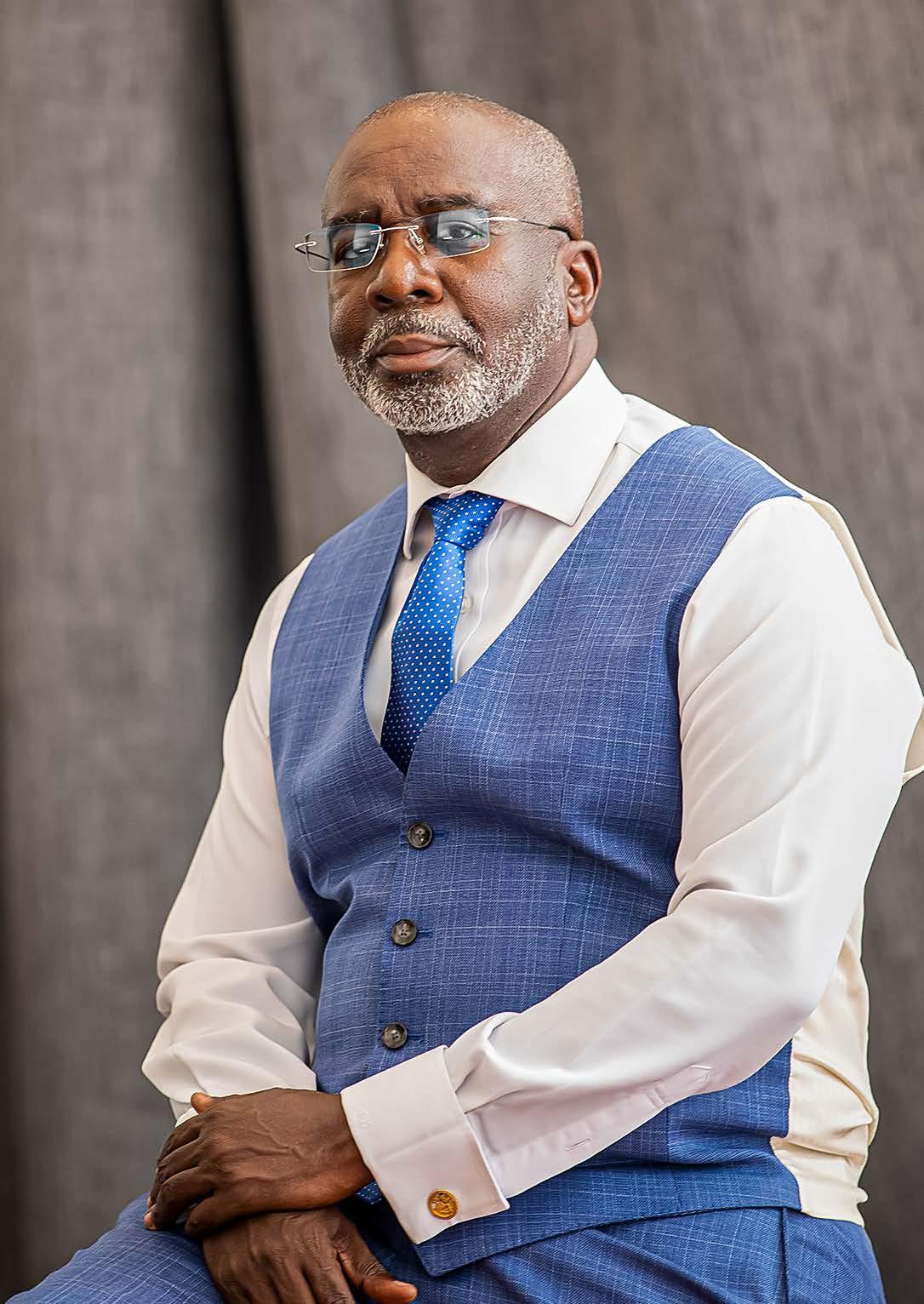
At African Leadership Magazine and its subsidiaries, we recognize the weight of responsibility that accompanies such a pivotal role. As Speaker Koffa stands at the helm of Liberia’s parliamentary affairs with a steadfast vision, ready to navigate the challenges and seize the opportunities that lie ahead, he spoke boldly to us.
In this exclusive interview conducted by our esteemed publisher, Dr. Ken Giami, and editor, King Richard, we delve deep into the heart of Speaker Koffa’s vision for Liberia. From legislative reform to regional integration and transparency to socioeconomic development, we uncover the strategies and aspirations that will shape Liberia’s future under his leadership.
Join us as we embark on a journey of insight, inspiration, and innovation with Speaker Cllr. J. Fonati Koffa, a beacon of hope in Liberia’s quest for progress.
Excerpt
Congratulations once again on your recent elevation to the position of Speaker of the Liberian National Parliament. We at African Leadership Magazine and its subsidiary companies extend our sincere congratulations to you. We’ve long admired your vision and dedication, not only to Liberia but to the broader African community.
Thank you very much. I appreciate the kind words.
Let’s delve straight into the interview. We understand the significance of your role as speaker and the priorities you’ve set. Could you elaborate on your vision and top priorities for both the Parliament and the people of Liberia?
Certainly. Our priorities are twofold. Firstly, we aim to reform the institution of the legislature to ensure transparency, accountability, and efficiency. This includes implementing systems for digital voting and public access to legislative proceedings. Secondly, we’re focused on using the budget as a tool for direct development impact, particularly in healthcare, education, and youth empowerment across all districts of Liberia.
Impressive vision, Speaker Koffa. Now, moving on to the relationship between the legislative and executive branches, could you outline your approach to fostering collaboration for effective service delivery?
Collaboration between the legislative and executive branches is paramount for democratic progress. Despite coming from opposing parties, we recognize the need to work together towards common goals. We’ve already begun aligning budgetary priorities with the president’s agenda and maintaining open communication channels to ensure smooth collaboration.
It’s commendable to see such cooperation between opposing parties. Now, let’s talk about institution-building. What steps are you taking to strengthen internal institutional frameworks within the legislature?
Our focus is on building human capacity through fair remuneration, improved working conditions, and training opportunities for staff. Additionally, we’re investing in infrastructure upgrades to digitize our processes and create a more conducive working environment, ultimately ensuring the sustainability of our institutions.
Excellent initiatives, Speaker Koffa. Regarding the relationship between the House of Representatives and the Senate, how do you plan to maintain collaboration between these two vital arms of government?
Collaboration between the House and the Senate is essential for effective lawmaking. We maintain regular consultation and coordination to ensure consensus on legislative matters. Our shared history and familiarity among members contribute to a strong working relationship between the two houses.
It’s reassuring to hear about the harmonious relationship between the chambers. Lastly, let’s discuss Liberia’s regional integration and your role in fostering stronger ties within the continent.
Our focus is on building human capacity through fair remuneration, improved working conditions, and infrastructure upgrades, ensuring the sustainability of our institutions.
Regional cooperation is crucial for Liberia’s development and Africa’s prosperity as a whole. We’re committed to active participation in regional bodies, advocating for Liberia’s interests, and promoting the vision of a united Africa. Through initiatives like the new Pan-Africanism, we aim to enhance economic growth and visibility for Liberia on the global stage.
Human capital development and socioeconomic growth are vital for Liberia’s prosperity. What initiatives do you have in mind to advance these areas and attract foreign direct investment?
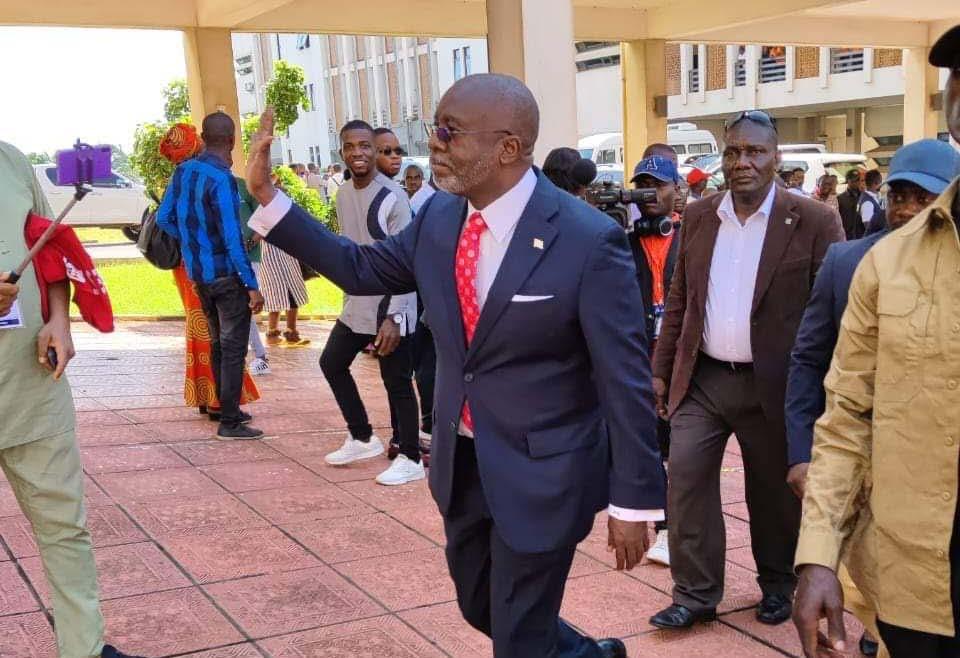
Our foremost priority lies in revitalizing our education system, which has languished in free fall for the past decade. We aim to ensure that our graduates are equipped with the necessary skills and competencies demanded by the job market, thereby attracting foreign investments and reducing reliance on expatriate labor.
Beyond traditional lawmaking, what plans do you have to enhance community development efforts?
Lawmakers bear the responsibility of addressing community needs beyond legislation. By strategically allocating resources, particularly in education, healthcare, infrastructure, and youth empowerment, we aim to reduce the burden on lawmakers and foster sustainable development in every district.
How do you plan to ensure transparency and accountability in Liberia’s governance?
Drawing from my experience as a special prosecutor, we intend to strengthen integrity institutions, enhance budgetary oversight, and subject the legislature to regular audits. By fostering a culture of accountability and transparency, we aim to instill public trust and confidence in our governance.
Considering the impact of the COVID-19 pandemic, what strategies do you propose to mitigate its effects on Liberia’s healthcare system and economy?
We recognize the need for localized healthcare infrastructure and awareness campaigns to combat future pandemics. By investing in district-level healthcare facilities and promoting health education, we aim to enhance Liberia’s resilience and response capabilities.
As the Speaker of the 55th Assembly, what legacy do you aspire to leave?
I envision a more transparent, responsive, and bipartisan legislature that prioritizes the needs of the people. By fostering cooperation and prioritizing national interests, we aim to lay the foundation for sustainable economic growth and development.
In conclusion, Speaker Cllr. J. Fonati Koffa’s vision for Liberia resonates with a commitment to progress, accountability, and inclusive development. As Liberia embarks on a transformative journey, his leadership sets a precedent for transparency, resilience, and prosperity.








Dr Adesola Adeduntan is an accomplished professional with distinctive domestic and international experience in commercial and investment banking, development finance, audit and consulting. He is a philanthropist and leader with a keen interest in providing platforms for developing other young leaders. He is the Chief Executive Officer of FirstBank Group, the commercial banking arm of FBN Holdings Plc, comprising FirstBank Nigeria and its subsidiaries: FirstBank UK in London and Paris, FirstBank in the Democratic Republic of Congo, Ghana, Guinea, Sierra Leone and The Gambia; FBNBank in Senegal; FirstBank Representative Office in Beijing, China; First Pension Custodian Nigeria Limited and First Nominees Nigeria Limited.
He oversees one of the most extensive transformation programmes in the subSaharan African financial services industry, aiming to reposition FirstBank Group to market pre-eminence.
Dr Adeduntan is leading the FirstBank Group on the journey to win the most significant emerging business opportunities in the financial services industry, through the development and execution of a digital-led strategy that has established the FirstBank Group as the dominant player in digital banking propositions. FirstBank Group’s transformation programme under his leadership has resulted in significant business expansion at the Bank: growing customer accounts from about 10 million in 2015 to over 42 million (including digital wallets), becoming the second largest issuer of cards in Africa with over 13 million issued cards, onboarding more than 23 million active customers on digital banking platforms and initiating and building the most expansive bank-led Agent Banking Network in Africa, with over 233,500 Agents.
Dr Adeduntan is currently on the Boards of FBN Holdings Plc, FirstBank UK Limited, Shared Agent Network Expansion Facilities Limited (SANEF) and Nigeria Interbank Settlement System (NIBSS). He had served as an Executive Director and Chief Financial Officer of FirstBank. Prior to FirstBank, he was a Director and the pioneer CFO/Business Manager of Africa Finance Corporation (AFC). At AFC, he led the team that designed and executed the Corporation’s International Credit Rating Strategy, culminating in the Corporation being assigned an A3 international credit rating by Moody’s, making it the second highest-rated lending entity in Africa. Dr Adeduntan also served as a Senior VicePresident & CFO at Citibank Nigeria Limited, a Senior Manager in the Financial Services Group of KPMG Professional Services and a Manager at Arthur Andersen.
Dr Adeduntan’s career in banking and finance, spanning almost three decades, has earned him various recognitions and awards, such as Forbes Best of Africa – Outstanding Leader in Africa; Distinguished Alumnus Award by both the School of Management, Cranfield University, UK and the University of Ibadan; African Banking Personality of the Year; African Banker of the Year and induction into the African Leadership Magazine Hall of Fame and African Leadership Council; Honorary Citizenship of the State of Georgia and Congressional Commendation Award from the Georgia Senate – USA; Bank CEO of the Year by the AES Excellence Club; Banking
Icon of the Decade Award by The Sun; and African Banking Leadership Legacy Award by the African Leadership Organization, amongst others.
He holds a Doctor of Science, Honoris Causa and an MBA from Cranfield University, United Kingdom, which he attended as a Chevening Scholar, and a Doctor of Veterinary Medicine from the University of Ibadan. He has attended various executive and leadership programmes at Harvard Business School (USA), Wharton School (USA), London Business School (UK), IESE (Spain), University of Oxford (UK), University of Cambridge (UK), CEIBS (China) and INSEAD (France). He is a fellow of the Institute of Chartered Accountants of Nigeria (ICAN) and the Chartered Institute of Bankers of Nigeria (CIBN).
A philanthropist par excellence, Dr Adeduntan is a member of the Bretton Woods Committee – the nonpartisan network of prominent global citizens that works to demonstrate the value of international economic cooperation and fostering strong, effective Bretton Woods institutions as forces for global well-being. He is also a member of the Sigma Educational Foundation – focused on enhancing the quality of the tertiary education system in Nigeria, a member of the Steering Committee of the Private Sector Coalition Against COVID-19 (CACOVID) in Nigeria, a member of the Governing Council of the CIBN and a member of the Board of Lagos State Security Trust Fund. He holds the traditional title of Apesinola of Ibadanland.
Dr Adeduntan is married with children and enjoys listening to music, especially African folk music.
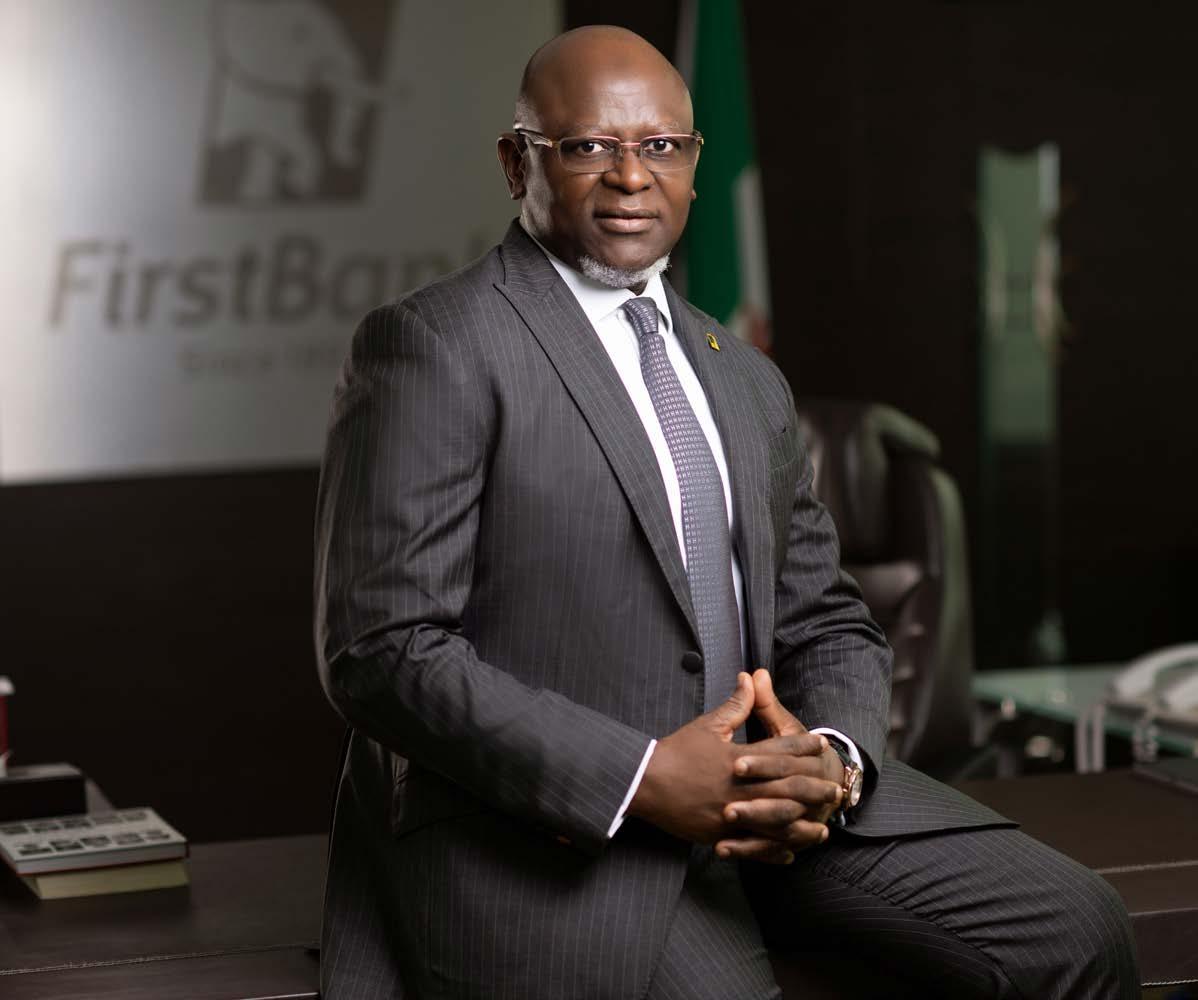
Here is an enlightening discussion with H.E. Adanech Abiebie, the Mayor of Addis Ababa City, Ethiopia. Mayor Abiebie’s journey from rural Ethiopia to becoming the first female Mayor of Addis Ababa in over a century embodies resilience and determination. Her transformative leadership style, shaped by her experiences as a teacher and local government practitioner, has redefined governance in the city.
As a trailblazer for gender equality and women’s empowerment, Mayor Abiebie’s tenure has inspired countless women to aspire to leadership roles. Throughout her leadership, she has championed inclusivity, diversity, and transparency, fostering unity among

Addis Ababa’s diverse population. In this interview, Mayor Abiebie shares her insights into her strategies for economic development, combating corruption, and her vision for Addis Ababa’s future, offering a glimpse into her pioneering approach to governance.
Excerpt:
Kindly tell us about your background and upbringing, highlighting specific experiences or influences that have played a pivotal role in
shaping your leadership style and approach to governance today.
“My name is Adanech Abiebie. I was born and raised in rural Ethiopia. Similar to all girls (especially rural girls), I grew up in the most challenging and overburdened environment. It was solely due to my father’s commitment that I finished high school. I used to travel every day, carrying my lunch boxes, mostly shared with many, and I didn’t get married early, unlike most of my age mates. I began my career as a teacher, where I started practicing early leadership and serving the community. Later, my duties as a local government practitioner were where I cultivated my leadership and serviceoriented approach. I was deeply connected to the problems of the community and undertook various initiatives, even voluntarily. After graduating from law school, I chose to work in a public capacity rather than becoming a private lawyer, where I could have earned more income. In essence, my exposure to the problems of local communities and my engagement in teaching and local governments are where my leadership styles and approaches were ingrained.”
As the first female mayor of Addis Ababa in over a century, your achievement marks a significant milestone. How do you believe this milestone has influenced the city and contributed to the empowerment of women?
I believe that my appointment as the first elected female mayor has inspired more women and instilled the spirit of ‘women can’. Given the complex nature of the city and the attitudes towards women, my achievements have dispelled deep-rooted myths about women. It has motivated many women and ignited the spirit of self-belief. I believe in many other women out there and aim to expose them to early and high-career opportunities. It is the first time that I have appointed 50 percent of my cabinet to be women. In challenging offices like security and construction, middle-level administrations were assumed by women, who were recognized as the best leaders of the year.
In what ways do you plan to actively involve and empower women in leadership roles within the city administration and other sectors?
As I mentioned earlier, I believe in providing opportunities for early-career leadership and coaching and mentoring them. Moreover, I believe in transforming the system to accommodate and believe in women. I strongly believe in reaching out to girls during their school years and economically empowering the destitute through capacity development.
Your achievement represents a significant milestone for gender equality and women’s empowerment. How have you leveraged your position to advocate for the rights and empowerment of women in Addis Ababa, and what specific initiatives have you
implemented to address gender disparities and promote inclusivity in the city?
Besides creating opportunities for practicing leadership, I am advocating for women’s rights and empowerment. I believe that economic empowerment is fundamental to this. Initiatives like the establishment of the Injera factory (which exclusively hired and engaged women), the establishment of a women’s rehab and development center serving 2000 destitute women per cohort, and the implementation of the Addis Ababa Early Childhood Development Programme as my legacy goal, which trained and hired 5000 female parental coaching workers primarily serving mothers and caregivers, are among the initiatives targeting gender equality and women’s empowerment.
You have spearheaded various reforms and anti-corruption efforts throughout your career. Could you provide examples of specific initiatives or accomplishments in this regard?
Tax administration and governance reform, initiated during my tenure as the Minister of Revenue, local land administration reform at the sub-city level, and recent public service delivery reforms are examples. These three areas are where the prevalence of corruption and public dissatisfaction is higher in my country. The tax administration and governance reforms have resulted in a double-digit growth in the amount of tax collected. The latter two are in their infancy stage, yet feedback is encouraging.
How are you building upon these achievements in your role as mayor, and what are your strategies to enhance governance and transparency in Addis Ababa?
Representation in all local government organs and collaboration with community representatives are effective ways to engage all, including minorities.
I always initiate new reforms after adequately learning from the previous ones. I maintain consistency and remain persistently committed while initiating reforms. To maintain transparency, I believe it is essential to ensure the highest level of stakeholder and all-actor engagement throughout the process and strive to make them owners of the initiatives. I effectively utilize the councils established by the laws, establishing ad hoc councils like the Tax Improvement Council in the city.
Addis Ababa is a city with a rich history and a diverse population. How have you leveraged this diversity to foster inclusivity and unity among residents, and what steps will you take to ensure that all voices are heard in the decision-making process?
We have many commonalities to cultivate, leveraging diversity, and strengthening unity. I also create platforms that foster inclusivity. The recently inaugurated Adwa Victory Memorial is among the landmarks proclaiming our unity. My administration’s commitment to providing land for establishing cultural centers for various ethnic groups is among many initiatives symbolizing accommodating diversity.
How do you plan to ensure that marginalized communities and minority groups are adequately represented in city decision-making processes?
Representation in all local government organs, provision of opportunities for representation in councils and executing bodies at all levels, and close collaboration with community representatives are among the effective ways to engage all, including minorities. It was during my administration that unelected opposition party members were appointed to the executive body, including the city’s cabinet.
I believe in transforming the system to accommodate and believe in women, reaching out to girls during their school years and economically empowering the destitute.
Your experience as a former Minister of Revenue and Attorney General reflects your commitment to upholding the rule of law. How have you employed your legal background and expertise to address challenges such as land management, property rights, and regulatory enforcement in Addis Ababa?
As a lawyer, my primary strategy to initiate, execute, and institutionalize reforms of all kinds was to scrutinize the gaps in the laws and fill them either through amendments or enactments of new ones. I strongly believe that laws are powerful tools of institutionalization and effectiveness in leading reforms.
What measures do you plan to implement to ensure fair and equitable enforcement of laws and regulations in the city, especially regarding land management and property rights?
Fair and equitable enforcement of all kinds of laws begins with enacting laws with these spirits, ensuring the capabilities of law enforcement agencies, and strengthening the capacities of lawmaking agencies. My plan starts with reviewing the laws to make them fair and equitable and maintaining balance among the law-making and enforcing agencies.
Economic development is a priority for Addis Ababa, especially given the current macroeconomic challenges. What strategies do you have in place to stimulate economic growth, attract investment, and create job opportunities for residents?
Our strategies for economic development are integrated. We strongly believe in intervening at all levels. We begin by empowering households with our ’Lemat Turufat’ (my food in my backyard) human-centered initiatives. We are working to create hundreds of thousands of jobs for unemployed youth and women. Yet, we are attracting the engagement of the private sector through the recently started public-private partnership. Our incentives, including providing land at fair lease prices, building industry parks, and providing tax incentives, are encouraging many to invest in the city. Moreover, the recently initiated local development plans for revitalizing the inner cities are geared to initiate local economic developments.
Finally, can you share your vision for Addis Ababa’s future under your leadership? What are your main goals as mayor, and what legacy do you hope to leave behind for future generations?
My team and I have a shared vision: to make Addis the beacon of Africa’s prosperity. We are laboring to make Addis a clean, green, and livable city. I strongly believe that Addis should live up to its name (New Flower) and its significant role as the capital of the nation, the continent, and the third diplomatic hub of the world. We aspire to rework to build the new face of Addis—a revitalized, modern, socio-economically vibrant, and just city. I designated my legacy goal: to make Addis the best African city to raise children. Children—the future hope of the Addis Ababa Early Childhood Programme—is a comprehensive strategic program I am leading to realize my legacy goal. This is due to multiple reasons that range from the benefits of investing in the early days of human beings to the strategic capacity to break the vicious circle of poverty at the household level.
You recently emerged as the female leader of the year in Ethiopia. How does this recognition resonate with you, and what significance do you believe it holds for the advancement of women’s leadership and empowerment in Ethiopia?
Being a female leader is not a common practice in the global south. Just a few thrive and survive on this scale. I would like to extend my gratitude to my prime minister, His Excellency Abiy Ahmed (PhD), and my part-prosperity party, who are spearheading the engagement of women in leadership at this scale in the history of the country. I am part of this practice. It is mostly because of this trust that I am here. These kinds of recognition are sources of more energy and motivation. Not only will it motivate me, but it will also inspire other women leaders and aspiring sisters.

Embark on a journey of economic transformation and strategic collaboration as we engage in an enlightening interview session with Mr. Mike Kamungeremu, the esteemed President of the Zimbabwe National Chamber of Commerce (ZNCC). Through this dialogue, Mr. Kamungeremu sheds light on the crucial partnerships forged with international entities like the Friedrich Naumann Foundation for Freedom and the United Nations, highlighting their pivotal role in propelling Zimbabwe’s economic landscape forward.
His tenure at ZNCC has been characterised by proactive strategies aimed at fostering industrial development and enhancing the business environment, as he delineates specific frameworks and policy interventions crafted to drive growth. Join us as we delve into his vision for the future of ZNCC and Zimbabwe’s economic trajectory, navigating the challenges posed by global disruptions and offering pragmatic insights on sustaining growth amidst uncertainties.
Mr. Kamungeremu, could you provide a brief overview of your career journey leading up to your current roles?
Internally, we have strengthened ties with other Business Member Organisations (BMOs) through platforms like WhatsApp groups and have signed numerous Memoranda of Understanding (MOUs) with sister Chambers of Commerce globally.
Certainly. I am Mike Kamungeremu, currently serving my second term as President of the Zimbabwe National Chamber of Commerce. Concurrently, I hold the position of Managing Director at Tendo Electronics, a leading power and ICT solutions company in Zimbabwe. With a tenure of 16 years at Tendo, I have progressed from head of finance to managing director, overseeing our expansion into Zimbabwe and Zambia. Notably, in 2023, we pioneered the deployment of a containerised prefabricated data centre in Zambia, a first in Sub-Saharan Africa. My association with the Chamber of Commerce commenced in 2014, following recognition for my contributions at Tendo. Since then, I have occupied various roles within the Chamber, culminating in my election as President. Academically, I hold qualifications as a chartered management accountant, an MBA graduate, and a Bachelor of Laws.
Regarding the 2023 Business Review Conference hosted by ZNCC, could you highlight its key outcomes and significance for Zimbabwe’s business landscape?
The annual Business Review Conference, held in December, serves as a platform for stakeholders to reflect on the successes and challenges of the previous year. A significant addition to the conference was the introduction of the ZNCC State of Industry and Commerce survey, providing invaluable insights for
policymaking. The event featured a special lecture on artificial intelligence by Professor Arthur Mutambara, sparking discussions on its implications for businesses. Additionally, we deliberated on topics such as the African Continental Free Trade Area and provided feedback on recently enacted policies, fostering constructive dialogue between the business community and the government.
As President of ZNCC, you’ve emphasised collaboration among stakeholders. Could you discuss specific initiatives or strategies you’ve implemented to foster this collaboration amidst challenging conditions?
Collaboration lies at the heart of our approach at ZNCC. Internally, we have strengthened ties with other Business Member Organisations (BMOs) through platforms like WhatsApp groups and have signed numerous Memoranda of Understanding (MOUs) with sister Chambers of Commerce globally. Our engagement extends to international forums such as the COMESA Business Council, and we have forged partnerships with organisations like AFSIC. Additionally, we organise events like the Congress and the Zimbabwe International Trade Fair to facilitate networking and investment opportunities for our members.
Reflecting on your tenure as ZNCC President, what would you consider your proudest achievements?
Signing additional MOUs and enhancing cooperation between BMOs stand out as significant achievements. Moreover, our involvement in the Tripartite Negotiating Forum and COMESA Business Council underscores our commitment to advocacy and representation for Zimbabwean businesses. Additionally, our contributions to national policies and budget processes have amplified the Chamber’s voice, fostering a conducive business environment.
As Managing Director of Tendo Electronics, how have you leveraged industry expertise to bridge the gap between industries and government, facilitating smoother information flow for business development?
Tendo Electronics plays a vital role in advocating for the energy sector and renewable energy initiatives. By engaging directly with government stakeholders, we have addressed
challenges such as power shortages and regulatory barriers. Through initiatives like the State of Industry and Commerce survey, we provide data-driven insights to inform policy decisions. Our collaborative approach ensures that industry expertise is utilised effectively to drive sustainable business development.
Collaborating with international entities such as the Friedrich Naumann Foundation for Freedom and the United Nations is notable. How have these partnerships contributed to ZNCC’s objectives and Zimbabwe’s economic growth under your guidance?
With the United Nations Development Programme, we have collaborated on various projects aimed at funding development in Zimbabwe. For instance, they funded workshops to gather data for prioritising development areas. The Friedrich Naumann Foundation also supported survey processes and report printing, emphasising the importance of informed policymaking.
Can you outline specific strategies or frameworks you’ve championed to guide industrial development and create an environment conducive to commerce during your presidency at ZNCC?
During my tenure as ZNCC president, I have focused on streamlining export processes and removing barriers such as excessive export payments. We successfully advocated for policy changes such as the removal of “surrender requirements,” which hindered banking activity. By engaging policymakers and addressing industry challenges, we have fostered a more conducive business environment.
Considering the global disruptions such as the COVID-19 pandemic, exchange rate fluctuations, and others, how do you navigate these challenging issues to ensure that the members of the Chambers achieve growth and sustainability?
We emphasise proactive planning and engagement to mitigate risks and capitalise on opportunities. We advocate for stable monetary policies and transparent decision-making processes, collaborating with government agencies and the private sector to address challenges effectively.
On the positive side, how would you describe your business environment generally for people who need to invest in Zimbabwe from different parts of Africa?
Zimbabwe offers significant investment opportunities across various sectors, from abundant mineral resources to strategic trade advantages within Africa. The government’s commitment to facilitating investments ensures a supportive environment for businesses. Additionally, the peaceful atmosphere and skilled workforce further enhance Zimbabwe’s appeal as an investment destination.
Looking ahead, what are some key priorities or visions you have for the ZNCC in the near future to further bolster Zimbabwe’s economic development and business environment?
My vision includes fostering increased businessto-business collaboration and promoting value addition to raw materials, particularly in mining and agriculture. By encouraging local processing and manufacturing, we can create jobs and boost economic growth.
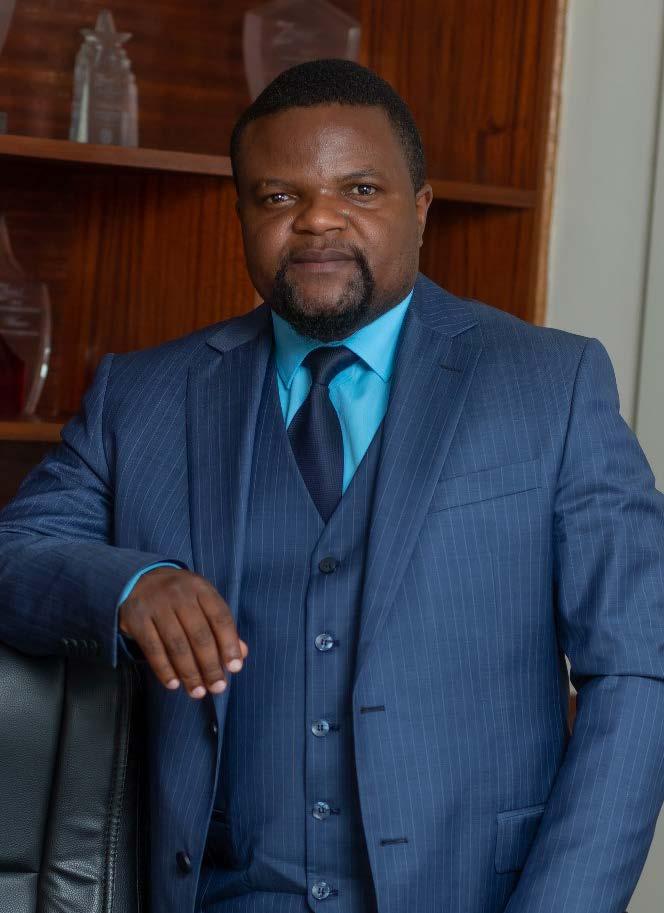

In an exclusive interview, we explore the leadership insights of Senator (Dr.) Ibrahim Gaidam, a distinguished figure with over four decades of profound experience in public administration and governance. As the Minister of Police Affairs, Dr. Gaidam brings a wealth of knowledge and expertise to shape Nigeria’s approach to law enforcement and security in an era marked by evolving challenges. Drawing from his tenure as the longest-serving governor of Yobe State and his distinguished career as a chartered accountant, Dr. Gaidam underscores the paramount importance of collaboration, strategic planning, and resource management in effective governance. His leadership philosophy, rooted in transparency, accountability, and inclusivity, forms the bedrock of his vision for the Ministry of Police Affairs, driving initiatives aimed at modernizing law enforcement, strengthening community policing, and safeguarding public safety. Join us as we unravel Senator (Dr.) Ibrahim Gaidam’s transformative journey at the helm of the Ministry of Police Affairs, exploring his strategic reforms, international collaborations, and unwavering commitment to ensuring a safer and more secure Nigeria for all.
Excerpt:
With over 40 years of extensive experience in public administration and governance, what specific lessons have you learned throughout your career that have shaped your approach to leading the Ministry of Police Affairs?
Throughout my extensive career in public administration and governance, I have learned valuable lessons that have shaped my approach to leadership in the Ministry of Police Affairs. My experience as the longest-serving governor of Yobe State has provided me with insights crucial to effective leadership in this role.
One of the most important lessons I have learned is the significance of collaboration and partnership. Meaningful progress in public administration and governance can only be achieved through collaborative efforts with various stakeholders, including government agencies, communities, and private sector entities. My approach emphasizes building strong partnerships to address complex law enforcement and security challenges.
Additionally, effective resource management and strategic planning are crucial. As a chartered accountant, I understand the necessity of sound financial management in driving sustainable development initiatives within the ministry. I strive to ensure that resources are optimally allocated to address critical issues such as modernizing law enforcement and enhancing community policing.
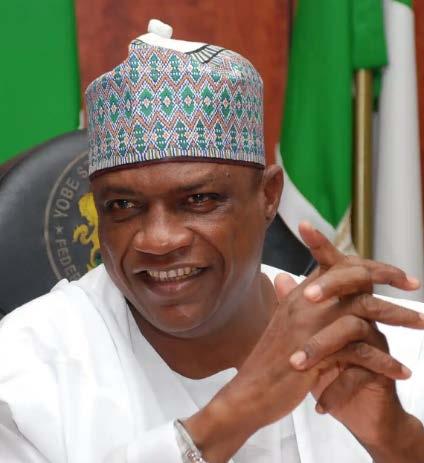
Furthermore, my leadership and governance skills have been honed through years of public service. I understand the need for transparent, accountable, and inclusive governance in the management of law enforcement agencies. This has influenced my approach to promoting professionalism, integrity, and ethical conduct within the ministry.
In summary, my approach to leading the Ministry of Police Affairs is shaped by the lessons I have learned throughout my career. I am committed to fostering collaboration, efficient resource management, and exemplary governance practices to advance the ministry’s mandate of ensuring public safety and security for all citizens.
As Minister of Police Affairs since 2023, could you highlight some key initiatives or reforms you’ve implemented to enhance law enforcement and security in Nigeria?
As the Minister of Police Affairs in Nigeria, I have spearheaded several key initiatives and reforms to enhance law enforcement and security in response to the alarming rise in insecurity across the nation.
Strengthening Collaboration with Security Agencies: Enhancing collaboration between the Nigerian Police Force and other security agencies has been a key initiative. This involves
facilitating joint operations, intelligence sharing, and coordinated efforts to address security challenges.
Tactical Operations and Apprehension of Criminals: Intensifying tactical operations to combat criminal activities, particularly kidnappings, banditry, and terrorist activities, has been a priority. Notable successes include apprehending notorious criminal syndicates involved in kidnappings and “one chance” operations.
Rescue Operations: Prioritizing rescue operations to free hostages and victims of criminal activities. This involves deploying specialized units to conduct rescue missions and safely recover individuals who are abducted or in danger.
Community Engagement and Empowerment: Emphasizing community policing initiatives to build trust and collaboration with local communities. This includes outreach programs, partnerships with local leaders, and initiatives to enhance security at the grassroots level.
Transparent, accountable, and inclusive governance practices are essential for promoting professionalism and integrity within law enforcement agencies
Training and Capacity Building: Enhancing the professional capabilities of law enforcement officers through training and capacity-building programs. This includes specialized training in counter-terrorism, hostage rescue, and modern policing techniques.
Technology and Surveillance: Investing in modern technology and surveillance capabilities to improve intelligence gathering, crime detection, and response capabilities. This includes the deployment of CCTV systems, drones, and other advanced tools.
Legislative Reforms: Advocating for legislative reforms to strengthen the legal framework for law enforcement and introduce measures to enhance the effectiveness of security operations and the prosecution of criminals.
These initiatives and reforms are part of a comprehensive strategy to address the critical issue of insecurity and work towards sustainable
solutions that ensure the safety and security of all Nigerians.
Your emphasis on actionable strategies for effective security is commendable. Can you provide examples of such strategies and their outcomes in improving law enforcement efforts?
Certainly! Here are some actionable strategies for effective security and their potential outcomes for improving law enforcement in Nigeria:
Intelligence-Led Policing: Implementing intelligence-led policing involves gathering and analyzing intelligence to proactively prevent and combat crime. This can include the use of advanced technology, informants, and data analysis to identify criminal activities before they occur. Outcomes may include a higher rate of preemptive arrests, disruption of criminal networks, and improved public safety.
Community Policing: Emphasizing community policing involves building strong partnerships between law enforcement agencies and the communities they serve. This strategy focuses on engaging with local residents, collaborating with community leaders, and involving citizens in crime prevention efforts. Outcomes may include improved trust in law enforcement, better information sharing, and enhanced crime prevention at the grassroots level.
Specialized Training and Equipment: Providing specialized training and modern equipment to law enforcement officers can enhance their capabilities in responding to specific security challenges, such as terrorism, kidnapping, and cybercrime. Outcomes may include improved response times, higher success rates in operations, and increased officer safety.
Targeted Task Forces: Establishing specialized task forces to address specific types of crime, such as kidnapping, human trafficking, or drug smuggling, can lead to more focused and effective law enforcement efforts. Outcomes may include increased arrests, the dismantling of criminal networks, and reduced criminal activities in targeted areas.
Strengthening the Legal Framework: Advocating for legislative reforms to strengthen the legal framework for law enforcement can streamline prosecution processes, enhance the admissibility of evidence, and provide law enforcement with the necessary tools to combat crime effectively.
These strategies, when effectively implemented, can contribute to significant improvements in law enforcement and security in Nigeria. However, sustained commitment, adequate resources, and ongoing evaluation are essential for their success.
Collaborating with international bodies like INTERPOL indicates a commitment to tackling crime and terrorism on a global scale. How do you envision strengthening these international partnerships to address evolving security challenges?
Strengthening international partnerships to address evolving security challenges is crucial in the modern interconnected world. Here are several ways to envision strengthening these partnerships:
Information Sharing: Enhancing the sharing of information and intelligence among international bodies, law enforcement agencies, and governments. This can be done through secure channels and platforms, ensuring that relevant and timely information is shared to prevent and respond to security threats effectively.
Joint Training and Exercises: Facilitating joint training programs and exercises among law enforcement and security agencies from different countries to improve coordination and response capabilities in the face of evolving security challenges.
Standardization of Procedures: Working towards standardizing procedures and protocols for addressing common security concerns, such as cybercrime, human trafficking, and terrorism. This can help create a more cohesive and coordinated approach to tackling these issues across borders.
Capacity Building: Supporting capacitybuilding efforts in countries that may have limited resources to address security challenges effectively. This can involve providing training, technology, and resources to enhance their capabilities in areas such as border security, counter-terrorism, and cyber defense.
Leveraging Technology: Embracing technological advancements to improve international collaboration on security issues. This can include the use of data analytics, artificial intelligence, and digital platforms for sharing information and coordinating responses in real-time.
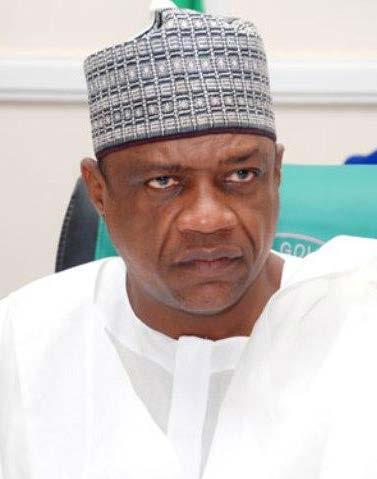
Legal Frameworks and Extradition: Strengthening legal frameworks and mechanisms for extradition and prosecution of criminals across borders. This can help ensure that perpetrators of transnational crimes are held accountable for their actions.
Engagement with the Private Sector: Fostering collaboration with the private sector, including technology companies, financial institutions, and other relevant industries, to address security challenges such as cyber threats and illicit financial activities.
Multilateral Diplomacy: Engaging in multilateral diplomacy to build consensus and collective action on global security issues through international organizations and forums.
By focusing on these areas, international bodies like INTERPOL can increase their effectiveness in tackling crime and terrorism on a global scale, ultimately creating a safer and more secure world for all.
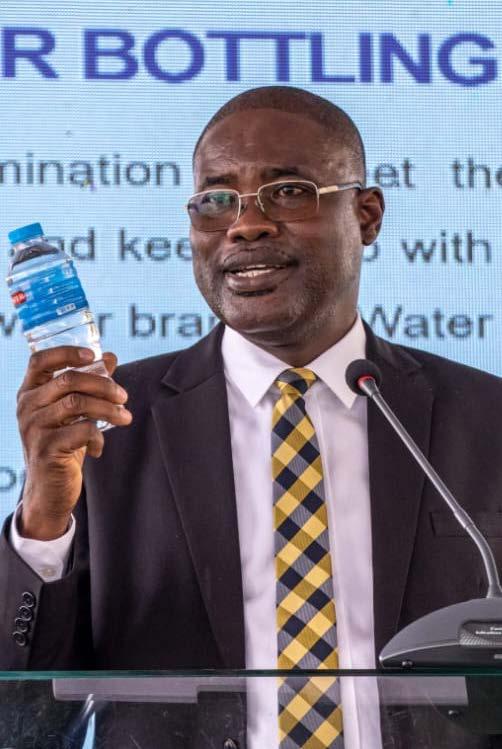
In a rare and exclusive interview, ALM engages with Dr. Clifford A. Braimah, the visionary Managing Director of Ghana Water Company Limited (GWCL), to delve into the transformative initiatives propelling the company’s success. Under Dr. Braimah’s astute leadership, GWCL has embarked on a journey of innovation and efficiency, reshaping the water sector landscape in Ghana. From pioneering digital solutions to enhancing operational transparency, Dr. Braimah’s strategic vision has propelled GWCL to new heights, setting a benchmark for excellence in service delivery and customer satisfaction.
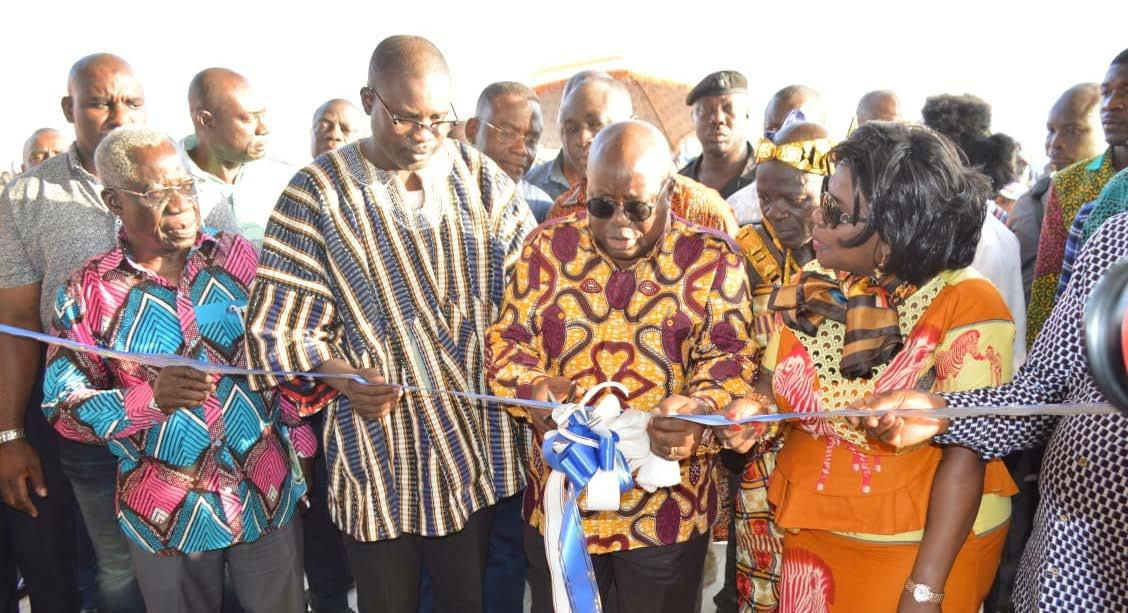
Dr. Braimah’s tenure at GWCL has been characterised by a series of groundbreaking projects aimed at revolutionising the water utility industry. From implementing efficient metering replacement programmes to introducing smart metres and digitalising commercial processes, GWCL has embraced technology to streamline operations and improve billing accuracy. Moreover, Dr. Braimah’s commitment to enhancing the customer experience is evident in initiatives such as the GWCL Customer App and the enhancement of call centre operations, ensuring swift responses to customer queries and complaints. As GWCL continues to innovate and evolve, Dr. Braimah’s leadership remains pivotal in driving the company towards a future defined by excellence and sustainability in water management.
Your tenure as Managing Director of Ghana Water Company Limited (GWCL) has been marked by various reforms and initiatives aimed at enhancing operational efficiency and service delivery. Could you elaborate on some of the key projects or reforms you’ve spearheaded since assuming this role?
As Managing Director of GWCL, I’ve spearheaded several key projects and reforms aimed at enhancing operational efficiency and service delivery. Some of these initiatives include:
- Implementation of efficient metering replacement programmes to ensure 100% metering for accurate billing and reduced discrepancies.
- Introduction of smart metres to enhance billing accuracy and overall efficiency.
- Enhancement of our electronic billing system to eliminate armchair reading, reduce inaccuracies, and simplify customer payments.
- Digitalisation of commercial processes, including the development of the GWCL Customer App, facilitating inquiries, complaints, payments, and bill generation.
- Enhancement of GWCL Call Centre operations with a customer relationship management system (CRM) for swift responses to queries and complaints.
GWCL saw a substantial increase in revenue in 2022, with a projected 65% surge in 2023. Can you outline the strategies GWCL employed to achieve this growth and elaborate on the measures in place to sustain this momentum?
Leveraging digital payment channels, including the customer app, mobile money services, and payment service providers, has significantly improved revenue collection at GWCL.
The substantial increase in electronic payments in 2022 and the projected 65% surge in 2023 can be attributed to several strategies employed by GWCL, including:
- Introducing user-friendly digital payment platforms such as the GWCL Customer App, Mobile Money, and Payment Service Providers, with water bill payments being electronic levy (E-levy) exempt.
- Conducting educational campaigns to promote the benefits and convenience of using the GWCL Customer App and electronic payments.
To sustain this momentum, GWCL will continue to invest in technological advancements, improve the user experience, and expand its digital payment offerings.
Leveraging digital payment channels has been pivotal in improving revenue collection at GWCL. Could you expand on the digital initiatives introduced, such as the customer app and mobile money services, and discuss their impact on bill payment rates?
Leveraging digital payment channels, including the customer app, mobile money services, and payment service providers, has significantly improved revenue collection at GWCL. These initiatives have made it easier and more convenient for customers to pay their water bills, leading to higher payment rates. The GWCL Customer App, in particular, has seen remarkable growth in its user base and transaction volume, indicating its effectiveness in facilitating bill payments and enhancing customer engagement.
Addressing metering irregularities is crucial for revenue integrity. What proactive measures has GWCL implemented to combat such irregularities and uphold billing transparency?
To address metering irregularities and uphold billing transparency, GWCL has implemented
proactive measures such as:
- Regular metre maintenance and replacement programmes to ensure accurate readings.
- Investment in smart metres to enhance accuracy and detect irregularities effectively.
- Implementation of metre inspection and verification processes in the billing system to identify and rectify discrepancies.
- Customer education and awareness campaigns to encourage reporting of irregularities and promote transparency.
Looking forward, what are the primary areas of focus for GWCL in terms of revenue management, water quality enhancement, customer service optimisation, and tackling emerging water sector challenges?**
Looking forward, the primary areas of focus for GWCL include:
- Continued investment in technological innovations to improve revenue management, water quality, and customer service.
- Strengthening partnerships with local and foreign stakeholders to address emerging challenges like climate change and population growth.
- Implementing targeted marketing strategies and community outreach programmes to attract new customers and sustain growth.
- Enhancing operational efficiency and service delivery through ongoing reforms and initiatives aimed at improving overall performance.


serving as a mentor to utilities in other countries. Notable examples include the Guma Valley Water Company (GVWC) in Sierra Leone and the Gambian National Water & Electricity Company (NAWEC). Through these mentorship initiatives, GWL shares its wealth of knowledge and best practices, fostering sustainable development and enhancing water management practices globally.
Acknowledged for his outstanding leadership, Dr. Braimah has received numerous prestigious awards and accolades. These include being recognised as the “Best CEO in the Utility Sector for the year 2018” by the Ghana Industry and Humanity Magazine International and receiving the “Innovation in Finance & Partnerships” award at the 2019 WEX GLOBAL Awards/Conference. Additionally, he has been honoured as “Ghana’s Most
At the helm of Ghana Water Limited, Dr. Braimah has spearheaded transformative projects and initiatives, earning the company esteemed recognition on both local and international platforms. His legacy is one of excellence, sustainability, and profound impact, setting a standard for leadership in water management and engineering. Through his visionary leadership, Dr. Braimah continues to drive significant advancements in the field, leaving an indelible mark on the global water engineering community.

In an illuminating conversation with Henry Saamoi, the Chief Executive Officer of International Bank (Liberia) Limited, we delve into the profound impact of his leadership on Liberia’s financial landscape. Saamoi’s visionary approach to leadership has steered International Bank towards unprecedented success, with a focus on collaboration and empowerment. Throughout this interview, Saamoi reflects on his professional journey, strategic direction, and the bank’s pivotal role in fostering economic strength and community development in Liberia. From navigating challenges in
the banking sector to driving innovation and embracing technology, Saamoi shares insights that illuminate the path towards a brighter financial future for Liberia. Join us as we explore the professional prowess of Henry Saamoi and his enduring influence on Liberia’s financial trajectory.
The Excerpt
As the Chief Executive Officer of International Bank (Liberia) Limited, how do you believe your leadership has played a pivotal role in the success and positive impact of the institution?
Our leadership style has been collaborative, working through our staff to achieve results. We are people, and so we wouldn’t want to take all the credit for the success and positive impact of International Bank (Liberia) Limited. However, we can say that working and leading a highly dedicated team of professionals has brought enormous benefits and visible changes to International Bank (Liberia) Limited. We led a team of professionals who provided us with all the support that we needed to change the trajectory of the bank since we took over as the Chief Executive Officer in 2012. When an organisation has a leader with a vision, pursues that vision with high levels of commitment, dedication, and integrity, and has a team that buys into that vision and is willing to provide support, changes are obvious, which is what is seen in International Bank (Liberia) Limited today.
Can you share insights into the strategic direction you’ve set for the bank under your leadership and how these strategies contribute to its growth and relevance in Liberia’s banking sector?
When we took over as Chief Executive Officer of International Bank (Liberia) Limited, our vision was to lead a bank that would be resilient and stand the test of time amidst the competition from competitors with vast resources and external support. To achieve this strategic vision, training and education were critical to getting the proper personnel to deliver excellent services. To begin this process, we began a process of staff development, leading to staff attending the Ghana Banking College as well as the Graduate School of Banking at the University of Wisconsin in Madison, Wisconsin. When we assumed office, we made a determined effort to relocate these offices to a prominent location that would attract attention from the banking community. This was to send a message that International Bank (Liberia)
Limited was a bank of “trust and reliability” and that our presence in Liberia was for the good of the Liberian people.
Reflecting on your professional journey, what key experiences or milestones have shaped your approach to leading International Bank (Liberia) Limited?
Ownership was key in defining and shaping our approach to leading International Bank (Liberia) Limited. Looking around, IBLL was and still remains the only foreign-owned financial institution with Liberian leadership. Thus, the concept of ownership evolves. As a Liberian leading a major financial institution in Liberia with no significant Liberian stake in its ownership, the Liberian leadership had to own up to the responsibilities and deliver stellar performance to assure its investors that Liberians were capable of managing foreign investments with high levels of commitment, dedication, and, most of all, integrity. After more than 10 years in this position, the changes at International Bank (Liberia) Limited are visible both in terms of infrastructure, performance, and staff development—a core foundation of our leadership—to develop and mentor a team that would always be trusted by high levels of commitment, dedication, and integrity.
Ownership, commitment, and integrity define our leadership approach at International Bank (Liberia) Limited, shaping a transformative journey of infrastructure development and staff empowerment
In an ever-evolving financial landscape, how does International Bank (Liberia) Limited innovate to provide simplified banking solutions for its customers, and what role does technology play in this process?
The digitisation of financial services is a core requirement for modern-day banking. As technology evolves in all facets of life, banking remains no exception to this changing landscape. Thus, to remain competitive, IB is also innovating to catch up with the fast pace of technology and is providing and improving upon its digital space by leveraging modern technology to provide critical services to its clientele. The intent of this deliberate move is to improve upon our customer experience, increase our operational efficiency, and reduce costs for both ourselves and our valued clientele.
IB currently offers internet, SMS, and agency banking services and is fast moving into the e-commerce space via our MasterCard services. We also recently launched our Agency Banking module to facilitate banking transactions where International Bank (Liberia) Limited has no physical presence. The goal is that no one is left behind in the financial inclusion agenda of the country.
I understand community empowerment is a focus for you. Can you elaborate on the bank’s initiatives to empower communities in Liberia and how these efforts align with its overall mission?
IB in the Community is the core mantra of our corporate social responsibility initiatives. Our focus is on health and education. To that end, IB continues to partner with various educational and health institutions in the provision of scholarships for young, aspiring students and quality healthcare services. For IB, we believe in a healthy mind in a healthy body, thus our focus on health and education.
Our strategic vision for International Bank (Liberia) Limited prioritizes resilience, training, and infrastructure, ensuring our commitment to excellence stands the test of time.
What are some of the challenges you’ve faced in steering International Bank (Liberia) Limited through the dynamic landscape of the banking sector, and how have you navigated these challenges?
Prominent among the challenges faced was the de-risking of smaller financial institutions by the major financial institutions providing correspondent banking services to the continent. Understandably, International Bank (Liberia) Limited invested heavily in personnel development and AML/CFT software in addition to the risk-mitigation procedures we had earlier adopted. As you are aware, almost every bank operating in Africa needs a US dollar clearing bank to facilitate seamless transactions worldwide. We are happy to note that Afreximbank is taking steps to bridge this gap, but de-risking still remains a challenge for emerging economies perceived to be high-risk.
How does International Bank (Liberia) Limited contribute to fostering economic strength in Liberia, and what role do you see the bank playing in the country’s
broader economic development?
IB’s contribution to fostering economic strength in Liberia is by strengthening the SME sector in Liberia. IB believes in a strong Liberian SME sector; thus, IB is playing a critical role in financial intermediation that strengthens and promotes government efforts for the growth of the Liberian economy. IB has been able to secure two sources of medium-term funding in support of the SME sector: one with a fiveyear repayment and the latest with an 8-year repayment period. To achieve broader economic development, long-term sustainability remains critical, to which IB remains committed by engaging with development finance institutions to bridge the gap and provide the liquidity needed to fulfil the dreams and aspirations of the Liberian SME sector. The private sector remains the engine of growth and a catalyst for job creation; thus, IB remains committed to partnering with the Liberian government to achieve this broader economic development.
:
Professionalism is often cited in relation to your leadership. How do you instil a culture of professionalism within the bank, and why is it essential for the institution’s success?
Coaching has been the approach used to instil a culture of professionalism. The tone and direction must always be set at the top. Leadership by example is essential for any institution’s success or failure. What your staff sees you do is what they do, so you practise what you preach.
Future Vision: Looking ahead, what is your vision for the future of International Bank (Liberia) Limited, and how do you plan to sustain and build upon the success the institution has achieved under your leadership?
We look forward to the future of International Bank (Liberia) Limited, wherein IBLL becomes a member of a larger group to be able to deliver services across the African continent. IBLL has served the Liberian people well, and it’s about time to expand those excellent services to the African continent
Henry F. Saamoi’s career in commercial banking spans over two decades, marked by a tapestry of rich experiences and a relentless pursuit of excellence. His odyssey in finance commenced as an intern at the Liberia Bank for Development and Investment (LBDI) in 1998, where he laid the groundwork for a remarkable journey. Transitioning to the International Trust Company (ITC), now rebranded as International Bank (Liberia) Limited, Henry embarked on a path of growth and professional development.
Graduating with honours from the University of Liberia, Henry’s commitment to excellence propelled him into a permanent role as a Staff Analyst in ITC’s Finance & Accounting Department, specializing in Maritime & Corporate programs. As the banking landscape underwent transformation with the dissolution of ITC in 1999, Henry seamlessly transitioned into the newly christened International Bank (Liberia) Limited.
Continuing his journey, Henry returned to International Bank (Liberia) Limited in 2000 as a Senior Financial Analyst in the Finance Department. His dedication and proficiency led him through various roles within the bank, ultimately culminating in his appointment as Chief Executive Officer in 2012—a position he currently holds with distinction.
Henry’s academic pursuits mirror his professional ambition, with credentials including an MBA in Finance from the Cuttington University Graduate School and a Diploma in Banking from the esteemed Graduate School of Banking at the University of Wisconsin in Madison, USA. His thirst for knowledge extends further with certifications in IFRS and Trade Finance, alongside active participation in workshops organized by the World Bank.
Beyond his corporate endeavors, Henry is deeply committed to nurturing future leaders. From his leadership roles during his university days to his current advisory position, his dedication to grooming intelligent business leaders remains unwavering. Additionally, he has contributed his expertise to Smart Liberia, an organization dedicated to harnessing youth potential for future leadership.

Recognized for his contributions, Henry has been awarded the prestigious Outstanding Brother Award by the Alpha Phi Alpha Fraternity, Inc. His faith is a guiding force in his life, evident in his role as a Trustee at The Harvest Intercontinental Cathedral Unlimited, Liberia—a testament to his commitment to service and community development.
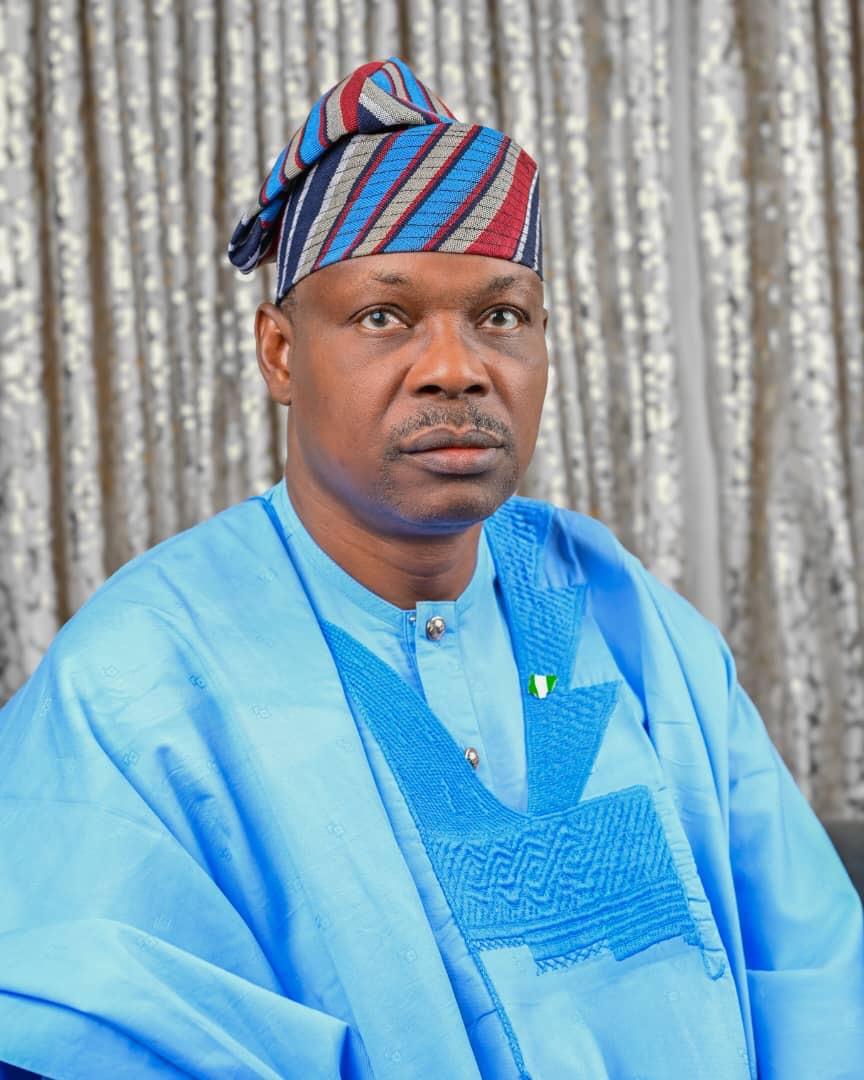
Nigeria is at the forefront of climate action, embarking on a journey to balance environmental preservation with economic progress. Dr. Iziaq Kunle Salako, the distinguished Minister of State for Environment, delves into Nigeria’s strategies for addressing intricate environmental challenges while promoting sustainable development. Dr. Salako sheds light on Nigeria’s ambitious climate goals outlined in the 2021 National Determined Contributions, as well as transformative reforms grounded in research. His insights illuminate Nigeria’s path towards a more resilient and eco-friendly future.
Excerpt:
Your commitment to climate action is evident. Can you elaborate on Nigeria’s strategies for balancing environmental protection with economic growth, and how do you plan to ensure the country remains on track with its climate goals?
The Nigerian climate goal is summarized in the 2021 updated National Determined Contributions to unconditionally reduce emissions by 20% below business as usual by 2030 and achieve net zero by 2060. To achieve this, a National Climate Change Action Plan (NCCAP) covering seven priority areas has been developed. These are disaster risk management; food and nutrition security; water and the blue economy; forestry, wildlife, and tourism; health, sanitation, and human settlements; manufacturing; and energy and transport. These 7 priority areas clearly show the critical role of MDAs outside the environment sector and also demonstrate that climate action should not be undertaken to the exclusion of development and economic growth. Therefore, the issue of climate justice—not leaving anybody behind and providing alternative livelihoods—is paramount. For example, a key strategy to reduce greenhouse gas emissions is reducing fossil fuel utilization. Alternative renewable energy resources like solar, wind, and hydro are being promoted in the Energy Transition Plan. Also, as we put policy into place to scale down dependence on fossil fuels, we also promote clean cook stoves, and we are promoting bamboo as an alternative to wood. In essence, the Nigerian climate agenda has been pursued as an inclusive, povertyreduction, and economic growth-enhancing mechanism. We know some of our policies and initiatives may cause some discomfort, but our principle is to deliver maximum gain to people with minimal pain.
provide examples of specific reforms you plan to implement to address Nigeria’s environmental challenges and enhance the effectiveness of environmental management?
Research empowers us with evidence, opens the vista for new things, or directs us to do old things in a better way. Therefore, without research, there will be little or no improvement in the ways we deliver on our mandate of environmental protection, natural resource conservation, and sustainable development. We are developing a strategic roadmap for 2024–2027 in line with the priorities of President Bola Ahmed Tinubu’s GCFR and the key deliverables of the environmental sector. Some of the key reforms that we plan to implement include our circular management of waste in a way that better reflects the Nigerian context, heightened emphasis on nature-based solutions to climate change, provision of alternative livelihoods to environment-depleting vocations, and better involvement of the average Nigerian in climate action. In addition, we are reforming to ensure more inter-departmental and inter-agency cooperation and collaboration. The Federal Ministry of Environment is being run as one body with one ultimate goal. Therefore, everybody knows what everyone is doing and is not working in silos. Alongside with my colleague, the Minister of Environment, Mallam Balarabe Abbas Lawal, we have a policy of regular management meetings involving all directors, heads of agencies, programs, and special projects where we discuss openly and exchange ideas on what everybody is doing and the challenges being encountered.
Our focus is on building human capacity through fair remuneration, improved working conditions, and infrastructure upgrades, ensuring the sustainability of our institutions.
Environmental sustainability is a key focus of your agenda. What policies do you intend to develop and implement to promote sustainability and safeguard the environment for current and future generations of Nigerians?
You mentioned research-based reforms in the environment sector. Could you
Environmental sustainability is not just our key focus; it is the entirety of what the Ministry of Environment does. When we talk about climate change mitigation and adaptation, biodiversity, wildlife protection, pollution prevention,
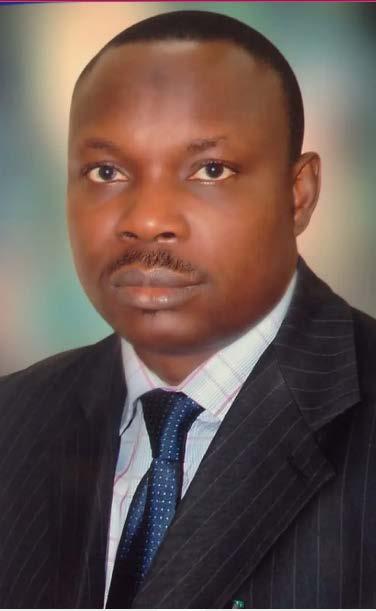
control, and remediation, habitat restoration, renewable energy, energy efficiency, circular management of waste, and so on, it is all about environmental sustainability to meet our today’s needs and for future use. We realize that to achieve environmental sustainability, there must be mass awareness and actions across governments, businesses, gender, age, religion, and all Nigerians. We are going to be focusing on innovative environmental sensitization and rewarding environmental responsibility. In addition, we will be emphasizing nature-based solutions to our environmental challenges and also giving more attention to the circular management of our waste. To demonstrate these policy directions, Nigeria is spearheading a global alliance on nature finance, which I am chairing as Nigerian Minister of State for Environment, and we are playing a frontline role in West Africa to protect our ocean resources. In addition, we are in the process of creating a national system that will serve as a
practical and scalable template for the circular management of our municipal solid waste.
Your leadership has been recognized by ministry staff. How do you harness this support and loyalty to drive positive changes within the Ministry of Environment?
One key strategy that I have adopted is to operate an open-door policy and nontraditional agile management system that promotes the bottom-up flow of information and ideas. Without undermining the civil service hierarchical system, I operate in a way where any staff of the ministry can have access to me. I also believe that staff welfare should be given priority, so you will see that in our budget, outside of the normal salary and allowances, we have provided for staff welfare to support transportation to and from work, festival celebrations, and other staff welfare issues. Training and retraining have also been given priority. As a personal principle, I look out for externally funded training opportunities and make them available to relevant staff of the ministry to explore. Alongside my colleague, the Minister of Environment, we are working on setting up an internal reward system to recognize outstanding staff, departments, or agencies.
With your background in medicine and politics, how do you believe your expertise contributes to your role as Minister of State for Environment, and what unique perspectives do you bring to the table?
As a public health physician, I have an understanding of the centrality of the environment to everything. I know the critical role of the environment as a determinant of health, a nourisher of livelihoods, and a booster of economic growth. I have always asserted that the environment is our life; it is our livelihood. We are born in the environment, we live in the environment, we die in the environment, and we become assimilated back into the environment. To that extent, I see the responsibilities of the ministry of environment as all-encompassing and cross-cutting across several sectors. My public health background puts me in a vantage position to see the nexus between environmental health, human health, productivity, economic prosperity, and a better living standard. As a politician, I understand better that for the environment to be maintained, protected, and preserved, there
must be mass sensitization, understanding, and participation. Governments can do all the policies and initiate programs, but without mass mobilization to get the full buy-in and participation of the people, it will record little success. As a result, I have put public awareness and environmental citizenship as the central program of the ministry.
Planting and nurturing trees is among your initiatives for 2024. Can you share more about this project and its potential impact on Nigeria’s environment and communities?
Trees are the lungs of planet Earth, sequestering greenhouse gases, especially carbon dioxide, from the atmosphere and releasing oxygen needed for most animal life. Research has shown that one full-grown tree can release enough oxygen for 10 adults in a year. In addition, trees provide nourishment through their fruits; they help control flooding and erosion; they purify the air; they dampen noise pollution; they beautify our environment; they provide critical input for the construction industry; and so on. Trees are therefore valuable natural assets that we must always strive to expand and maintain. This year, the Ministry of Environment is targeting planting at least 6 million trees through several initiatives that will also productively engage Nigerians. As part of my new year resolution, I am personally committed to planting and nurturing at least 50 trees this year to serve as an example and call to action for the people. I will like to see a situation where every adult Nigerian commits to planting and nurturing at least one tree per year, so we all contribute to fighting the menace of climate change. I want us to show more respect to trees, refrain from cutting down a single tree unless absolutely necessary, and immediately take action to replace any tree that we cut down.
The Hydrocarbon Pollution Remediation Project (HYPREP) is one of the environmental projects you’ve been involved in. What progress has been made in addressing environmental challenges through this initiative, and what further actions do you plan to take?
The Hydrocarbon Pollution Remediation Project (HYPREP) is a flagship project of the Federal Ministry of Environment working to restore the heavily oil-polluted communities in the four local governments of Ogboni Land, River State. In addition, the project is providing critical infrastructure to mitigate the effects of oil pollution on livelihoods, health,
and the general standard of living. So you will see HYPREP providing training and grants to promote alternate livelihoods, delivering water and power projects, promoting research, and removing oil pollution from the land. There is a center of excellence being constructed in Wiiyaakara, Khana, LGA of Rivers State, which is a 48 billion-naira project to provide training, research, a reference laboratory, and a hub for environmental restoration best practices. HYPREP is a learning curve that will be used to address the challenges of hydrocarbon pollution in the oil-producing communities of Nigeria.
In what ways do you envision Nigeria’s environmental landscape evolving under your leadership, and what are your long-term goals for environmental conservation and management in the country?
My job as a Minister is to supervise the mechanism of translating the vision of President Bola Ahmed Tinubu for the environment sector into policies, programs, and projects that will help actualize the vision. The vision of Mr. President is, of course, well documented in his Renewed Hope Agenda, the 8 Presidential Priorities, and the Focus Areas. Going by this, I envision a progressive movement towards more sustainable management of our natural resources, less negative impact on our environment in our economic systems, more collaboration across governments, and Nigerians becoming more environmentally responsible. I want to see a situation where we give due regard to the environment, where all living and non-living things on planet Earth are treated with respect, and where even pulling out a shrub comes with a lot of consideration. Maintaining and conserving our environment is a collective responsibility, and I want to see everybody playing their own part.
Our focus is on building human capacity through fair remuneration, improved working conditions, and infrastructure upgrades, ensuring the sustainability of our institutions.
Nigeria faces significant environmental challenges. How do you plan to engage with stakeholders, both domestically and internationally, to tackle these challenges and foster cooperation in addressing environmental issues?
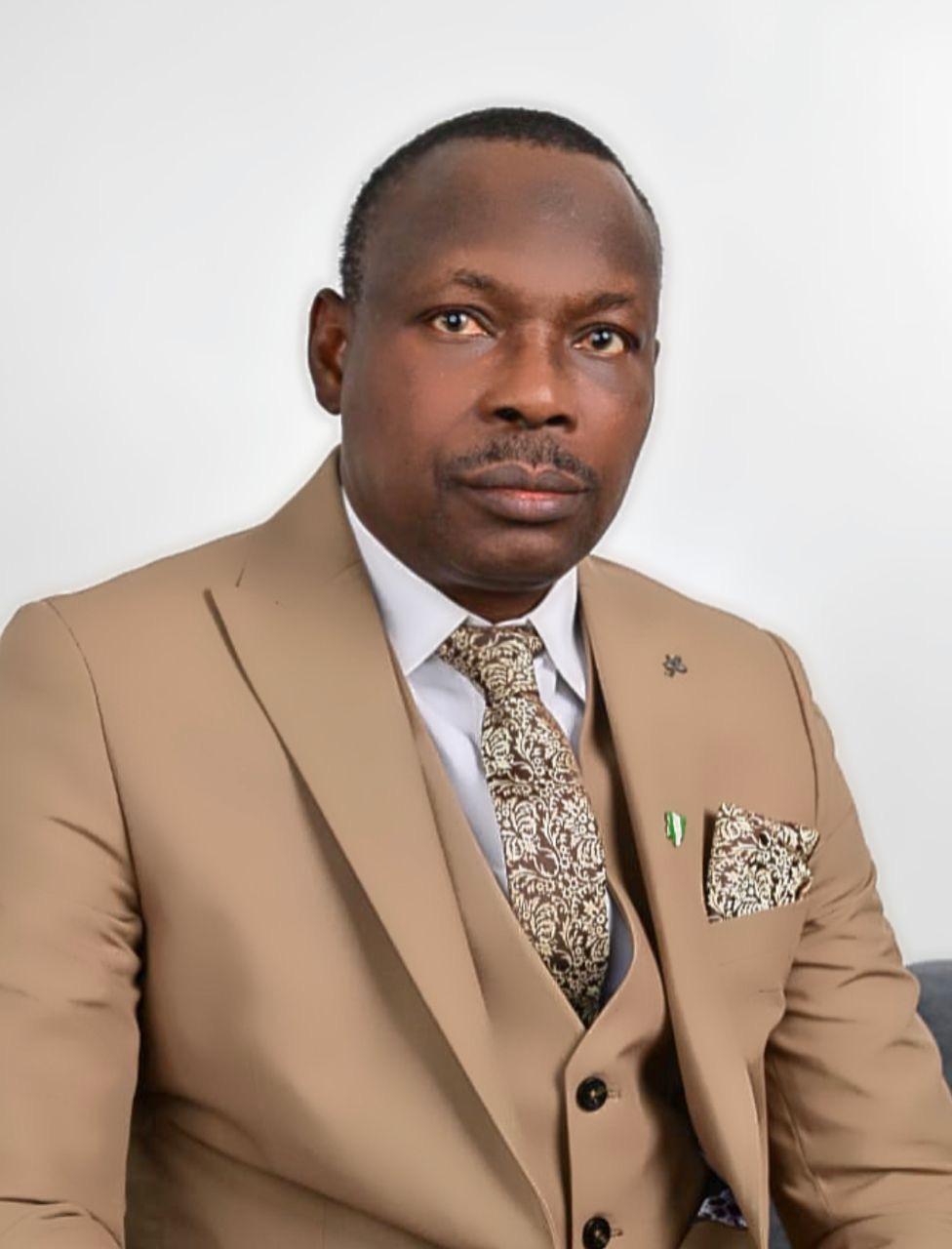
The global environmental challenges are similar to a certain extent, but when it comes to the details, there are local peculiarities that are critical. These are largely culturally, economically, and geographically driven differences. Nigeria, as an oil-producing state, faces a lot of challenges, especially in oilproducing communities due to hydrocarbon pollution. Our cities and urban centers are not yet able to properly manage domestic waste, and we face extreme weather conditions resulting in flooding, drought, and desertification. Equally, overexploitation of natural resources puts pressure on our animals and plants, with some of them even becoming extinct. In order to address these challenges, cooperation and collaboration are essential. At the national level, we hold regular engagement with line ministries and agencies through the Climate Council and also through other bilateral interfaces. We also consult periodically with subnational governments, especially through the National Council on Environment and other statutory engagements.
In addition, through some of our agencies that play regulatory roles, we have constant interfaces with private organizations to ensure they keep to the rules and therefore play their part in maintaining, protecting, and conserving our environment. At the international level, Nigeria continues to play its part in global bodies and assemblies like the United Nations Environmental Programme (UNEP), the United Nations Environmental Assembly, the United Nations Development Programme, the Global Environment Facility, and so on. We also continue to respect international protocols, agreements, and conventions to which Nigeria is a signatory. In addition, we engage in periodic bilateral discussions to share ideas and best practices with other countries with similar environmental interests.
As Minister of State for Environment, what messages would you like to convey to the Nigerian people regarding the importance of environmental stewardship and their role in preserving Nigeria’s natural heritage for future generations?
My main message to Nigerians is to admonish us to pay more attention and give more respect to the environment. Planet earth belongs to man, animals, plants, and even inanimate things, and we are all here because of each other. Virtually every process on earth is meant to be in circles where nothing really goes away. We need to treat other creatures with a lot of consideration and moderate the way we exploit earth resources. I call on Nigerians to be more environmentally responsible and commit to taking personal actions to fight the triple planetary crisis of climate change, biodiversity loss, and pollution. I want Nigerians to give due regard and live more harmoniously with nature, obey planning laws, avoid indiscriminate dumping and burning of “waste,” maintain at least 30% of their residential area as green, use water and energy more efficiently, be moderate in their consumption, go renewable in their energy options, and generally work towards a sustainable planet earth for current and coming generations. If we want to arrest the dangerous trajectory of global warming, overexploitation of earth resources, and pollution on land, sea, and in the air and guarantee that planet Earth is habitable for us, we must take actions in these directions.
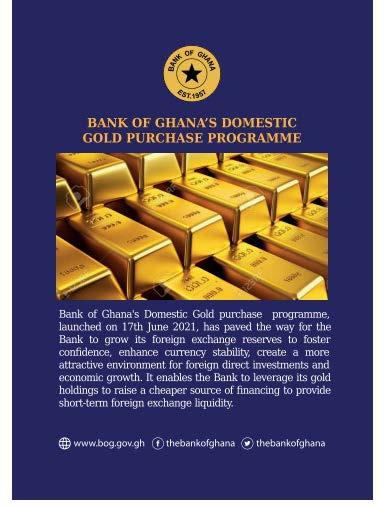

In the bustling landscape of entrepreneurship, stories of resilience, determination, and innovation often shine brightest. Today, in an exclusive interview with Dr. Jesca Nkwabi, a multifaceted individual with expertise in various fields who serves as CEO of the KOM Group, we delve into her remarkable journey of resolute leadership. Her path illuminates the corridors of possibility for aspiring entrepreneurs, especially women, across the globe. From humble beginnings to soaring heights, her narrative is not just one of personal triumph but a testament to the transformative power of entrepreneurship.

Your journey into entrepreneurship is truly inspiring. Can you share pivotal moments from your upbringing that fueled your passion for entrepreneurship and shaped your path, particularly as a woman?
I come from a strong business background. Reflecting on my entrepreneurial journey, I was introduced to business at a very young age. To hone my knowledge and skills in business, I was sent to India, where I completed my bachelor’s in business administration. Later, I moved to the UK for my master’s and majored in international business and finance. Subsequently, I undertook a doctorate in business administration, specializing in supply chain management, food processing, and small and medium enterprises.
Establishing the Kahama Oil Mills (KOM) Group is commendable. What ignited your entrepreneurial drive to create this enterprise? How did you overcome hurdles unique to young female entrepreneurs while positioning KOM Group as a front-runner in agroprocessing and industrial goods in Tanzania?
This business was founded by my father, Mhoja Nkwabi Kabalo. KOM mainly deals with agroprocessing, industrial manufacturing, and trading. KOM has been instrumental in providing solutions to the people in the Lake Region and has made its mark as one of the largest leading businesses in Africa.
I still face hurdles as a young woman in business. Whenever I encounter obstacles, I often turn to my mentor, Mhoja Nkwabi Kabalo, for advice. I also share my experiences with other young entrepreneurs and women entrepreneurs to address these challenges.
Women often face barriers like limited access to finance and societal norms. As a female entrepreneur, how do you support fellow women in business, considering these challenges? What strides have you made towards empowering women in entrepreneurship?
As a female entrepreneur, I serve as the chairperson of Young Women Entrepreneurs (YWE) in Tanzania. I conduct business workshops as well as forums to help young women entrepreneurs engage in entrepreneurial activities. Through the young women›s platform, we launched a programme called
Kijana Amka Changamkia Fursa in 2021, which highlights the various opportunities available for young women.
So far, through YWE, we have conducted numerous workshops and youth forums to promote entrepreneurship activities and equip women with the knowledge and skills to excel in business. Additionally, we have recognized more than 100 young women who are making strides and contributing to the development of the Tanzanian economic sector. YWE will soon be launching extensive programmes that will also provide women with access to seed capital to engage in entrepreneurship and grow their businesses.
Could you tell us more about KOM Group’s business interests and contributions in the areas of job creation, community development, and the socio-economic development of Tanzania by extension?
Our business has been around for more than 20 years. KOM currently employs 200 permanent employees and more than 600 seasonal employees. As the group grows, we expect to create job opportunities for more than 5000 people in Tanzania.
Whenever I encounter obstacles, I often turn to my mentor for advice, sharing my experiences with other young entrepreneurs and women in business to address these challenges.
KOM has been pivotal in building up the economic sector in Tanzania, particularly in Kahama. Through our CSR activities, more than 100,000 people have benefited.
Reflecting on your journey, what achievements stand out for you the most with KOM Group? Any insights or strategies that have been pivotal to your success?
The group has greatly grown and expanded over the years. From small trading, the group diversified into agroprocessing and later moved to industrial manufacturing. From using simple technologies, the group has now invested in sophisticated technologies to ensure that we continue to provide quality products to our consumers.
Given your expertise in food and agroprocessing, what’s your assessment of Tanzania’s agricultural industry today? What is your advice for scaling growth and ensuring business success within this sector?
The agro-sector in Tanzania, particularly the agroprocessing sector, is still developing. There are a lot of investment opportunities in the sector. Tanzania has an abundance of raw materials, but when it comes to processing activities, this is minimal. My advice is to scale up processing activities in Tanzania to minimize dependency on imports.
What exciting plans or future projections do you have for KOM Group?
To have a global presence and cater to the needs of our customers across the globe.
Congratulations on being named cowinner of the Young African Leader of the Year! How does this recognition resonate with your journey? What advice would you share with Africa’s youth, drawing from your own experiences and achievements?
Thank you so much. It is truly an honor to receive this recognition as a young African leader. The recognition resonates well with my entrepreneurial journey to date. What has kept me going despite the challenges along the way is the determination to learn and to do better, and above all, the discipline to do what is required of me. To date, despite coming from a business background and having higher education qualifications, I still take the time to improve myself as a leader by investing in continuous personal and professional development. I believe in continuous learning, and being agile helps me stay ahead. So far, I have undertaken professional development courses from Harvard Business School, Oxford Business School, and the Institute of Directors in Tanzania.
My advice to African youth is to tap into the opportunities available. Find solutions to the problems around you, and be agile. Always put in the work to excel. There is no overnight success, and the more you achieve, the more is required of you. Remember also to give back to uplift more youth on the continent. Lastly, stay up-to-date with current trends in your respective sectors and invest in personal and professional development to stay ahead and serve better.

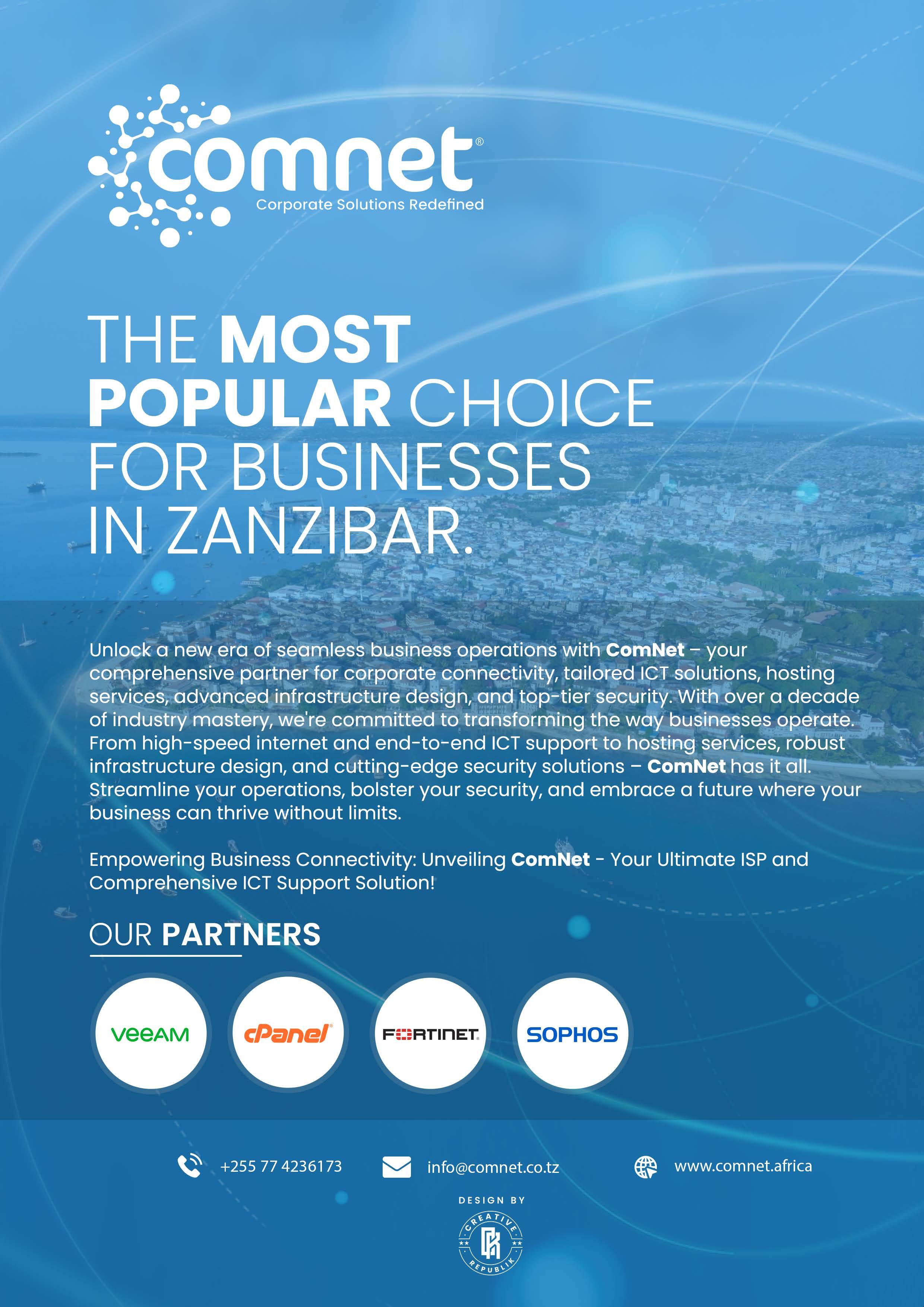
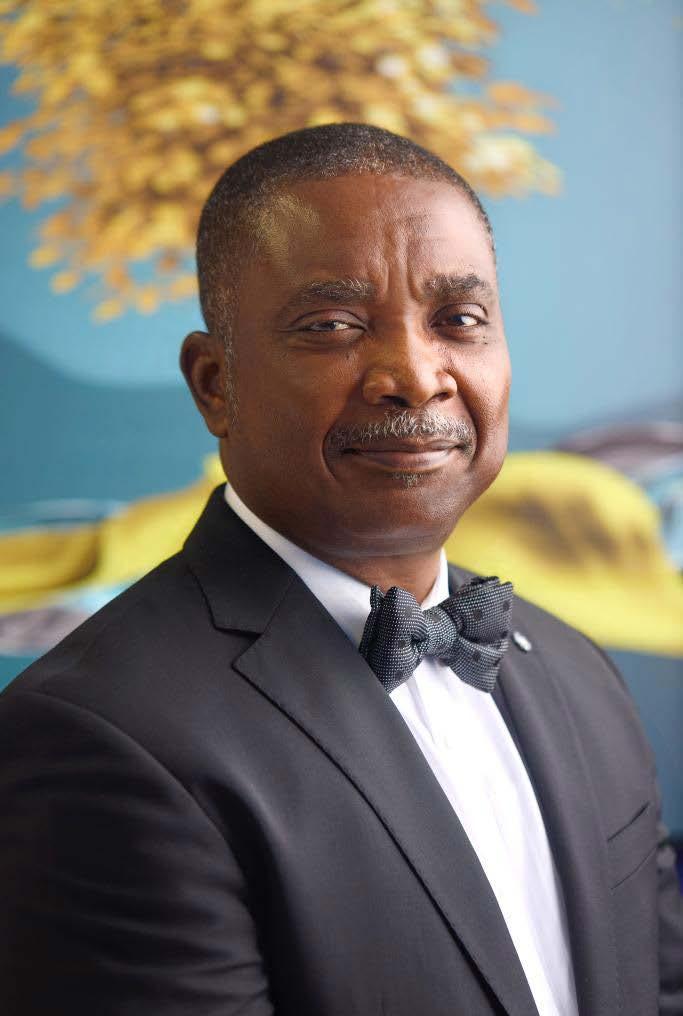
Embark on a voyage of financial transformation and leadership prowess as we delve into an exclusive interview with Mr. Daniel Asiedu, the driving force behind OmniBSIC Bank’s remarkable journey towards profitability. In this enlightening dialogue, Mr. Asiedu shares invaluable insights into the strategic initiatives that propelled the bank from losses to profitability in a remarkably short period.
Drawing from his extensive experience in esteemed institutions like Zenith Bank and the Agricultural Development Bank, he unveils the transformative leadership philosophy that guides his vision for OmniBSIC Bank. Under his guidance, OmniBSIC Bank has not only received prestigious awards but has also set new standards for service excellence and customer-centricity in the banking sector. Join us as Mr. Asiedu reflects on past achievements, navigates through challenges, and charts a course towards sustained growth and success for OmniBSIC Bank in the dynamic financial landscape.
The Excerpt
Mr. Asiedu, congratulations on steering OmniBSIC Bank towards profitability. Could you share with us the key strategies or initiatives you implemented that led to this transformative shift from losses to profitability in such a short period?
Thank you for acknowledging our achievement. The shift from losses to profitability at OmniBSIC Bank was not attained overnight, nor was it achieved by the wave of a magic wand. It is the result of several strategic initiatives. We focused on optimising operational efficiency, streamlining costs, and enhancing revenue streams through targeted product offerings. Additionally, our team was instrumental in implementing innovative solutions that aligned with market demands, contributing to this remarkable turnaround.
Your career trajectory includes diverse roles in the banking sector. How have your experiences with esteemed institutions like Zenith Bank and Agricultural Development Bank influenced your leadership style and vision for OmniBSIC Bank?
Indeed, my experiences at Zenith Bank and the Agricultural Development Bank significantly shaped my leadership philosophy. I consider myself a transformational leader, one who emphasises collaboration and collective efforts to achieve organisational goals. The commitment to excellence and dedication to results that I cultivated over the course of my career continue to influence my leadership style at OmniBSIC Bank.
success to, and how does this recognition propel the bank’s future aspirations?
It is safe to say that the success and accolades that OmniBSIC Bank has garnered are a testament to the dedication and expertise of our incredible team. Their passion for excellence and commitment to building lasting relationships with clients have been the pillars on which our results have been built. This particular recognition serves not only as an acknowledgment of past achievements but also motivates us to set even higher standards for ourselves, propelling the bank towards greater accomplishments in the future.
As someone deeply involved in various boards and professional engagements, including chairing Pacific Trust Consult and G4S Security Company Ghana Ltd., how do these roles complement your leadership at OmniBSIC Bank?
I have always believed in the power of multitasking, and my involvement in various boards and professional engagements complements my role at OmniBSIC Bank seamlessly. It allows me to bring diverse perspectives and insights to the table, fostering a holistic approach to leadership. Efficient time management enables me to fulfil these responsibilities effortlessly, contributing to the overall success of the institutions I am privileged to serve.
It is safe to say that the success and accolades that OmniBSIC Bank has garnered are a testament to the dedication and expertise of our incredible team. Their passion for excellence and commitment to building lasting relationships with clients have been the pillars on which our results have been built
Service excellence appears to be a core principle at OmniBSIC Bank. Could you elaborate on how the bank maintains and strengthens its commitment to service excellence and why you believe it’s pivotal for sustainable business growth?
OmniBSIC Bank has received notable awards, including the ‘Bank of the Year’ at the Ghana Business Awards under your leadership. What do you attribute this
Our commitment to service excellence is deeply ingrained in our organisational culture. We continually invest in cutting-edge technology and robust infrastructure to ensure that our customers’ evolving financial needs are not
only met but exceeded. This commitment to providing convenient, efficient, and personalised banking experiences is fundamental to our sustainable business growth.
Could you shed light on the bank’s customer-centric approach and how it plays a pivotal role in the bank’s long-term success? What strategies or initiatives have you implemented to enhance customer satisfaction?
Our customer-centric approach revolves around five pillars that guide our interactions and operations:
1. SERVICE EXCELLENCE - We aim to exceed our customers’ expectations consistently.
I consider myself a transformational leader, one who emphasises collaboration and collective efforts to achieve organisational goals. The commitment to excellence and dedication to results that I cultivated over the course of my career continue to influence my leadership style at OmniBSIC Bank
2. BEST VALUE CREATION - We promise rapid and convenient banking, speedy trade transactions, and competitive pricing.
3. CONTINUOUS INNOVATION - We focus on introducing state-of-theart technology in processes, products, and service designs.
4. EMPOWERED EMPLOYEES - We prioritise staff training and capacity building to maintain high standards and professionalism.
5. AGGRESSIVE BUSINESS GROWTHWe focus on high-growth segments and optimise new opportunities while managing risks prudently.
OmniBSIC Bank achieved a remarkable milestone by surpassing GH¢150 million in profit. What major factors or strategies contributed to this significant financial growth, and how does this milestone set the stage for the bank’s future trajectory?
Our forward-thinking approach with regard to customer service enabled us to achieve this remarkable milestone. Additionally, we also ensured that our customers benefit from the latest advancements in financial technology; thus, the bank upgraded its core banking application and received the International
Organisation for Standardisation (ISO) Certification for its Information Security Management System (ISO/IEC 27001:2013) as well as the Payment Card Industry Data Security Standard (PCDISS) Certification, all in its bid to provide a safe and conducive business environment for all our customers.
Amidst the commendations and pride expressed by the OmniBSIC Ghana team and stakeholders, could you share a specific accomplishment or moment during your leadership that you consider particularly rewarding or impactful for the institution?
One particularly rewarding moment during my leadership at OmniBSIC Bank was the consistently outstanding financial performance we achieved despite economic challenges, including the recent implications of the Domestic Debt Exchange Programme (DDEP). Navigating through these challenges, our strong financial foundation and adherence to prudent risk management practices ensured stability and resilience for the institution. This financial strength not only shielded us from economic uncertainties but also empowered us to provide innovative and reliable solutions to our customers, reinforcing their trust in our commitment to their financial well-being.
Looking ahead, what are your future visions and goals for OmniBSIC Bank, and what strategic initiatives or areas of focus do you intend to prioritise to sustain the bank’s growth and success in the coming years?
It is my ultimate goal to ensure that OmniBSIC Bank becomes the number one bank in customer service delivery and value creation for all stakeholders. To realise this ambitious goal, my focus is on collaborative efforts with our capable and customer-focused personnel. Together, we are dedicated to relentlessly driving the vision, ensuring that our service promise is not only met but consistently exceeded. Our strategic initiatives will continue to prioritise customercentric approaches, innovative solutions, and a commitment to excellence, thereby sustaining the bank’s growth and success in the dynamic and competitive landscape of the financial industry.
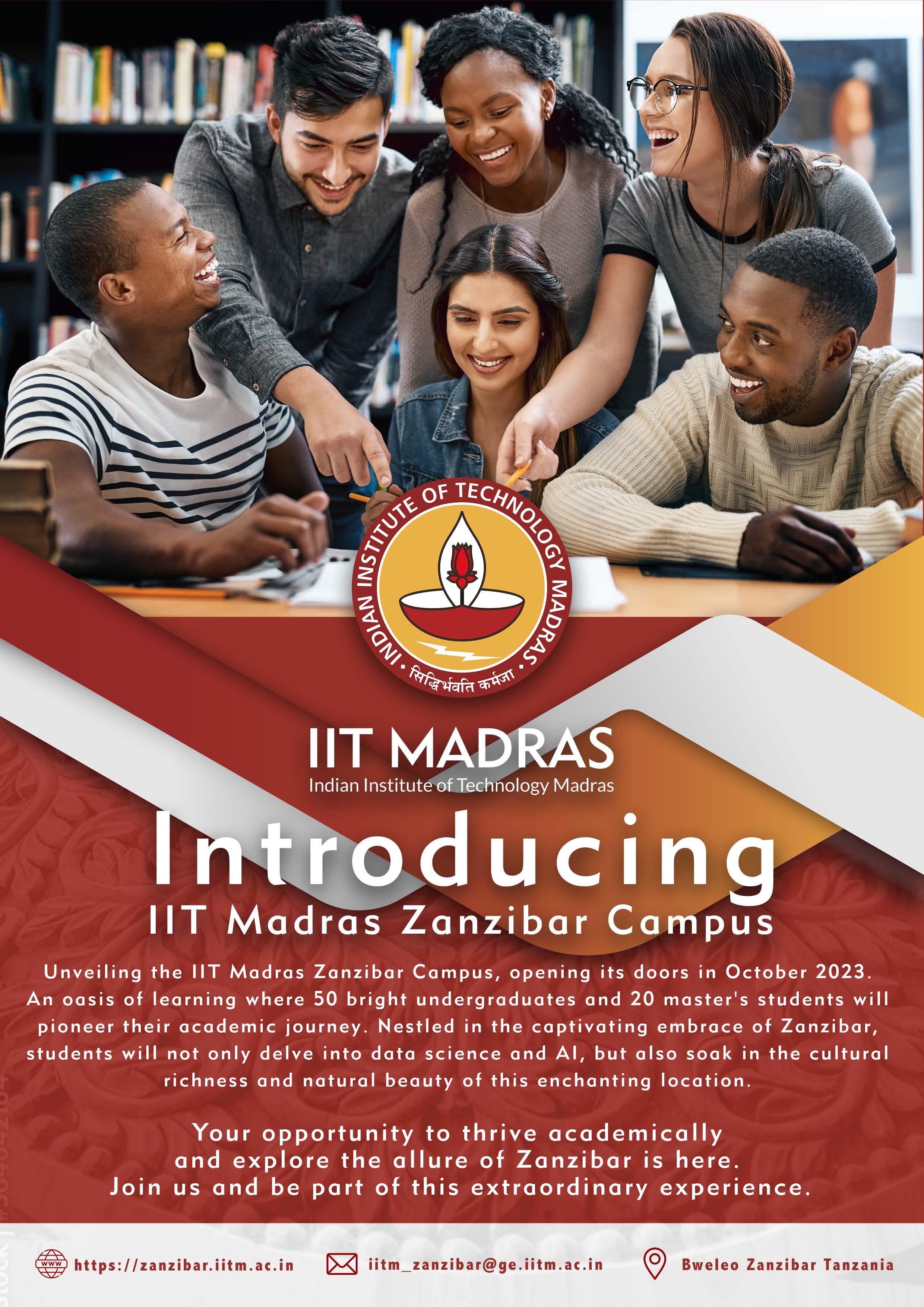
Kennedy G. Bungane Group Chief Executive Officer of African Bank South Africa
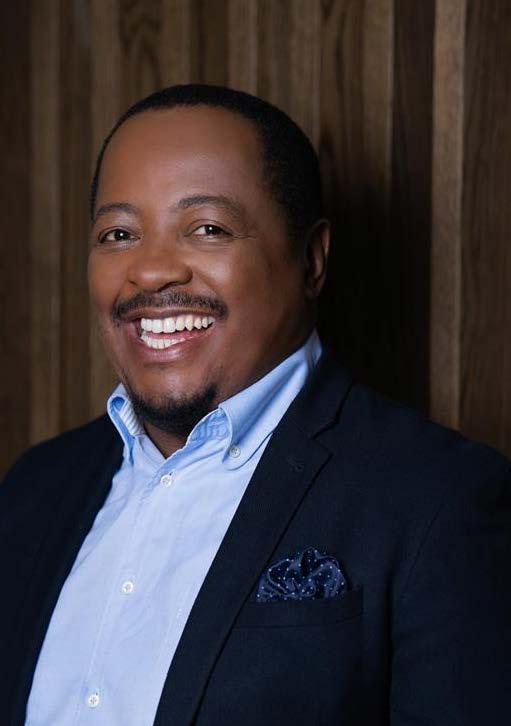
Kennedy G. Bungane, Group Chief Executive Officer of African Bank South Africa, discusses the transformative journey of reclaiming the bank’s founding vision and the strategic roadmap towards excellence. Since assuming the role in April 2021, Bungane has highlighted pivotal milestones, including the acquisition of Ubank and the implementation of the ‘Excelerate 25’ strategy. Under his leadership, African Bank embraces diversity, fosters innovation through digital transformation, and upholds high standards of corporate governance.
Bungane’s vision extends beyond banking, aiming to leave a legacy of societal impact and leadership development. Rooted in the bank’s purpose of ‘Advancing Lives,’ initiatives focus on community empowerment, education, and enterprise development. With a commitment to fostering a diverse and inclusive workforce, Bungane seeks to propel African Bank towards a future of sustainable growth and meaningful contribution to society while finding joy in leadership and community engagement beyond the boardroom.
Excerpt
Mr. Bungane, as the Group Chief Executive Officer of African Bank South Africa, could you share with us some of the major achievements and milestones since assuming your role?
I started as Group CEO in April 2021, having had an extensive set of roles in banking previously as the CEO of Barclays Africa in 30 countries across the continent and also as the CEO of Standard Bank’s Corporate and Investment Banking. But the African Bank journey for me has been like no other.
When I joined, I was privileged to be received by Dr. Sam Motsuenyane, Founding Chairman of the Group, who incidentally turned 97 years old yesterday. In conversation with him, it became clear to me that one of the important things for us to do was to reclaim the mandate of the African Bank. The original vision that the founders of this bank had in mind when they gathered in Soweto over five decades ago was of a bank for the people, by the people, serving the people. And so, one of the major milestones for us was discovering the inspiring story of the African Bank. It’s a story of audacity and courage in the face of seemingly insurmountable odds in the ‘60s, at the height of apartheid, soon after the arrest and imprisonment of political leaders such as Nelson Mandela. They went on this audacious journey of envisioning the African Bank. That story had almost been forgotten, and we set out to reclaim it. And ever since we did that, our journey has been filled with milestones and many achievements.
It is this heritage that has inspired our strategy, called ‘Excelerate 25’. The term excel is a combination of two words: excellence and accelerate. It is through a commitment to excellence and accelerated growth that we aim to build a customer-centric, data-driven, and digitally-enabled bank that has a diverse set of banking offerings that have scale and sustainability. Our mission stems from the audacious heritage of establishing a bank like no other. It is this mission that we pursue today that has enabled us to diversify and strengthen the core of the bank with the acquisition we made of Ubank in 2022. It is a vision that has enabled us to strengthen the bank beyond retail banking and into business banking, and acquiring other banks will fast-track us to the realization of that mission.
As a leader in the banking industry, what do you believe sets African Bank apart from its competitors, and how do you ensure the bank remains innovative and competitive in today’s market?
We uphold the highest standards of integrity, transparency, and fairness at African Bank, not because it is just a requirement but because it is our licence to retain the confidence of investors, customers, and regulators.
If you think about the context in which this bank was born—at the height of apartheid, the most oppressive system, not just politically but economically—this bank was, at its origin, a disrupter. We carry that sense of swimming against the tide. We carry that sense of disruption in our very genes. Our Excelerate25 strategy is underpinned by two key strategic pillars: strengthening the core and expanding the core. Strengthening the core is about enhancing our current capabilities, products and services, and network, and we have done a lot in terms of ensuring that. The second key strategic pillar speaks to expanding the scope of this business. It is a multi-faceted approach that incorporates digital innovation through strategic partnerships with fintechs, non-bank financial institutions, and telcos to ensure that we use the bank as a banking platform and as a service for the convergence of big technology and big data from financial services.
This is a way of ensuring that we move beyond the concept of being a bank and double-click on what it means to do banking. Because being a banker and doing banking are two very different things. We accept that by becoming the
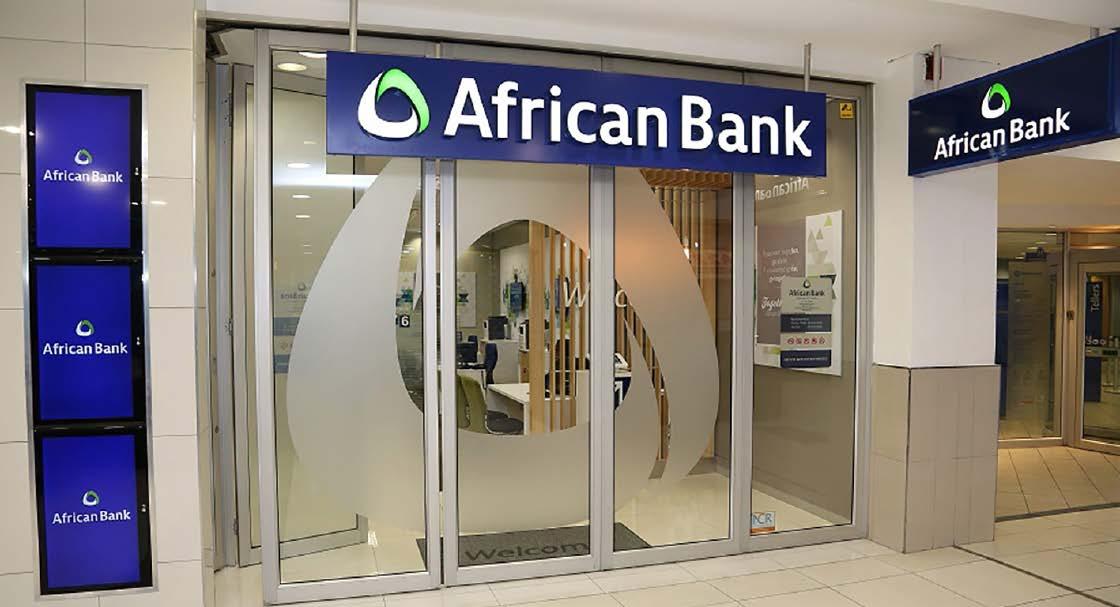
go-to partner for strategic alliance ecosystems featuring fintechs and non-bank financial institutions, as well as value-added services and telcos, and by tapping into the convergence of big data and artificial intelligence, we really can be a customer-centric organization that disrupts banks as we know them today.
Within our organization, we are disciples of a concept called steward leadership. This is the art of leaving something in a better state than when you found it. We have inherited the cause of African Bank from the pioneers who founded it, and we want to preserve this disruptive, audacious attitude in how we think about hyper-collaboration, how we think about innovation, and how we think about customers at the core of what we do.
Corporate governance is essential for maintaining trust and credibility in the financial sector. How do you approach governance within the African Bank, and what measures do you take to uphold high standards of integrity and transparency?
Like many African countries, the South African economy was built on the back of mining resources. I often say that banking is a unique industry. You don’t have gold, silver, platinum, or manganese underneath the ground that brings you resources. We don’t sell gadgets, nor do we sell products in the sense of what you manufacture or what you farm. At its core, banking is a creature of confidence. It takes confidence for people to trust their deposits, their life savings, and their pensions. It takes confidence for people to then entrust you to
use those savings and deposits to extend out to the private sector as credit or as capital for a return, and that when they come back for their money, they will find them safe there with good interest. So banking is all about confidence.
For me, governance is about a public commitment we make to engender that sense of confidence. We are lucky that we have a highly reputable Prudential Authority in the South African Reserve Bank that is the external regulator of our governance. We have a strong board of directors, the majority of whom are independent and non-executive, that hold us accountable to not only the potential regulatory requirements but also ensuring that what we do is really the best governance that we can purport. Our board of directors, together with our group executive committee, comprises an optimal mix of skills, expertise, and experience that work in tandem to ensure that we meet the highest standards of good governance available. We in South Africa are already at Basel Three Plus in terms of banking supervision and governance paperwork. All of these are in support of the combined assurance by external independent auditors and internal auditors, allied to an independent compliance function in a second line of defence that supports the first line of defence, which is where we interface with our customers in terms of our products, services, and solutions. It is aligned with treating the customer fairly and following a vast number of conduct regulations.
We uphold the highest standards of integrity, transparency, and fairness at African Bank, not because it is just a requirement but because it is our licence to retain the confidence of investors, customers, and regulators.
Financial stewardship is a critical aspect of your role. Could you provide insights into how you oversee the financial performance of African Bank, ensuring sustainability and profitability?
Our direction of travel, as mapped in our Excelerate 2025 strategy, has enabled us to set clear goals in terms of what success looks like by 2025. Through our strategy and by working backwards from our key financial metrics, we were able to set key objectives and key performance indicators that we contract with our board annually and that I contract with my executive team and, in turn, with their teams annually. We measure them on a quarterly basis to ensure that sustainability and profitability remain front of mind for all of us as we implement our Excelerate25 strategy. Our financial metrics are led by a net profit after tax target. Many institutions registered losses during the global pandemic and various lockdowns, and the African Bank was not immune to those challenges. We have, however, reported significant growth and profitability in 2021, 2022, and 2023. Despite having absorbed the costs of integrating the three banks that we acquired, we registered just over R500 million in net profit after tax, and we are looking to build on that in the new year.
A critical financial stewardship objective for us is funding. We started out on our Excelerate25 strategic journey with a funding mix that was over 90% wholesale funding. We have since diversified our funding mix to over 75% of retail and customer funds versus wholesale funding and reduced our funding costs to below 7%. This is hugely important in the context of an economy that, over the last two years, has had 30-basis-point interest rates as inflation. Our asset base has more than doubled from R25 billion to just shy of R50 billion for this financial year. As evidenced by key financial ratios, such as our net interest income from opecs and our regulatory capital, we have a surplus capital ratio and a significant improvement in our liquidity ratios. These financial ratios are used in our KPIs on a quarterly and annual basis to measure the fitness of our financial stewardship. And I’m delighted to say that in many of our financial measures, we are ahead of schedule with respect to our ambitious, audacious 2025 targets.
As I mentioned earlier, our Excelerate25 strategy hinges on our two strategic pillars of strengthening the core and expanding the core. As part of strengthening the core, we have embarked on a digital transformation journey to ensure that our end-to-end customer journeys are not only automated but also digitized. We are also using the power of artificial intelligence and big data to extract digital analytics that help us understand the customers’ needs better, how to serve them better, and ensure that they have access to digital solutions with us. At the same time, we have ensured that our vast physical distribution networks of over 500 branches and hundreds of auto-teller machines are linked in a seamless offering with our direct sales and digital channels to ensure that our customers really interface with us the way they want, where, and how they want.
We are quite chuffed that, in a short period of time, through this digital transformation of our existing core, we have more than doubled the number of customers that interact with us via digital channels. The most fascinating and exciting thing for me is that, instead of forcing customers to just go digital with us, a number of them who started their journey digitally with us prefer sometimes to finish it in-branch with a face-to-face conversation or finish it with direct mobile calls. Either way, we want to ensure that our digital offering gives our customers the right and opportunity to interface with us in the manner that suits them best. Now, that is just our existing capabilities.
We take the transformation of our workforce very seriously. We boast today a very diverse leadership, board and Executive team in terms of race, gender, psychographics and the demographics of age and background.
The digital transformation is reshaping the banking landscape globally. What is African Bank’s approach to digital innovation, and how do you leverage technology to enhance the customer experience and drive operational efficiency?
The most exciting part of our digital transformation journey is how we are expanding into serving SMMEs as well as commercial and public companies. As you can imagine, the adoption of the digital channel has been most enthusiastic, most ready, and most exciting for us. By bringing in fintechs and value-added service providers, telcos, and other financial institutions, we have grown our customer base from 1.9 million to over 4 million in less than 2 years, while enabling ourselves to really be at the cutting edge of digital financial services.
Diversity and inclusion are increasingly recognized as key drivers of success in organizations. How does African Bank
promote diversity and inclusion within its workforce, and what benefits have you observed as a result of these efforts?
We are a bank that has diversity and inclusion in its DNA. We were founded by people who were excluded from the mainstream through apartheid policies, apartheid banking, and by many large institutions. We were founded by people who were obsessed about the power of financial services to enhance lives. We are passionate about understanding more accurately what our communities, our people, seek. And so, we strongly believe in diversity as our strength and inclusivity as our differentiator.
It is through a commitment to excellence and accelerated growth that we aim to build a customer-centric, data-driven, and digitally-enabled bank.
We take the transformation of our workforce very seriously. We boast today a very diverse leadership, board and Executive team in terms of race, gender, psychographics and the demographics of age and background. This has enabled this bank to really look and feel like the customer base, it has enabled our people to be relatable to the communities that we seek to serve. When over half of your leaders at various levels of the organization are women, and half of our people interacting with customers are women, it makes the female customer feel at home. When you have addressed the issues of race better than your counterparts, in a country like South Africa that still deals with issues of apartheid legacy and racial discrimination, it really set us apart and that is why I make the bold claim that our diversity is our strength and inclusivity is our differentiator. We see it in the customers’ feedback and the high net promoter scores that we get for our service. We see it in how our colleagues feel at home here.
For three years running, we have been voted a Top Employer in the banking industry because of the inclusive, diverse workforce we employ and the work we have undertaken to create an environment in which they can thrive. When employee morale is so high, when you have customers developing a sense of allegiance, that ultimately results in the kind of financial numbers I reflected on earlier, but it also cements a very direct link in our minds. We believe that there is a very direct correlation between diversity, inclusivity, and sustainable financial performance.
African Bank has a significant impact on the communities it serves. How does the bank engage with and contribute to the broader society, particularly in terms of social responsibility and community development?
Our sense of purpose is summed up in a simple phase: advancing lives. Advancing lives in financial services is why we exist. What that means, fundamentally, is that we are committed to making a tangible difference in communities using the tools equipped to us via banking and financial services. And so, every loan we write and every extension of credit we make cannot just be another loan product. It must help that mother take her child to school. Every home loan we write can’t just be housing finance; it must enable that family to extend their place of abode so that it accommodates more family members or ensures safe and secure shelter. The funding we give to entrepreneurs isn’t just medium-term facilities, but a means for them to go and express their talents, to be productive, to employ someone to create jobs, and to create a multiplier effect in the economy. That ensures that there’s food on the table for their employees. That ensures that the boundaries of industry are stretched and that we push back against unemployment, inequality, and poverty. So that is fundamentally what we are all about and how we think about the job that we do.
Over and above that, we have initiated a number of programs in which we seek to empower our youths, entrepreneurs, and women in particular, in the spirit of Ubuntu. Ubuntu is the idea that I am because we are, that I can only advance when you advance, that no man is an island, that none of us can afford to be singular in our preoccupation, and that we have got to be communal in order for all of us to have success. We believe that our community’s success will be our success and that our humanity and ambitions are interconnected.
Thus far, we have launched the Enterprise and Supplier Development Capacity Building Programme, which is a 12-month course that helps entrepreneurs scale their businesses. We also have an annual Enterprise and Supplier Development Summit and a number of outreach programs with a specific focus on education in underprivileged communities to ensure that every child gets an opportunity to go to a school that is well-equipped and wellsupported. It ensures that, even in the far-flung areas of our communities, children gain access to the best education, exposure to the internet, the best teachers and learning skills, and therefore the best opportunity to thrive and eventually advance not only their lives but the lives of their communities. That is why, as far as
we are concerned, the aspect of sustainability is another key objective in our Excelerate25 journey, and we’ve got key performance indicators every quarter that measure how we are progressing against those sustainability objectives.
Mr. Bungane, reflecting on your leadership as Group Chief Executive Officer, what legacy do you hope to leave behind, and what do you envision as the future trajectory of African Bank under your leadership?
A very significant part of my role has so far been to remind not only my colleagues, my board, and the people I live with, but also South Africa Incorporated, because I think of South Africa as an entity, of the great vision of our founding fathers, who established a bank that will be like no other. We called it a democratizing bank, and that’s an apt description. For those of us who come from apartheid South Africa, this idea that you could actually have a bank that is obsessing about black people is something with a profound emotional and spiritual link.
Part of my role has been to recast that story and reignite that memory. We are here, standing on the shoulders of great men and women who have come before us, who dared to stand up to a powerful system of elitist financial services and said, “We want to be obsessed about entrepreneurs; we want to obsess about communities; we want to obsess about the small man; and, because we obsess about them, then we can grow with them and really advance lives and make a big difference. So that has been our journey up until now.
I would like to leave a legacy of a bank that is true to all of those values, true to that audacious set of beliefs that we can be a different bank, to entrepreneurs, businesses, households, young people, women, our people, and, eventually, to the continent of Africa. I’ve had a successful career at the largest bank in the continent, one of the largest banks in the world. My passion now is to ensure that African Bank meets those expectations and raises a generation of consummate banking professionals who are disruptors in terms of how they think about technology and digitalization, or how they think about banking as a platform, or banking as a service, or how they think about collaboration with different industries to shape how people access financial services.
My personal philosophy is that of developing leaders better and greater than myself and ensuring that we continue to produce great leaders. The combination of those things is a legacy that I would like to leave behind.
So aside from your passion for banking, what do you do for pleasure, and what are your hobbies?
You are living your purpose when your passion is your work and your hobby, and, frankly speaking, that’s what it is. I find a lot of
joy in what I do, and that’s where I spend most of my time. But I am human after all, and one of my hobbies is engaging with the community. I love reading, I love history, and I love meeting people, so, outside of the formal setting of the office, I’m always engaging with people, whether it is in a formal setup or a less formal setup, whether it’s at the school PTA meetings, which I do regularly, or at the soccer field when my boys are playing soccer, or at the church, where I serve as a deacon. I find a lot of joy in meeting people and learning their stories. So, a lot of my time is spent doing that.
I also am involved in community-based projects, one of which is an organization called Qhawe, which means heroes, where we seek to identify young people with potential who, for one reason or another, find themselves without the resources to fulfill that potential and we make it our personal business to really understand them, support them, and mentor them. So, those are some of the things that I do for pleasure.
Our Excelerate25 strategy is underpinned by two key strategic pillars: strengthening the core and expanding the core.
I also enjoy traveling. One of the blessings of being a banker is that you have opportunities to travel. And so, I take my family with me as much as possible. We go to different countries and immerse ourselves in different cultures, and we see different peoples and ways of doing things. So, traveling is something I enjoy doing, but, like I say, most of my time is spent either in the formal setting of the office or in less formal settings, engaging with people, learning from people, and having conversations that are meaningful to them and to me.
Thank you very much, Mr. Bungane, for sharing your insights and experiences with us today.
You’re welcome. Thank you very much for the opportunity.






Welcome to an insightful conversation with Professor George Ladaah Openjuru, the distinguished ViceChancellor of Gulu University in Uganda. As a beacon of academic excellence and community transformation, Professor Openjuru’s tenure has been marked by a dynamic array of initiatives and strategic partnerships aimed at propelling Gulu University to new heights.
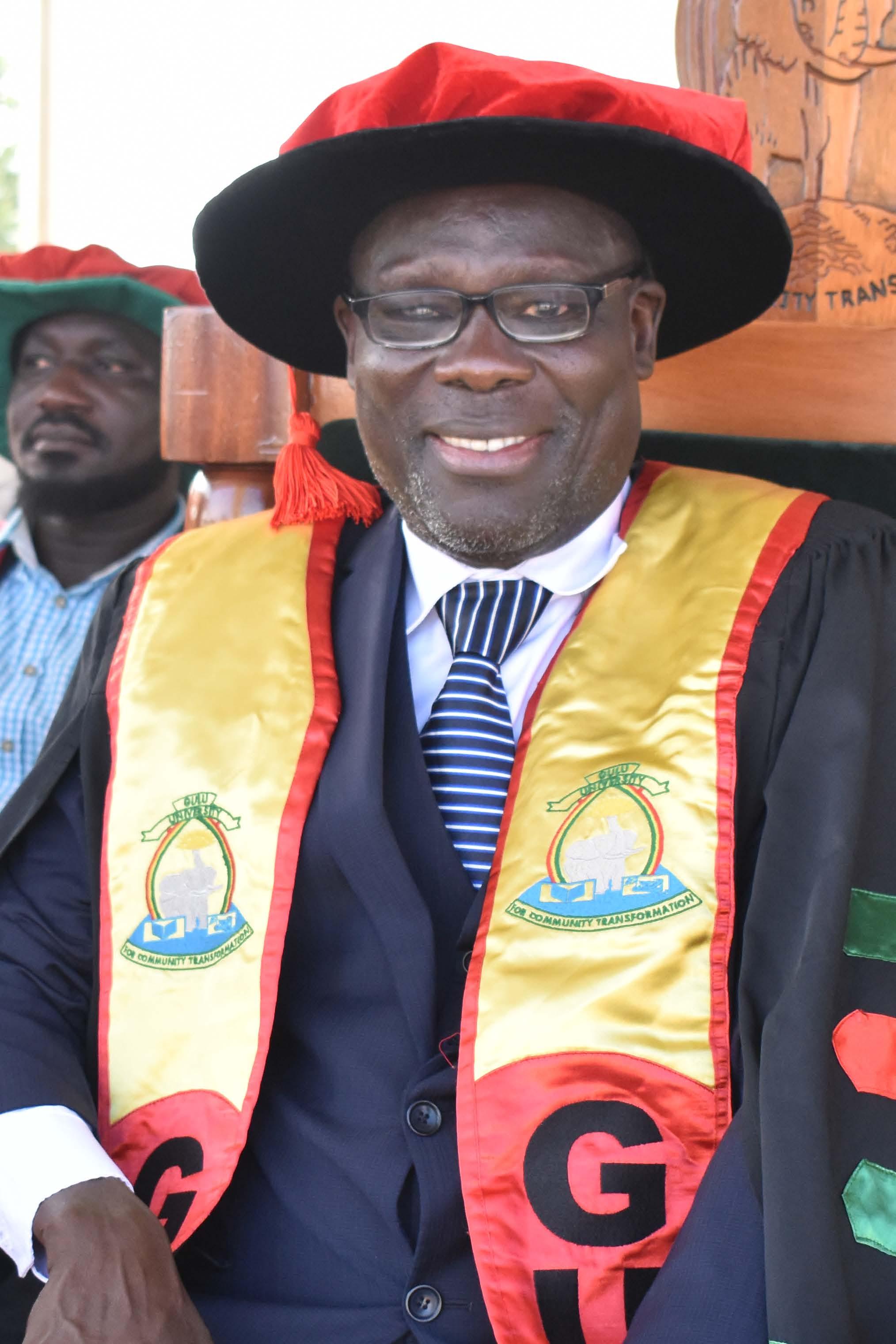
In this interview, we delve into the purposeful leadership of Professor Openjuru, exploring the key projects, impactful partnerships, and pioneering research endeavors that have defined his stewardship. From fostering academic innovation to spearheading community engagement initiatives, Professor Openjuru’s leadership epitomizes a commitment to excellence, inclusivity, and sustainable development.
Join us as we uncover the multifaceted journey of Gulu University under the guidance of Professor Openjuru and gain insights into the institution’s future aspirations amidst challenges and opportunities on the horizon.
Excerpt
Key Projects and Initiatives: Could you elaborate on the key projects and initiatives you’ve spearheaded during your tenure as Vice-Chancellor of Gulu University and the impact they’ve had on the university’s development?
There are many projects and initiatives that I have spearheaded during my tenure as ViceChancellor of Gulu University, with significant impacts on Gulu University management and administration. The most outstanding have been highlighted below:
Integrated Financial Management System (IFMS): I spearheaded the implementation of the IFMS establishment, which has streamlined financial processes, improved transparency, and enhanced accountability. We cleared all outstanding university debts or arrears by ensuring robust financial management practices and leveraging the IFMS. With my team, we created a decentralized academic management practice, fostering calm in the university to ensure uninterrupted teaching and learning through on-site quick decisionmaking and service delivery for our students and community partners. Under my leadership, we significantly improved the academic ranking of Gulu University in various ranking systems for both staff and the institution. We introduced and promoted the Academic Management Information System (ACMIS) for student result processing and record management.
Strategic Partnerships and Collaborations: You’ve been instrumental in initiating strategic partnerships and collaborations with both international and local institutions towards various aspects of the university’s development. Can you discuss your efforts and the impact they’ve had on fostering partnerships and external linkages for the university, such as academic programs, research initiatives, infrastructure development, or community engagement activities?
Yes, under my leadership, we have initiated several Memorandums of Understanding with many universities and organizations, both local and international. I practically encourage that, and I sign MOUs almost on a daily basis with
different partners both locally and globally. We have now created a Grants and Partnership Management office to provide support to all partnership and project initiatives at the university.
Academic Programme Enhancement: Partnering with other institutions enabled the exchange of faculty expertise and resources, facilitating joint academic programs, dual degrees, or certificate programs that enriched the educational offerings of Gulu University through shared expertise, potentially leading to the development of new and robust programs.
Research Initiatives: We have initiated a number of collaborative research projects with external partners leveraging diverse perspectives and resources, leading to innovative breakthroughs and discoveries aimed at solving community problems. Under my leadership, access to funding opportunities through partnerships supporting larger-scale research projects, equipment acquisition, and infrastructure development has significantly increased. These new partnerships have also facilitated access to specialized facilities or laboratories not available at the university, thereby enhancing the quality and scope of our research outputs and community benefits.
Gulu University’s commitment to gender inclusivity and empowerment is evident through policies promoting equality, mentorship programs, and genderresponsive research initiatives under Professor Openjuru’s guidance.
Infrastructure Development: Strategic partnerships have attracted investments and resources for infrastructure development projects, such as building new research centers, laboratories, or upgrading existing facilities. I have promoted participation in international networks and consortia that have opened doors to collaborative opportunities, joint conferences, and knowledge exchange platforms, enriching the academic environment and fostering cross-cultural understanding.
The collaborations facilitated staff exchange programs, enabling staff to study abroad and participate in international research, broadening their academic experience and fostering wider cultural understanding.
Community Engagement and Sustainable Development: Gulu University plays a significant role in the socio-economic
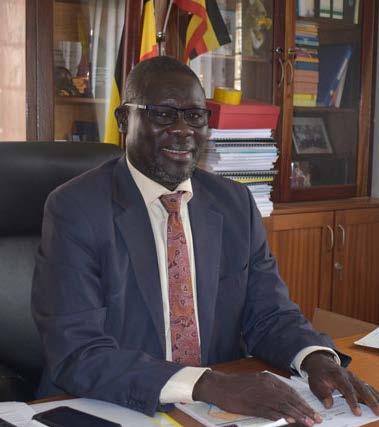
development of Uganda. How does the university engage with local communities and stakeholders to address societal challenges and contribute to sustainable development?
Our university motto is ‘for community transformation,’ which we achieve through university community engagement. Now, we are promoting climate resilience through zero-emission and circular economies. Gulu University is achieving this by organizing various community-university engagement programs aimed at addressing community needs. These programs include health camps, agricultural extension services, and educational initiatives targeting underserved and marginalized populations, such as refugees.
Research Collaboration: The university collaborates with local communities and stakeholders on research projects aimed at finding solutions to pressing societal challenges. This involves conducting studies on issues such as COVID-19, cervical cancer among women, and other public health issues, as well as promoting environmental sustainability in agriculture and economic development.
Capacity Building: Gulu University provides training and capacity-building programs to local community members and stakeholders. These programs focus on skills development, entrepreneurship, and leadership training to empower individuals and communities to
address their own challenges. In partnership with AVSI, the university trained 200 local youth outside the university on models that enhance their business skills.
Recent Research Initiatives and Breakthroughs: As an academic institution, research is a core activity at Gulu University. Can you highlight some of the university’s recent research initiatives or breakthroughs and their potential impact on addressing societal challenges or advancing knowledge in specific fields?
Research on COVID-19; Public Health: Research into infectious diseases, nutrition, maternal and child health, healthcare access, and epidemiology can have a significant impact on public health outcomes, particularly in regions like Uganda where healthcare disparities exist.
Technology and Innovation: Under my leadership, the university has invested in areas of research that drive technological advancements, foster entrepreneurship, and improve access to information and communication technologies, thereby contributing to the economic development of the local and national economies.
Bananas and Potatoes Weevils in Agriculture and Food Security: Given Uganda’s reliance on agriculture and sweet potatoes and bananas being the country’s significant food, studies on this topic aimed at making farming a sustainable practice through pest management and creating food distribution systems, thus addressing food security challenges.
Critical pedagogy and curriculum review were conducted under the Transformation Employability for Social Change in East Africa (TESCEA) project. Under this project, we researched teaching and learning. Under the UNESCO Chair for Youth, Work, and Lifelong Learning, we strived to improve access to quality education, vocational education and training, and social exclusion to help address inequalities and promote social development. This included studies on transitioning vocational education and training in Africa using the Social Skills Ecosystem framework.
Cultural Preservation and Heritage: We have promoted studies focusing on cultural preservation, indigenous knowledge systems, and heritage conservation with the goal of safeguarding Uganda’s rich cultural heritage while promoting cultural diversity and
understanding. Through this, alternative medicine is being promoted and facilitated through decolonizing the biased western beliefs that disparage traditional medicinal practitioners called herbalists as lacking scientific knowledge and legitimacy compared to western medicinal practices. This underscores the rich history and effectiveness of traditional herbal remedies. This was effectively used to remedy or mitigate the impact of COVID-19 in the country, with good results.
Technological Advancements and Digital Initiatives: How has Gulu University embraced technological advancements and engendered digital initiatives to enhance not only its teaching and research but also other aspects of its mission, such as community engagement or administrative efficiency?
Community Engagement via Online Platforms: Leveraging social media platforms, websites, and other online platforms to engage with the community, share university activities and achievements, and facilitate outreach programs. This included hosting webinars, online workshops, and forums for discussion and knowledge exchange, including using WhatsApp.
Digital Libraries and Archives: Digitizing academic resources, library collections, and institutional archives to make them more accessible to students, faculty, researchers, and the broader community. This involves creating digital repositories, online catalogs, and searchable databases.
E-Learning Platforms: Implementing e-learning platforms and systems such as Learning Management Systems (LMS), especially the Gulu University e-Learning Environment (GUELE), to facilitate online programs, courses, distance learning programs, and blended learning approaches. This allows for greater flexibility in education delivery and can reach students who may not be able to attend traditional classes. This broad concept was initiated during the COVID-19 pandemic lockdown.
Gender Inclusivity and Empowerment: Mentorship and modeling of young women in the academic world have been focal points of your leadership. How does Gulu University prioritize gender inclusivity and empowerment within its academic and research endeavors?
Implementing Gender-Sensitive Policies: This involves establishing policies that promote gender equality, such as equal opportunities for recruitment, promotion, and access to resources regardless of gender at Gulu University.
Creating Support Networks: We have provided mentorship programs, support groups, and networking opportunities that are specifically tailored to the needs of female academics and researchers, which have helped foster balanced professional development and empowerment.
Promoting Gender Balance in Leadership Roles: We are actively working towards achieving gender balance in leadership positions within academic departments, research teams, and administrative bodies, which helps create a more inclusive and equitable environment.
Offering Gender-Sensitive Training and Education: We are providing training and workshops on gender sensitivity and unconscious bias to help raise awareness and promote a culture of inclusivity among faculty, staff, and students.
Encouraging GenderResponsive Research: Under my leadership, we will continue to support research initiatives that focus on gender-related issues and promote interdisciplinary collaborations that address gender disparities, contributing to the advancement of knowledge in gender-related matters and hence informing Gulu University policies and practices.
At the top of my list of goals is taking advantage of technology to improve teaching and learning and access to higher education through the promotion of online/elearning and distance education.
Addressing Gender-Based Violence and Discrimination: We will strive to create mechanisms to address and prevent genderbased violence and discrimination within the university and the community. This is crucial for ensuring the safety and well-being of all members when accessing higher education and other university products.
Future Aspirations and Strategic Goals: Looking ahead, what are your priorities and strategic goals for Gulu University in the next five years, and how do you plan to achieve them while navigating challenges such as funding constraints and evolving educational needs?
At the top of my list of goals is taking advantage of technology to improve teaching and learning and access to higher education through the promotion of online/e-learning and distance education.
Enhancing Academic Excellence: Under my leadership, Gulu University will enhance its academic programs, research output, and faculty development to ensure highquality education. This will involve revising the curriculum to meet industry demands, fostering interdisciplinary collaboration, promoting research that addresses local and global challenges, and contributing to the achievement of the SDGs (Sustainable Development Goals).
Improving Infrastructure and Technology: I will promote investment in infrastructure and technology development at Gulu University. This will be a very important plan for improving teaching, learning, and research outcomes. We will continue to look for and engage in partnerships with government agencies, international organizations, and private sector stakeholders to secure funding for infrastructure projects and access to advanced technology tools and resources.
Expanding Access and Inclusivity: Gulu University will continue to focus on expanding access to higher education for underrepresented groups, including women, rural communities, and persons with disabilities. This shall involve offering scholarships, developing flexible learning options such as online courses, and creating supportive environments that foster inclusivity and diversity on campus.
We will continue strengthening communityuniversity engagement and partnerships by building strong relationships with local communities, government agencies, NGOs, and industry partners that can provide opportunities for collaborative research, experiential learning, and resource mobilization. Gulu University will leverage these partnerships to address community needs, enhance student learning experiences, and attract funding for projects.
Financial Sustainability and Resource Mobilization: Given funding constraints, Gulu University is exploring diverse revenue streams and adopting cost-saving measures to ensure financial sustainability. This includes increasing tuition revenue through enrollment growth or program diversification, fundraising efforts, optimizing operational efficiency, and exploring innovative financing mechanisms such as endowment funds or public-private partnerships. We will continuously adhere to quality assurance standards.
Maintaining high standards of academic quality and compliance with regulatory requirements will be essential for the credibility and reputation of Gulu University. Implementing robust quality assurance mechanisms and conducting regular program reviews will ensure institutional accountability and continuous improvement. This will include subscribing to and complying with the ISO (International Standard Organization) quality measures.
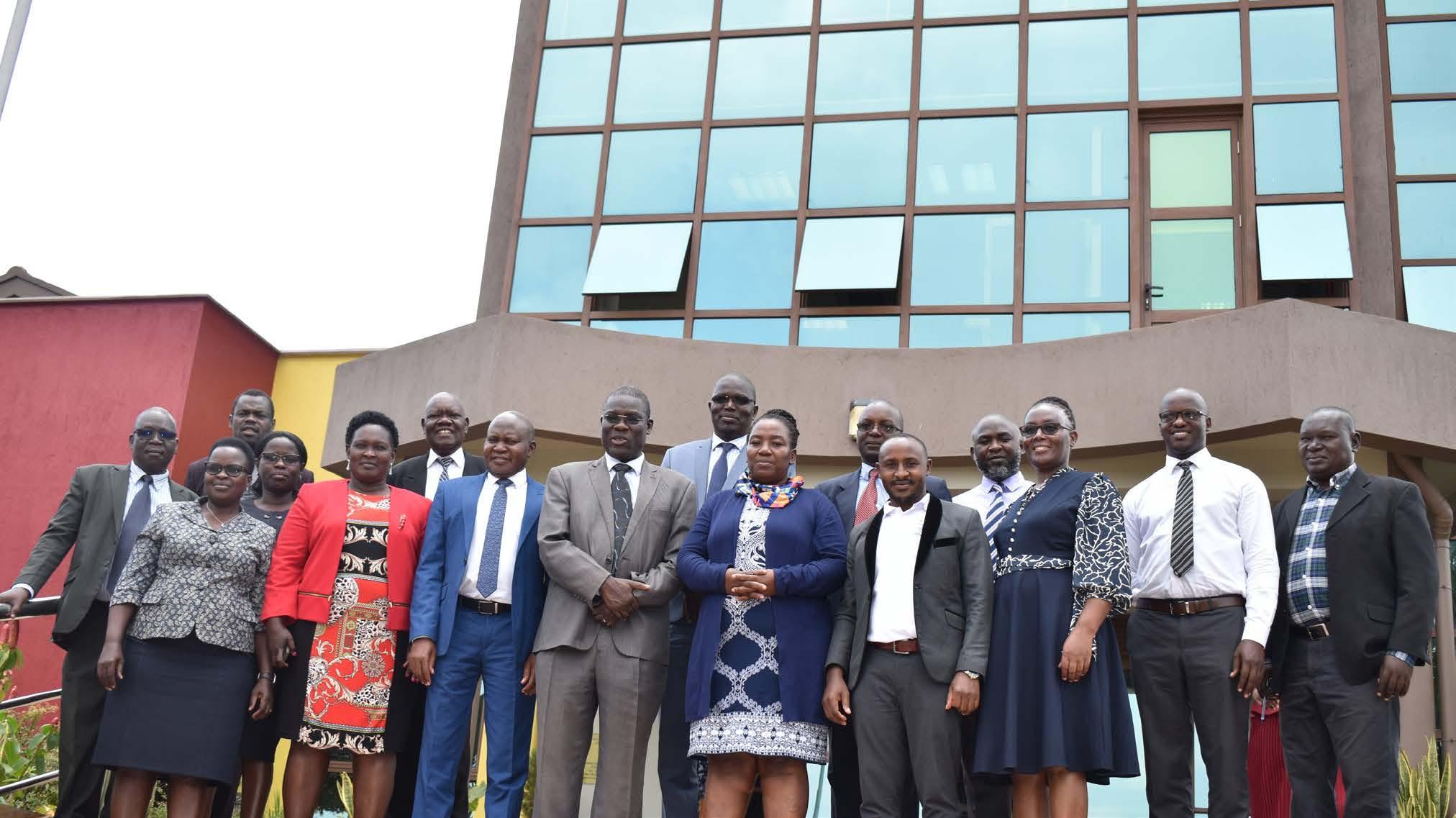

Dr. Obadare Peter Adewale Founder, Digital Encode Limited

In the fast-evolving realm of cybersecurity, Dr. Obadare Adewale Peter stands as a luminary, shaping the landscape through his unmatched leadership at Digital Encode Ltd.
In an exclusive interview with African Leadership Magazine, Dr.Obadare unveils the transformative journey that led to the inception of Digital Encode. Born out of necessity, Digital Encode emerged in 2003 as a means of survival for Dr.Obadare, who, as an accidental entrepreneur, embarked on a path to cybersecurity prominence. His inspiring tale, from selling Maggie on the Eko Idumota bridge to becoming a cybersecurity pioneer, underscores resilience, determination, and the power of a compelling vision.
Moving beyond corporate achievements, Dr. Obadare highlights the awareness of cyber threats in both the private and government sectors. Drawing on his extensive experience, he discusses the potential consequences governments may face if they do not proactively implement cybersecurity structures. His insights paint a vivid picture of the imminent global cyber-pandemic and the critical role governments play in securing national infrastructure.
Dr. Obadare’s personal journey, underscoring the four pillars of perspiration, persistence, perseverance, and praise that have shaped his leadership style. He shares his commitment to mentorship and education, expressing a deep-seated belief in giving back to society. With a forward-looking perspective, Dr. Obadare Adewale Peter provides invaluable advice for aspiring cybersecurity professionals, emphasising the importance of a balanced approach that combines theoretical knowledge, practical skills, and effective interpersonal relationships.
In the grand tapestry of his legacy, Dr.Obadare envisions Digital Encode as a beacon of light, illuminating Africa’s cybersecurity landscape with unparalleled value and commitment. At the individual level, his legacy extends to inspiring future generations, proving that with resilience and determination, anyone can navigate the challenging yet rewarding path of cybersecurity. It is a story of triumph, education, and mentorship that resonates not just in Africa but across the global cybersecurity community.
Your journey with Digital Encode Ltd. has played a pivotal role in shaping the cybersecurity landscape. Could you share the defining moment or inspiration that led to its inception and your vision for its impact?
I’d like to revisit the inception of Digital Encode, a topic I’ve covered in numerous interviews. Often, when people see me today, they perceive me as audacious. However, the truth is, Digital Encode began as a survival strategy during my accidental entry into entrepreneurship. This journey wasn’t a sudden desire to be an entrepreneur; it was a response to the need for survival. I refer to myself as an accidental entrepreneur because, initially, my path wasn’t about waking up one day and deciding to be an entrepreneur. It was a means to survive. Allow me to briefly share my background: I finished secondary school in 1992 and faced delays in my education due to financial constraints. I’ve even sold goods on the Eko Idumota bridge for a living. When I finally secured admission to the Federal Polytechnic Ede, Osun State in 1998 to study electrical electronics, I was already 30 years old. The realization struck that completing my BSc at 33 would limit job opportunities, as most employers sought
individuals under 25. Faced with this reality, I dropped out of Lagos State University, where I was studying computer science, despite having completed my OND.
My journey into information technology began during my internship in 1999, where I had the opportunity to work with a leading computer services firm. This exposure ignited my interest in IT. Through self-evaluation and guidance from the Holy Spirit, I decided to pursue professional certifications. I started by assembling computer systems and registered Digital Encode as a business name, eventually becoming a limited liability company. My transition from a purely technical role to an entrepreneur took a significant turn when I joined Fate Foundation, a center for aspiring entrepreneurs. This experience provided a 360-degree mindset change, transforming me from an accidental entrepreneur to a disciplined one. Fate Foundation instilled purpose and structure in my entrepreneurial journey, laying the foundation for Digital Encode. We recently celebrated our 20th anniversary in July, and the journey continues.
Your list of accolades, including recognition from Forbes and various industry awards, speaks volumes about your contributions. What do you consider the most pivotal milestone in your career thus far, and how has it influenced your approach to cybersecurity leadership?
As a cybersecurity pioneer, my legacy extends beyond corporate achievements, inspiring future generations to navigate the challenging yet rewarding path of cybersecurity.
I consider myself one of the most credentialed cybersecurity professionals in Africa, holding over sixtysix international certifications. I’ve completed a master’s degree in cybersecurity from Liverpool University and am currently pursuing another master’s degree from Oxford University’s business school. Additionally, I hold a doctorate in cybersecurity from Trinity International University in Atlanta, Georgia.
Looking ahead, the future of cybersecurity appears promising. Over the last two decades, technology has evolved from digitization to digitalization and, currently, to digital transformation. This evolution has permeated every aspect of business and personal life, necessitating a heightened focus on
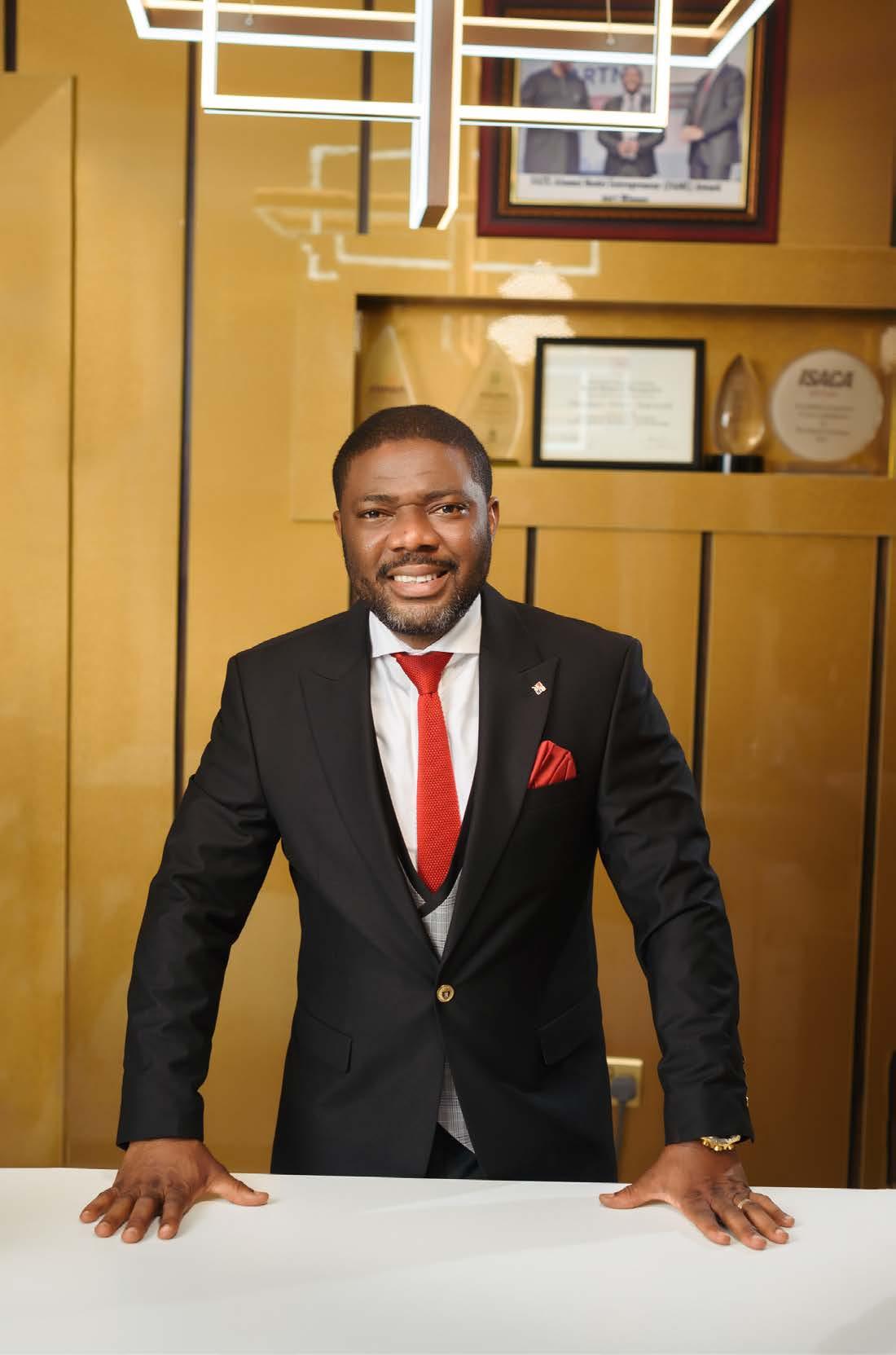
cybersecurity. The use of technology brings inherent risks, including technology, people, and process risks. As organizations and individuals continue to leverage technology for business transformation, the demand for cybersecurity becomes paramount. The evolving landscape of technology requires constant adaptation in cybersecurity measures to ensure the confidentiality, integrity, and availability of information. In essence, as technology usage expands, cybersecurity will continue to evolve, offering protection against various digital threats such as hackers, cybercriminals, and ransomware attacks – which I sometimes refer to as digital kidnapping. The need for robust cybersecurity measures will persist as we navigate the ever-changing digital landscape.
As a leader, how do you ensure that Digital Encode plays a role in Cybersecurity?
Great question. Firstly, we attribute all glory to God. Celebrating 20 years is a testament to our resilience, surpassing the average startup lifespan. The title “Chief Visionary” reflects a clear vision for Digital Encode’s future. Our vision for the first two decades was to be the
top information technology assurance service provider in Africa. This entails assisting organizations, from small to large enterprises and government agencies, in safeguarding their information assets. Our mission is to serve as a trusted advisor, ensuring the security of IT infrastructure as organizations embrace technology. Digital Encode has successfully supported numerous organizations across Africa, aiding them in standardizing their environments through international best practices. For example, we have assisted in obtaining ISO 27001 certification, a global standard for Information Security Management Systems, emphasizing the holistic protection of information assets. Our focus extends beyond technology, encompassing process standardization, capacity building for individuals, and ensuring the correct implementation of technology for security. With our track record, Digital Encode is a multiaward-winning organization in cybersecurity, governance, risk, compliance, and human capacity. Our next goal is to become Africa’s first cybersecurity unicorn, emphasizing investment in our people’s knowledge and creating an enabling environment for Digital Encode to thrive.
How aware are individuals, governments, and private sectors of cyber threats?
I’ll approach this question from two dimensions: awareness and action. There is significant awareness of cybersecurity threats, trends, and issues across individuals, governments, and private sectors. However, the real challenge lies in the proactive measures taken in response to this awareness. In the private sector, particularly in financial institutions, there is a high level of proactivity due to their exposure to numerous transactions, including e-payments, web payments, ATM transactions, and mobile payments. The constant threat of cyber attacks and electronic fraud forces financial institutions to implement robust cybersecurity controls spanning people, processes, and technology. On the other hand, government entities, though aware, exhibit a lower maturity level in proactively implementing cybersecurity measures. In contrast to firstworld counterparts, where governments often surpass the private sector in cybersecurity sophistication, our local governments need to enhance their proactiveness in establishing effective information security controls. The private sector, especially financial institutions, leads in this aspect, highlighting the need for improved cybersecurity measures in the government sector.
What would be the consequences for the government if they did not put the structures in place?
The consequences are unequivocal. A notable security solution provider, Checkpoint, has reported that the next global crisis could be a cyber-pandemic. Similar to the biological pandemic of COVID-19, this cyber-pandemic poses a significant threat, especially for governments responsible for critical national infrastructure. Failure to proactively address cybersecurity and implement robust controls could result in a country’s paralysis. The vulnerability of national infrastructure to malicious activities could lead to nation-state attacks, surpassing conventional cyber theft. Governments must recognize the urgency of strengthening cybersecurity measures, drawing lessons from incidents like Estonia’s experience. It is crucial for African governments to act promptly and become proactive in cybersecurity to avert potential significant losses during the impending global cyber pandemic.
Your academic pursuits, notably earning a Doctor of Human Letters in Cybersecurity and various executive education programs, demonstrate a commitment to continuous learning. How have these experiences shaped your leadership style and the strategic direction of Digital Encode Ltd.?
Life often throws challenges at us, and as the saying goes, when life gives you lemons, make lemonade. My journey, like many others, has been characterized by perspiration, persistence, and praise. Perspiration, representing hard work, is essential, but it alone might not guarantee success. Persistence demands consistent effort, and perseverance requires patience and delayed gratification. The fourth P, praise or gratitude to God, adds a sense of fulfillment to the journey. These four Ps – perspiration, persistence, perseverance, and praise – have significantly influenced my leadership style. When guiding my staff, I emphasize the importance of these principles, reminding them that cybersecurity expertise is cultivated through hard work, consistency, patience, and a grateful mindset. This philosophy shapes Digital Encode’s strategic direction, fostering a culture of dedication, resilience, and appreciation.
that illustrates the impact you aim to achieve in shaping the next generation of cybersecurity professionals?
Given my spiritual background, the act of giving back is ingrained in my life. I have directly mentored over a thousand individuals and indirectly impacted nearly 2000 more, drawing inspiration from those who influenced me, starting with my mother. Her guidance instilled in me the belief that one’s background does not dictate their life’s outcome. This philosophy fuels my commitment to share my life experiences across various domains, encouraging others to recognize their potential. The aim is to convey the message that regardless of one’s starting point, continuous improvement is achievable. I’m considering establishing a foundation to formalize this commitment, but even informally, I consistently encourage everyone to strive for personal and professional growth, as there is always room for improvement.
You’ve been acknowledged as a pioneering figure in cybersecurity. What advice would you offer to aspiring entrepreneurs or professionals aiming to make a significant impact in the cybersecurity realm, especially within Africa?
For aspiring individuals venturing into cybersecurity, I would like to address some common misconceptions about this field. While cybersecurity is undoubtedly one of the most lucrative careers globally, my advice revolves around what I call the ‘three-dimensional traits of a cybersecurity professional.’ Let’s delve into these three crucial traits.
Cybersecurity is more than cognitive competence; it requires a balance of theoretical knowledge, practical skills, and effective interpersonal relationships.
Mentorship and education are integral components of your activities. Could you share a memorable experience from your role as an educator or mentor
The first dimension is cognitive competence, which involves obtaining professional certifications. These certifications provide the theoretical foundation and knowledge required for cybersecurity. However, it’s essential to recognize that this is just the starting point.
Moving to the second dimension, we have functional competence. This involves translating theoretical knowledge into practical, implementable skills. Acquiring practical knowledge is crucial, as it becomes your performance currency. Many individuals falter
by stopping at the theoretical stage, missing the opportunity to enhance their practical capabilities.
The third and equally important dimension is social competence, representing your relationship currency. Effectively communicating and interacting with others is vital in cybersecurity. Whether writing reports or dealing with top management, your ability to convey complex cybersecurity concepts into actionable plans is crucial. Building strong social currency ensures success in various cybersecurity roles.
In summary, you need cognitive competence for theoretical knowledge, functional competence for practical skills, and social competence for effective communication and relationshipbuilding. Balancing these three traits is key to achieving success in the dynamic field of cybersecurity.
Reflecting on your journey so far, what legacy do you hope to leave behind within the sphere of cybersecurity, and what steps do you believe are crucial for fortifying a secure digital future not just for Africa but on a global scale?
The legacy I aspire to leave within the
cybersecurity sphere is to be a beacon of light, illuminating the path for others. This legacy unfolds in two dimensions.
Firstly, at the company level (Digital Encode), the goal is to be a leading force in cybersecurity, dispelling the misconception of a dark cloud over Africa. By consistently delivering highquality services, exceeding client expectations, and adhering to a Total Quality Management System, Digital Encode aims to set a standard not just in Africa but on a global scale.
On a more personal level, the legacy involves inspiring younger generations. As a pioneer in cybersecurity in Nigeria, my mission is to demonstrate that success in this field is achievable. By mentoring and motivating others, I aim to foster a mindset that emphasizes the marathon rather than the sprint, ensuring a lasting impact on the cybersecurity landscape worldwide.
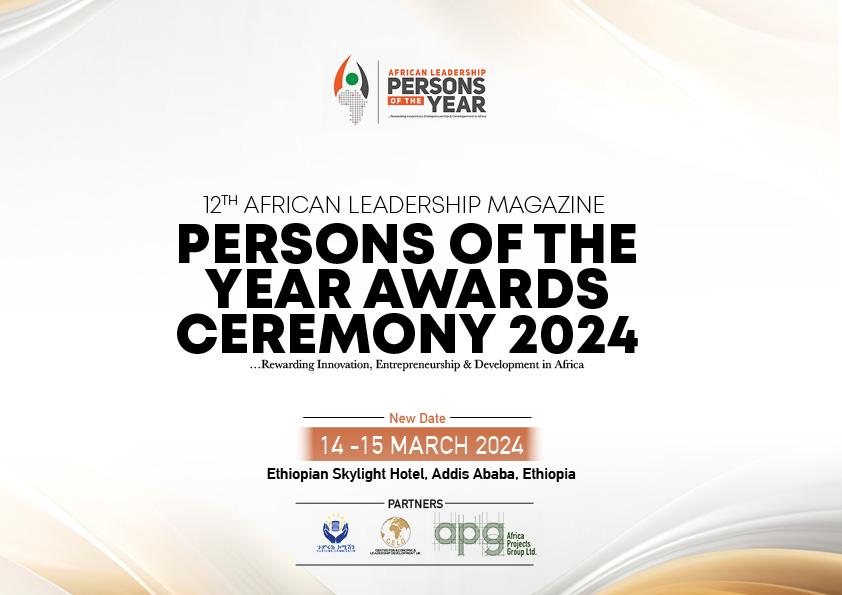
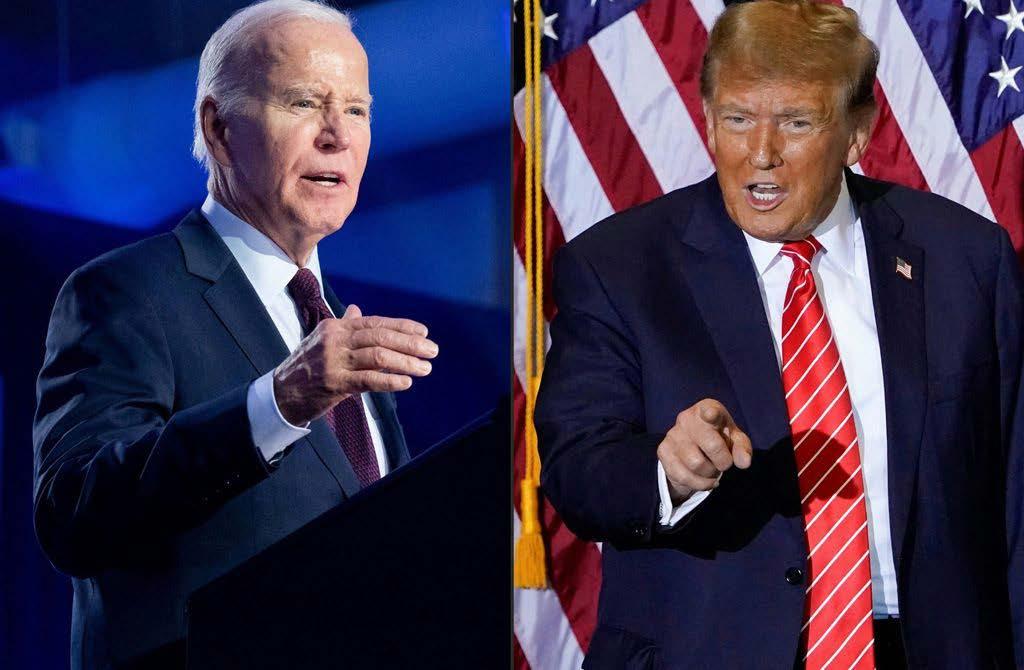
The diplomatic endeavors of both former President Trump and President Biden regarding Africa reveal notable parallels, portraying an encouraging outlook on the continent’s potential. Highlighting the significance of collaborative partnerships, their respective strategies aim to tackle mutual priorities such as healthcare, pandemic readiness, and environmental concerns, while also urging allies to address issues like human rights, corruption, and authoritarian tendencies.
Both administrations are steadfast in their commitment to nurturing democracies across African nations, advocating for the rule of law, and thwarting terrorist expansion in the region. Economic prosperity in Africa is a shared focal point, with President Biden’s strategy recognizing the transformative growth potential
and motivating both administrations to foster economic linkages with the continent. Notably, Trump’s approach uniquely contextualizes this commitment within the broader landscape of China’s escalating economic influence in Africa, providing a nuanced perspective on their strategies.
During the tenure of President Donald Trump (2017–2021), his engagement with Africa was characterized by a relatively restrained focus compared to other regions. The administration did not accord Africa the priority it deserved in terms of foreign policy, resulting in fewer highlevel interactions with African leaders. Trump’s skepticism towards foreign aid was evident, as proposed cuts raised concerns, particularly regarding global health initiatives in Africa.
While significant policy initiatives targeting Africa in terms of trade are lacking, a transactional approach could potentially impact the continent. Security efforts are predominantly centered on counterterrorism, featuring military operations against extremist factions. Trump’s immigration policies, including travel restrictions, indirectly affected immigrants from African nations, eliciting concerns and criticisms. It is imperative to acknowledge Africa’s diverse landscape, as the nature of relationships varied between the U.S. and individual African countries during Trump’s presidency, characterized by an overall diminished focus on the continent compared to other global regions.
The advent of President Joe Biden’s administration heralded a shift in the United States’ engagement with Africa, promising a more respectful and collaborative approach in contrast to the preceding administration’s stance. Under the leadership of Secretary of State Antony Blinken, the new administration acknowledges Africa’s dynamic growth trajectory, its youthful demographic, and its significant international influence as one of the UN’s 55 member states.
Both administrations are steadfast in their commitment to nurturing democracies across African nations, advocating for the rule of law, and thwarting terrorist expansion in the region.
Security policy, particularly in combating Islamist extremism, remains a cornerstone of U.S. Africa policy. The establishment of military bases in 15 African countries, primarily situated in the Sahel and Horn of Africa regions, underscores the commitment to thwarting jihadist groups. However, there are no explicit indications of heightened military involvement or alterations in counterterrorism strategies under the Biden administration.
Economically, the United States faces challenges in rivaling China, Africa’s foremost trading partner. While initiatives such as the African Growth and Opportunity Act (AGOA) have facilitated African exports to the U.S., China’s economic ties with the continent have surged ahead. Efforts to counter China’s Belt and Road Initiative through the Better Utilization of Investments Leading to Development Act (BUILD Act) have been initiated, yet a comprehensive U.S. strategy for economic engagement with African nations remains forthcoming.
Development cooperation, notably in the healthcare sector, has been a pivotal aspect of U.S. engagement. Initiatives like PEPFAR and PMI, aimed at combating diseases such as HIV/AIDS, have received substantial funding. Despite attempts by the Trump administration to curtail development aid, funding levels remained robust, with new programs like “Prosper Africa” being introduced. While the Biden administration has not signaled a significant increase in development assistance, key personnel appointments suggest a continued focus on health and development issues.
Climate change has emerged as a potential cornerstone of Biden’s Africa policy. Collaboration with African states in UN climate conferences and endeavors to reduce dependence on fossil fuels could assume central importance. Addressing the COVID-19 pandemic is also prioritized, drawing upon U.S. expertise garnered from combating the Ebola epidemic. This presents opportunities for collaboration with the EU and Germany in bolstering healthcare systems and vaccination campaigns.
The promotion of democracy, human rights, and good governance has been a consistent, albeit occasionally disjointed, aspect of U.S. policy. Despite verbal commitments, tangible support for democracy constitutes a minor fraction of USAID programs. The Biden administration has articulated a commitment to fostering democracy, both domestically and internationally, with plans for a “Summit of Democracies.”
On the global stage, the Biden administration signals a return to multilateralism, advocating support for key international organizations. Cooperation with African states assumes paramount importance, not merely as part of a geopolitical maneuver against China but also in recognition of the significant agency that the continent possesses.
While a fundamental overhaul of U.S. Africa policy is not anticipated, the Biden administration presents fresh avenues for collaboration in healthcare, climate action, and democracy promotion. Expectations should be tempered with realism, given the U.S. focus on geopolitical competition with China. Coordinated efforts with international partners, particularly in multilateral initiatives, have the potential to bolster U.S.-Africa cooperation across diverse spheres.
